FOOD from






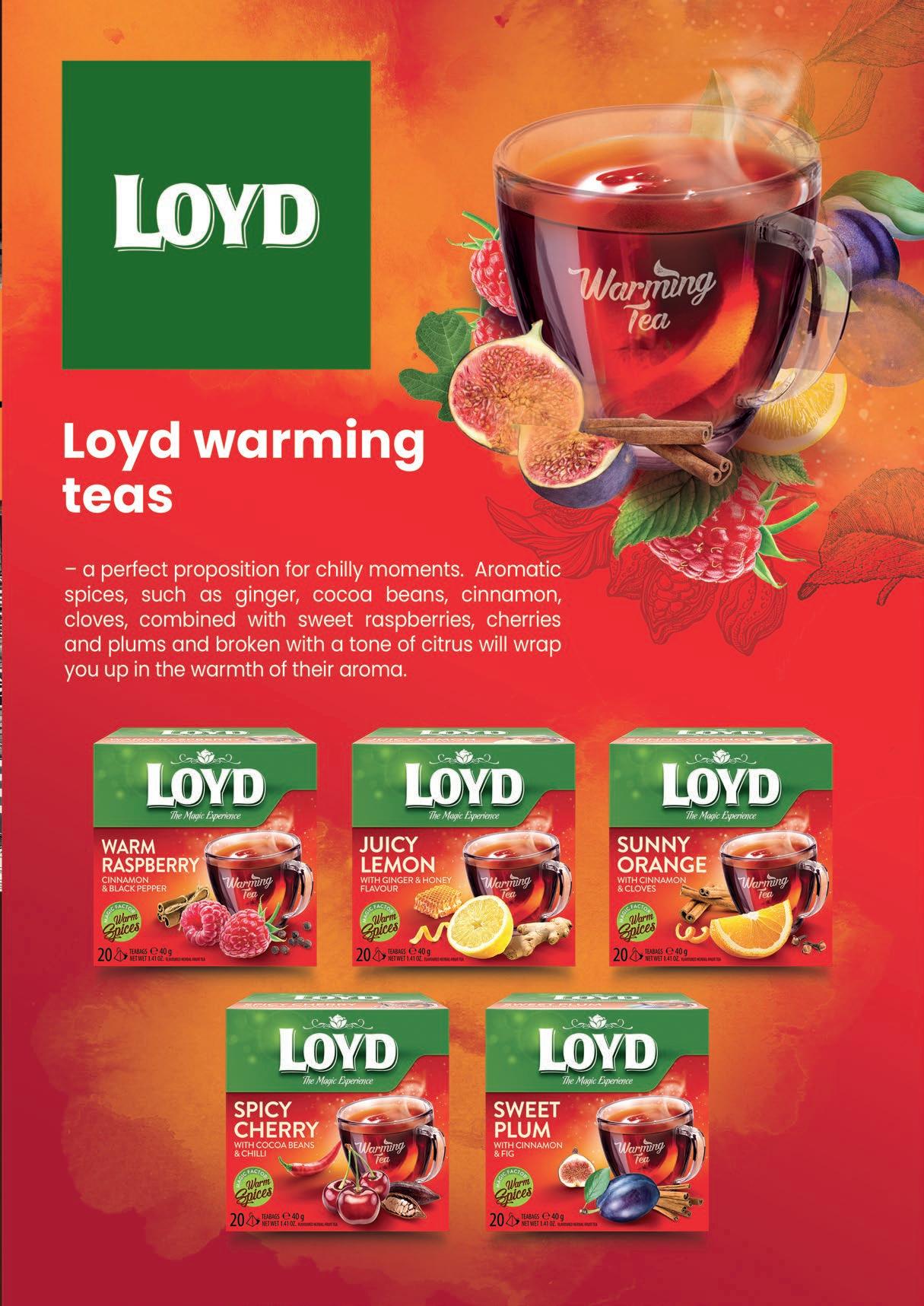
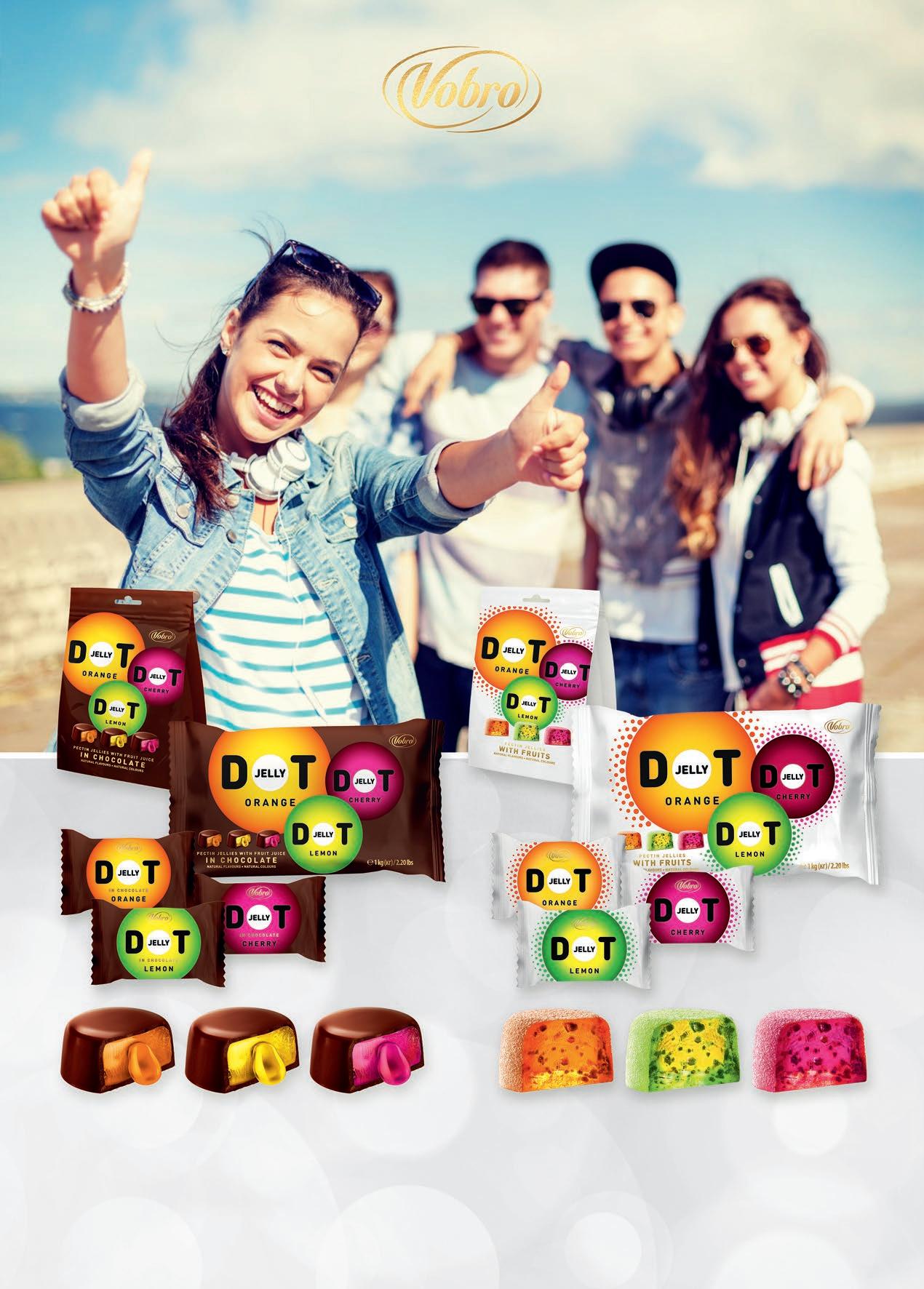



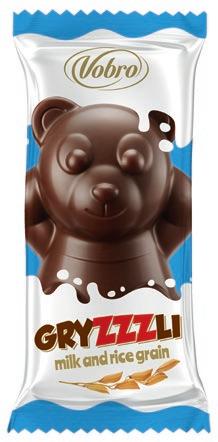
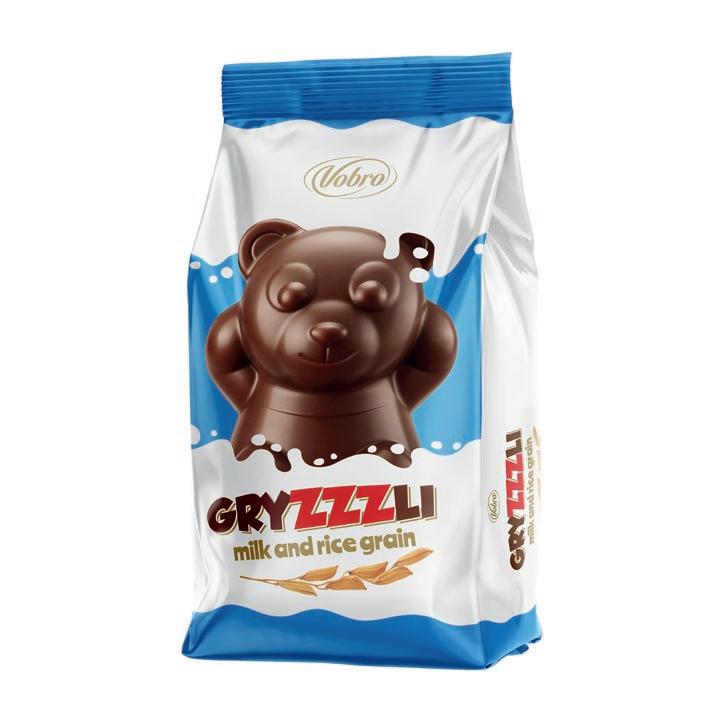


Poland is a significant European food producer and the turnover of the Polish agri-food trade has been achieving record-breaking results for many years.
In 2021, the value of Polish food exports was higher by 9.6% in comparison with the previous year, reaching the level of EUR 37.6 billion. The first half of this year has grown as well in terms of the sales level in relation to the analogous period the year before – in this case, it was as much as 24%.
The increase of the turnover, as well as a higher growth rate, confirm that Polish entrepreneurs from the agri-food sector are doing well on the international market. The agrifood exports enable utilization of excess food produced in Poland, comprising an important source of revenue for the Polish agri-food industry, and indirectly affects the econo my of the entire country.
Unfortunately, the war in Ukraine, ongoing since Feb ruary 2022, is having a perceivable impact on the economic
and food situation, both in Poland and in the entire Euro pean Union. Due to limitations in availability of energy raw materials, such as petroleum, coal, or gas, as well as certain agricultural goods, we are experiencing a non-stan dard increase of prices, which simultaneously causes in flationary pressure. However, it should be kept in mind that Poland is a serious food producer, currently upholding Europe’s food safety.
However, experts assure that in no way is the food safety of Poland threatened; nevertheless, the developing situation beyond our eastern border should be observed with due attention. The months to come will be crucial, especially in view of growing prices of gas necessary for the production process of food and fertilizers. Currently, we are facing one of the greatest challenges of our generation, yet we can sleep well, as Poland has always closely kept an eye on the things happening around us and has perfectly prepared itself for problem-solving.
foreign
Editor-In-Chief Tomasz Pańczyk t.panczyk@foodfrompoland.pl
Managing Editor Monika Górka m.gorka@foodfrompoland.pl
Arkadiusz Majchrzak, Export Manager at Terravita
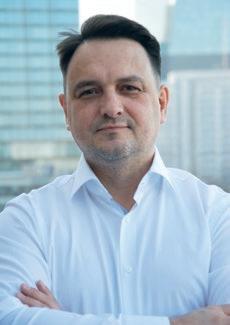
Krzysztof Stojanowski, Chairman of the Board at Profi
Marietta Stefaniak, Board Member for Strategy and Development at ZM Silesia
Olgar Suner, Deputy General Manager at Turka Invest
Marcin Zieliński, Business Development
at Makarony Polskie
Zbigniew Grycan, the creator and owner of
“Grycan – Lody od Pokoleń” brand
Editorial Office Bagno Street 2/218 00-112 Warsaw, Poland
redakcja@foodfrompoland.pl www.foodfrompoland.pl
Fischer Trading Group Ltd. CEO: Tomasz Pańczyk t.panczyk@ftgroup.pl
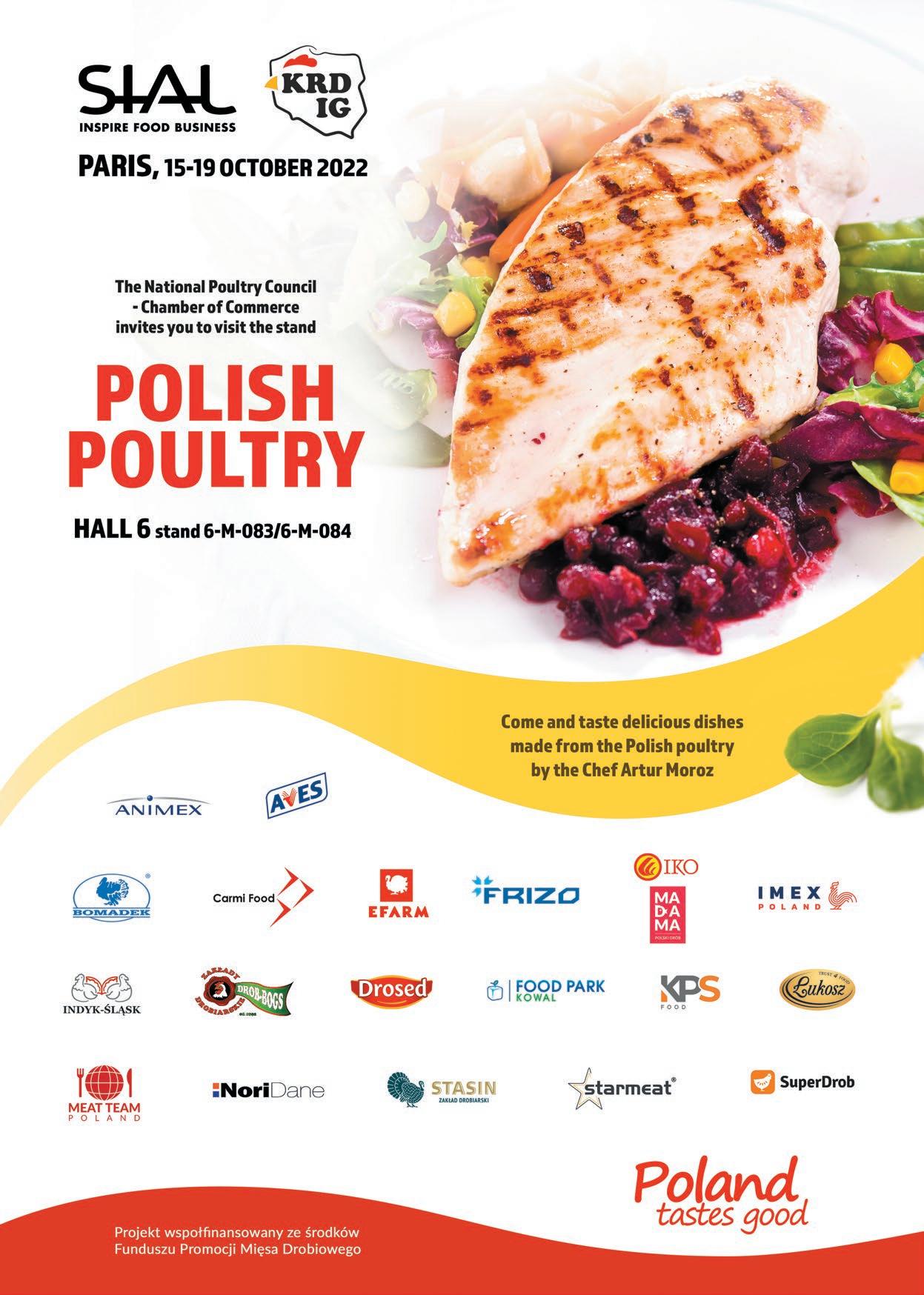
The manufacturer of Dorato has revealed its results. AMBRA Group has published its finan cial results for the financial year of 2021/2022. Poland’s largest wine manufacturer, importer and distributor has experienced record-breaking sales growth during that period.
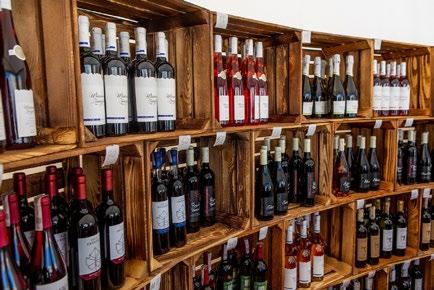
Still wines, comprising the largest share of the Group’s rev enues, grew by 8.2%, definitely above the market growth rate of this segment. The sales on the Polish market, which is the most important for the Group, increased by 12%, and the most frequently purchased products – apart from sparkling wines – included WINIARNIA ZAMOJSKA as well as PORTADA and CONO SUR wines.
„We will invest in further development of our business: we modernize our production plants and make them even more environmentally-friendly,” says Robert Ogór, the Presi dent of the AMBRA Group. He adds that in the year that has just ended, the company has cut its carbon dioxide emissions by 20%.
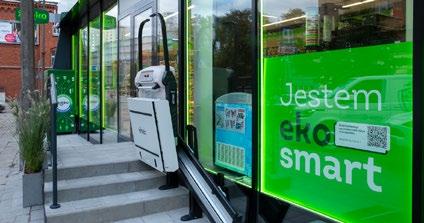

Żabka is opening a laboratory of ecologic innovations enriched by smart solutions. Żabka Eko Smart features one of the world’s first perovskite installations –this groundbreaking technolo gy has been used to make price tags and window blinds with perovskite solar cells. The store is equipped with remote lighting management systems and Smart Shop Control devices located in side, whereas tiles made of coffee grounds and husks are laid next to the coffee machine stand. Clo sed refrigerators, insulated with mats of true hemp, allow for substantial energy savings, as do glycol-filled shelves in the freezing cabinet. Soon, Żabka intends to launch three more shops of such kind in different parts of the country.
The new store fits in with the Żabka Group Strategy of Responsibility, the main areas of which include concern for the natural environment, including achievement of climate neu trality by the end of 2025 and reduction of the emission intensity in stores by 70% by the end of 2026, as well as increase the level of satisfaction of franchisees with their cooperation with the chain.

The market is still growing. Germany, France and Poland – this is the European top three in terms of the number of post lockers. Additionally, Poland is the leader with regard to the number of parcel lockers (almost 11,500).
Parcel machines are a concept enjoying particular popularity in Poland; they have been used by as much as 97% of participants of a survey conducted by Colliers in late 2021.
Furthermore, among all countries in the world, it is Poland that has the most parcel machines per 100,000 inhabitants – in total, there were about 18,000 of them by the end of 2021, and estimates say that the number will exceed 25,000 by the end of 2022.
Mlekovita, a company with many years of tradition and a po sition well established on both the Polish and foreign market, is cel ebrating 30 years of its brand in 2022. The development of the company and the business partnership were the subject of the 1st All-Pol ish Forum of Business Partners, organized by the Mlekovita Group on 15 July 2022.
Mlekovita is the largest dairy group, not just in Poland but in all of Central-East ern Europe. It is already comprised by 22 production plants, 34 own distribution centres, 147 Mlekovitka stores, and the mlekovitka.pl online store.
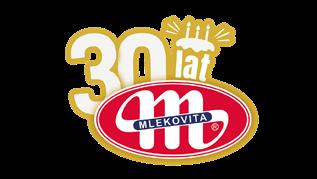
In September, the Tarczyński brand has officially launched its first multi-channel campaign in Lithuania. The goal is to promote kabanosy dry sausages from the Tar czyński Exclusive line. Nationwide actions include key TV channels, online ads, as well as exposure at points of sales (POSs). The Lithuanian market has not been chosen at random. The company has been present there for several years and is currently a leader in the sales of meat snacks from the premium category.

Tarczyński is a brand currently present in nearly 30 countries of the world, on 3 continents. For several years, the brand’s flagship products, i.e. the Exclusive kabanosy, have also been available in Lithuania where they have quickly gained the appreciation of consumers.
The Krajowa Grupa Spożywcza (National Food Group) company is launching its sugar campaign for 2022/2023. During a celebration at the Kruszwica Sugar Plant, the President of the Group announced record-breaking production.
„This year, we intend to break our hitherto record of sugar pro duction. The yields seem more promising than in the previous year, the beet polarization level is higher as well, reaching the amount of 17%,” – Jan Wernicki, the President of Krajowa Grupa Spożywcza, announced on 9 September.
Predictions say that during the 2022/2023 campaign, sugar refi neries owned by the Group are to process approx. 6.2 million tons of raw material. The estimated highest sugar production may exceed 930,000 tons. The estimated highest sugar beet purchase this year will be conducted by Kruszwica Sugar Plant, amounting to almost 1.4 mil lion tons.
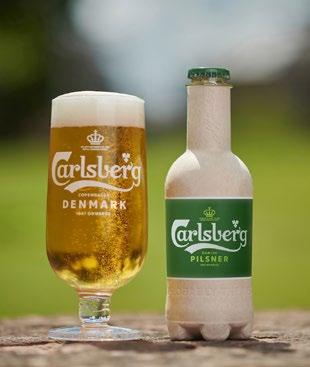
The generation 2.0 Fibre Bottle is a pioneering packaging solution comprised by an inter nal coating of PEF plant-based polymer and an external wood fibre casing. Both materials are of natural origin and make the bottle fully “bio” (excluding the bottle cap).
The Fibre Bottle will not be available for sale, but Polish consumers can win one of 570 innovative, 100% organic Fibre Bottle packages as part of joint opera tions between the Carlsberg brand and the Żabka chain. This is part of a consumer test conducted by the Carlsberg Group in eight countries of the EU, intended to collect information on the consumer experien ces with the Fibre Bottle.
A machine for filling Lubella pasta into packages is a brand new, innovative project Maspex Group is testing jointly with the Carrefour chain and the Swapp! company. The first such device has just appeared at a Warsaw hypermarket.
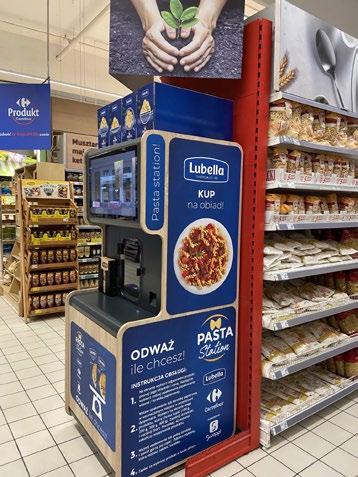
As a part of implementing the objectives announced in the “Hummingbird Effect” Sustainable Development Strategy, Maspex Group aims at limiting plastic use and food waste. One solution to bring the company closer to the achievement of its objectives is the Pasta Station – a refilling machine for purchase of Lubella pasta in paper bags, reusable bags, or own packages. The program is currently in the pilot stage.
Customers of Carrefour Arkadia will be able to buy four flagship types of Lubella pasta: fusilli, conchiglie, penne, and farfalle, each of them in three capacities: 150, 250, and 350 grams.
On the basis of the pilot programme, the company will decide what to develop, both in the context of the customer experience and the software of the Pasta Station. Consequently, the final form of the device may still change.

 Renata Juszkiewicz
Renata Juszkiewicz
In view of the post-pandemic and geopolitical situation, the Polish trade struggles against many crucial challenges. The war in Ukraine has brought about a collapse of imports of fuels and raw materials from Russia and Ukraine. A strategic challenge for the sector is currently the stability of fuel supply and uninterrupted access to energy. Any interfe rences in this area may cause production downtimes and disruption of cold chains, both at the stage of production and trade. In order to main tain the continuity of supplies, the sector has repeatedly appealed to the government to treat the trade sector as critical infrastructure, i.e. one protected against potential electric power and gas supply interruptions.
A new hazard has appeared recently, in the form of nitrogen plants suspending their production of carbon dioxide and dry ice, necessary for food production. Due to the market deficit of such raw materials as sunflower oil, linseed, rapeseed, or soy, trade is facing a potential risk of the occurrence of shortages of certain food items. The industry is also concerned with speculation of food prices in global and local exchanges. This phenomenon adversely impacts the supply of pro ducts in stores and their prices, as we could observe with the example of sugar. A hazard for provision of uninterrupted food supplies to sales outlets is also posed by personnel shortages in logistics, especially in the positions of drivers or distribution centre employees, caused by citizens of Ukraine leaving Poland.
The aftermath of the pandemic is runaway inflation, loss in pur chasing power of the Polish people, and the deepening pauperization of the society. Among the lowest-income people, as much as 66% save money on food. The overarching priority for the industry is to miti gate the inflation shock and to stabilize the prices, to make all Polish families capable of obtaining food and necessary products. Another significant challenge to trade is posed by growing store supply costs. Skyrocketing energy prices have translated into an increase in food production costs, which, in turn, has caused a strong increase in pur chase prices of goods from their manufacturers.
To keep the prices for customers as low as possible, trade chains try to balance out the manufacturers’ price increases, often at the expense of their own margins. This is a colossal effort for the industry, con sidering the high business costs to be incurred by the stores, such as costs of transportation, maintenance of commercial facilities, or labo ur. The inflation acts as an additional sectoral tax, and let us recall that trade is currently facing an accumulation of almost 20 fiscal burdens, such as the trade tax, minimum income tax, or mall tax. The uncer tainty among the members of the industry is also caused by new legi slative changes, such as the final form of the projected deposit system and the implementation costs thereof, estimated at billions of zlotys.
This June, as shown by the latest survey by NielsenIQ, the share of private labels in the market has been the largest ever, comprising 21.1%. According to the survey, 23% of consumers treat private labels as a way to limit their expenses. The growing trend is also confirmed by the sales results of E.Leclerc.

An increase in value by 18% and in quantity by more than 6% – this is the private label sales dynamic E.Leclerc Polska may boast of. As noted by Jacek Stachoń from E.Leclerc Polska, „the sales are still growing”. This applies specifically to the Wiodąca Marka (Leading Brand) – an E.Leclerc brand currently offering nearly 3,000 products.
The growing share of private labels in the entire FMCG market is additionally evidenced by the latest data of NielsenIQ, showing the largest share ever of such products. As the analysis shows, price still remains of primary importance to customers. 7 out of 10 buyers dec lare their knowledge of food item prices, while 8 out of 10 look for promotions while shopping.
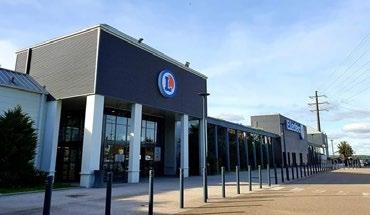
 Maciej Ptaszyński Deputy President of the Board Polish Chamber of Commerce
Maciej Ptaszyński Deputy President of the Board Polish Chamber of Commerce
In 2021 and 2022, consumers have appreciated small grocery stores. Before that, they were often largely unaware how much such stores offer. The pandemic has made the Polish people notice how strategically important and how necessary small neighbourhood shops are. The shopping habits have changed. The customers also see that large outlets cannot handle everything, the smaller ones also have a broader assortment. A discount store may have approx. 3,000 items, whereas at a small store, one can find between 5,000 and 6,000 of them, and sometimes even between 9,000 and 10,000 items, plus local brands that cannot be found in discount stores.
As for the most important changes and trends to come, the Polish Chamber of Commerce points out that the package deposit system that is to come into effect should not include disposable glass packa ging and metal cans.
Another important part of the retail trade market landscape is the issue of Sunday trade limitation.
Since February, an amendment of the Sunday Trade Limitation Act has come into force. As a rule, the Sunday trade limit has proven favourable to a vast majority of small and medium trade enterprises.

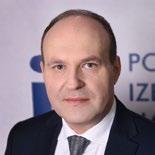
Both the COVID-19 pandemic and the war in Ukraine have si gnificantly affected the processes in the global economy. As a result of pandemic restrictions and the limitation of demand, industrial enterprises were often forced to cease production. The increase in energy raw material prices and component supply shortages have been particularly painful to the automotive sector. Therefore, some European economies are still unable to catch their breath after the pandemic. Poland stands among the countries that have managed to recover from the “coronacrisis”. This February, the domestic industrial production has increased by almost 25% y/y. At the same time, the production in the Eurozone has dropped, while in the entire EU, it has only recorded a slight increase.
Additionally, Europe has found itself in a difficult situation after the Russian aggression on Ukraine, since most countries of the Old
The Sunday trade limitation situation would have been simpler and more orderly if, during the latest amendment of the Sunday Trade Limitation Act, the legislator had acceded to the postulates advanced. Among others, by the Polish Chamber of Commerce, allowing for broadening of the definition of family members who may assist the entrepreneur standing in person behind the counter in accordance with the one already existing in the legal order and letting micro-en trepreneurs use the assistance of students and pensioners on Sundays. One might say such a solution would be simple, compliant with the expectations of the public, and supportive to entrepreneurs. Here, we reach the conclusion that, for the law to be made well and in accor dance with the needs of entrepreneurs, public consultations need to be real consultations and the voice of entrepreneurs should be taken into consideration during the legislative process.
Continent had been dependent on imports of goods from the East until then. Although Poland has not been affected to such a large extent, our economy is feeling the effects of the war just as other eco nomies do. The most severe effect that Polish entrepreneurs mention frequently is the increase in business costs. Disruptions in the func tioning of supply chains come second, and employment problems occupy the third position. However, Polish companies are flexible and quickly adapt to new conditions. This is evident from the results of Polish exports. In the first half of this year, the sales of Polish goods, expressed in euros, were 19.1% higher than the year before. Signifi cant increases in export value were recorded by such industries as door and window joinery or the food sector. It is predicted that the collapse of trade with Russia and Ukraine will limit the growth of the trade volume, yet overall, Polish exports may grow by more than a dozen per cent y/y.
A phenomenon that alters the face of international trade is near shoring, involving the shortening of supply chains through regiona lization of processes and relocation thereof closer to main offices of companies. How can Polish businesses benefit from this? From Po land, one can deliver goods to most European cities within 24 hours, and to the entire continent – within 48 hours. This is a great opportu nity for our entrepreneurs, including small and medium ones.

In 2021, we observed a continued upward trend in the export of Agri-food products from Poland; since 2004 its value has increased more than seven fold. In 2021, the export of Agri-food products reached a record level of EUR 37.4 billion, i.e. it was 9% higher than a year earlier.
The increase in exports was a result of con tinued demand for Polish products, which, de spite rising prices in the second half of 2021, were competitive on the international market. Exports of Polish Agri-food products were supported by the zloty exchange rate against the euro, which was favourable for domestic businesses, and also by the progressive diversi fication of export directions. Also the growing economic activity of Polish entrepreneurs, the proper preparation of domestic companies to operate in the pandemic conditions, and ad justment of the assortment offer to suit foreign consumers with diverse preferences resulted in very good export figures.
The results of foreign sales achieved by domestic exporters in 2021 were also influ enced by high food prices on the world mar ket reflected in the growing value of the FAO monthly food price index. In 2021, the aver age index value increased from 113.5 points in January 2021 to 134.1 points in Decem ber 2021, i.e. an increase by 20.6 percentage points. The prices of vegetable oils (rose by 39.6 pp), sugar (by 22.3 pp), dairy products (by 17.7 pp), meat products (by 16.4 pp) and cereals (by 15.5 pp).
At the same time, the value of imports of Agri-food products amounted to EUR 24.7 billion and it was 8.6% higher than in the previous year. The positive trade balance in creased by 9.7% compared to 2020, reaching EUR 12.7 billion (of which EUR 7.7 billion in trade with the EU-27 countries and EUR 5.0 billion with non-EU countries).
Geographical structure of Polish exports of Agri-food products in 2021
France 6%Netherlands
Other countries
Italy
Germany
EU-27
Czech Republic
Spain
Romania
Belgium
Hungary
Slovakia
EU countries
In 2021, Polish Agri-food products were delivered to customers in 198 countries on all continents. A big diversification of export directions made it possible to compensate for the decline in the value of exports to Great Britain, after the UK left the EU customs union.
As in previous years, Agri-food products were exported from Poland mainly to the EU market. In 2021, deliveries to the EU-
27 countries generated EUR 27.1 billion (an increase of 11%), which accounted for 73% of revenues attained from the total export of Agri-food products.
Polish Agri-food exports to the EU mar ket were characterized by a significant geo graphical concentration. Germany remained Poland’s main trading partner. Exports to this country in 2021 amounted to EUR 9.4 bil lion and was 9% higher than in the previous year (exports mainly of cigarettes, fish prod ucts, poultry meat, bakery products, animal feed and chocolate products). Significant im porters of Polish Agri-food products includ ed also: the Netherlands (EUR 2.2 billion,
In total 34 309 904 37 392
EU-27 24 380 597 27 116 678 11% 71% 73%
Outside EU 9 929 308 10 276 136 3% 29% 27%
Germany 8 622 826 9 388 423 9% 25% 25%
Great Britain 3 103 907 2 972 703 -4% 9% 8%
Netherlands 1 929 233 2 240 166 16% 6% 6%
France 1 850 883 2 148 501 16% 5% 6%
Italy 1 727 116 1 903 061 10% 5% 5%
Czech Republic 1 512 038 1 592 362 5% 4% 4%
Spain 882 656 1 100 485 25% 3% 3%
increase by 16%; exports mainly of poultry meat, cigarettes, corn grains, fruit and veg etable juices, chocolate products and beef), France (EUR 2.1 billion, increase by 16%; exports mainly of poultry meat, meat prod ucts, chocolate products, animal feed, bakery products and beef), Italy (EUR 1.9 billion, an increase by 10%; exports of cigarettes, beef, fish products and animal feed which ac
counted for nearly 50% of the export value) and the Czech Republic (EUR 1.6 billion, an increase by 5%; exports mainly of poul try meat, bakery products as well as cheese and cottage cheese). In total, exports to the markets of the five above mentioned coun tries generated a revenue of nearly EUR 17.3 billion, which accounted for approximately 64% of the export value to the EU-27.
In 2021, Agri-food products with a to tal value of EUR 10.3 billion were exported from Poland to non-EU countries, 3% more than in the previous year.
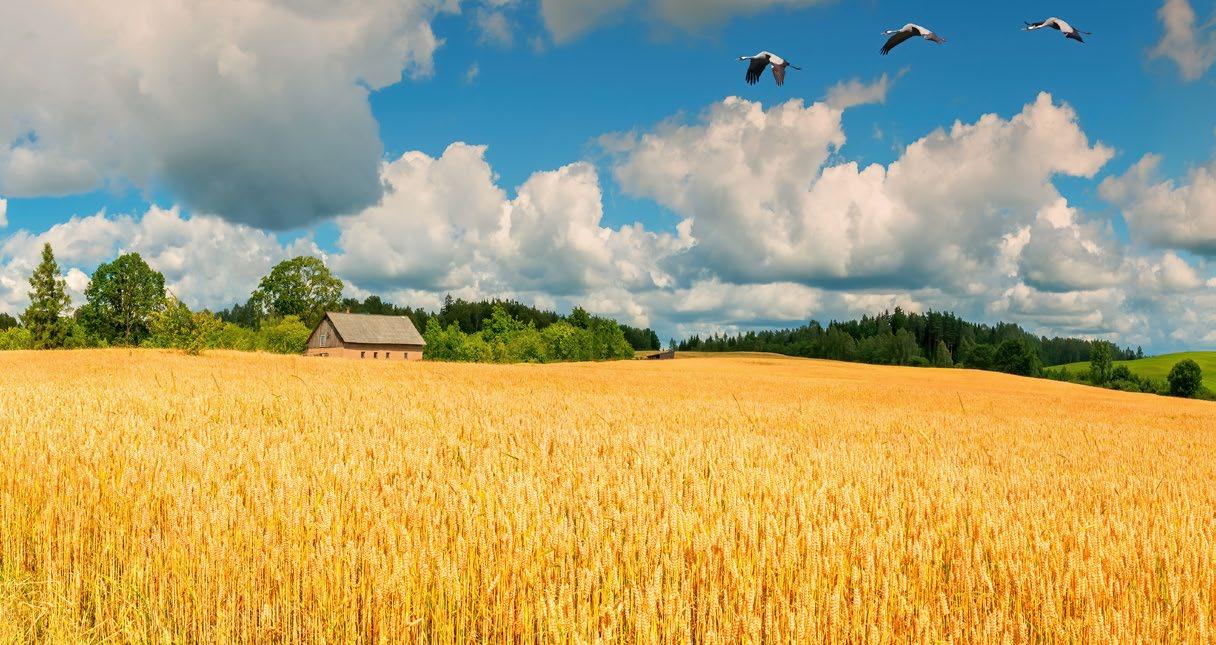
• Non-EU countries (excluding the CIS)
In 2021, exports to non-EU countries (excluding the CIS countries) increased by 2%, to EUR 8.4 billion. Outside the Europe an Union, the United Kingdom maintained the position of the largest importer of Polish Agri-food products (with revenues of EUR 3.0 billion, a decrease by 4%; exports mainly of meat products, poultry meat and chocolate and bakery products). Taking into account the changes in market conditions after the coming into force of the trade and coopera tion agreement between the European Union and Great Britain, a relatively small decrease in export revenues should be considered as confirmation that trade contacts have been maintained by domestic entrepreneurs. The factor supporting the competitiveness of Pol ish Agri-food products exported to the Brit ish market was a strong appreciation of the pound sterling against the domestic currency.
Significant importers of domestic Agrifood products, as in previous years, were also: The United States (EUR 612 million, increase by 14%; exports mainly of chocolate products, pork, fish products, alcohol and processed meats), Saudi Arabia (revenues of EUR 510 million, decrease by 26%; exports mainly of cigarettes and wheat) and Algeria
total
meat, meat products and livestock
cereal grains and products
tobacco and tobacco products
sugar and confectionery
dairy products
fish and fish products
vegetables and products
and products
oilseeds and plant fats
coffee and cocoa
300
(EUR 418 million, an increase by 66%; ex ports mainly of wheat grains – 55% of the export value, concentrated and powdered milk – 25%, and tobacco – 16%), followed by: Israel (EUR 293 million, increase by 19%; exports mainly of beef and sugar), Norway (EUR 270 million, increase by 15%; exports mainly of cigarettes, fruit preserves, animal feed and wheat), China ( EUR 190 million, decrease by 7%; exports mainly of liquid milk as well as cream and whey – in total 57% of the export value) and Switzer land (EUR 188 million, increase by 10%; exports mainly of alcohol, animal feed, water and bakery products).
In 2021, exports to the countries of the Commonwealth of Independent States amounted to EUR 1.9 billion, and it was
10% higher than in the previous year. Among the CIS countries, the highest value was achieved by exports to Ukraine - EUR 811 million (increase by 7%; exports mainly of cheese and cottage cheese, animal feed, choc olate products, coffee and bakery products), then to the Russian Federation - EUR 676 million (increase by 19%; exports mainly of bakery and chocolate products and vegetable preserves) and to Belarus - EUR 249 million (decrease by 1%; exports mainly of fresh ap ples and pears, seedlings and cut flowers, fruit and vegetable preserves).
In 2021, the following goods dominated in the commodity structure of revenues ob tained from the export of Agri-food products: meat, meat products and livestock, cereal grains and products, tobacco and tobac
co products, sugar and confectionery, dairy products, as well as fish and fish products. The export of the above mentioned groups of goods generated a total of 63% of the revenue obtained from all exports of Agri-food prod ucts from Poland.
In 2021, there was a decrease in the share of revenue generated from the ex port of Agri-food products in Polish total exports, which amounted to 13.1% com pared to 14.3% in 2020.
The National Support Centre for Agriculture establishes and develops contacts with entities interested in cooperation with the Polish agri-food sector and development of trade.

Contact us under the address: eksporter@kowr.gov.pl
information: www.polandtastesgood.pl/en/
Among the CIS countries, the highest value was achieved by exports to Ukraine –EUR 811 million.





How has the logistics market changed over the recent years? What has become the priority in the services of this segment?
The logistics market is one of the most actively developing sectors of the economy. One can easily see new warehouses sprouting around the largest agglomerations. In view of opening up to new product searches, the demand for innovative logistics and transport solutions has increased. Currently, of great importance is flexibility in relation to customers – services provided on the highest level, as well as con sulting in the area of proper storage, warehousing, and transporta tion. A major role is played here by partnership in relations between partners – highlighting potential problems which might be encoun tered, as well as presenting ways to solve them. Appropriate personnel, numerous training, experience amassed over the years, all become an invaluable source to overcome difficulties posed by the requirements of a market expecting professional and reliable service.
Is a logistics partner able to affect savings, or even increase profits, of manufacturers in the FMCG sector?
The term “logistics partner” may denote companies specializing in a given branch for many years – no company specializes in all branches of the sector of logistic services – which know all inner workings of the given area inside out. Learning, many times, from their own experiences and errors, they are able to nullify and prevent any future problems which might arise in cooperation with a new contractor and a long-time partner alike. Additionally, what matters is reliable and transparent cooperation, as well as explanation of cost-related details: what they result from and what consequences they entail.
The logistics market is one of the most actively developing sectors of the economy. On challanges, savings, geopolitical situation and innovations we talk with Sebastian Romaniak, Transad Owner.
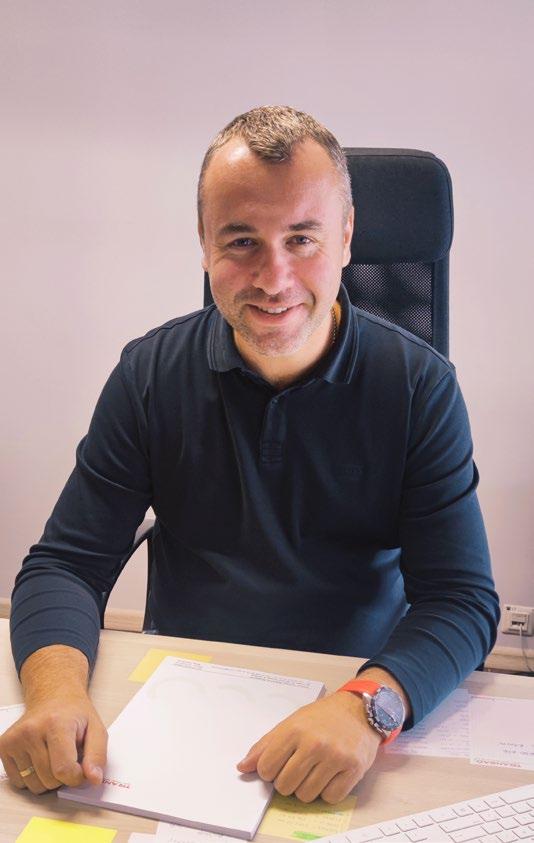
Analysis of the given needs and expectations will minimize the risk of, first of all, failure, and secondly, potential losses due to inexperience and wrong decisions. There are tools allowing one to minimize the costs; it is a matter of finding them, implementing them and using them correct ly, as well as conversations with experienced people willing to share their knowledge and expertise.
What kind of services are your specialty? What makes your offer stand out?
The leitmotiv of our company is refrigerated transport – products that need to be carried under a controlled temperature; from foods to com ponents to medical products. It is due to customers to whom we have been providing services for years that we are developing, expanding and improving our fleet every year. Currently, we own every semitrailer type available on the global market, as far as refrigerating equipment is con cerned. Our fleet includes standard semitrailers, as well as double-floored ones, floral refrigerators, multi-chamber ones with partition walls to trans port goods at different temperatures; some of them have lifts. Most of our units are semitrailers with room for 33/66 pallets, but we also have small er ones, accommodating between 1 and 18 pallets, which allows us to distribute even to very hard-to-reach places. Additionally, apart from our vehicle fleet, we have a cadre of perfectly trained personnel fully involved in customer assistance and consulting. They oversee the entire process of transportation from point A to point B. This process is more than just pulling up to be loaded and reaching the unloading site; there is a whole range of relations to be fulfilled if the entire operation is to have a happy ending. Through commitment and passion, they prove their dedication to the company which is not just corporation but also the very friendly rela tions we have here. Everyone is involved in the works and development of the company, as evidenced by the expanding fleet and the new challenges posed by cooperating companies, which is proof of their confidence in us.
In view of the drastically growing prices or the unstable geo political situation, it is a challenge nowadays to maintain the continuity of business. How do you provide your contractors with a stable supply chain?
The lack of stability in the world, with regard to both prices and geo political problems, affects us all, and entrepreneurs indeed bear the brunt of it. However, this affects not just the logistics sector but all areas of the economy. First of all, the situation impacts the first link of the chain; an increase in transportation costs affects the increase of prices in the final effect. However, many conversations with our contractors allowed us to realize the problems we are all facing, hence full comprehension thereof and the will to cooperate further. Nowadays, as I have already mentioned, it is not only price that matters but flexibility, the will to cooperate, ac tions based on the “win to win” principle, consulting, availability, timeli ness, as well as openness in solving problems and searching for solutions. Also with price increases, especially of fuel, our partners fully understand the lack of stability and our models of cooperation are elaborated in such a way as to avoid any disruptions to the supply chain at any moment.
How do you adapt your offer to the individual needs of contractors from different countries? Are you able to react to all variables?
The answer is in the question – this is individual. It is the basis of ac tion in the current times and situation, not just on the market of logistics services but mainly based on the best possible relations with partners. We cooperate differently with each one of them, as each customer is different, with individual needs, requirements, standards, or norms. However, since we know our partners and constantly remain in touch with them, we can respond on an ongoing basis and monitor all variables appearing during the implementation of individual tasks, virtually in real time.
As I have said before, we own every semitrailer type currently available on the market. We put much emphasis on proper servicing, appropriate equipment, regular maintenance, and systematic inspection of the correct ness of operation of individual components. Of tremendous importance to us is the proper operation of our equipment, worth several hundred thousand euros and often used to transport goods exceeding its value; si multaneously, we are able to ensure the safety of the property entrusted to us and, above all, to the drivers. Additionally, our semitrailers are equipped with many more options of cargo securing than in other companies of a similar nature have. Our stock is no older than 3 years, we systematically replace it with newer equipment, allowing no shortcomings on our part. We use all innovative solutions available on the market, and we search for them ourselves, to strengthen our position even more, expand the offer, and increase our competitiveness.
Innovativeness is a key area of operation on many markets, in lo gistics as well. What technologies and innovative solutions do you use?
We are able to find a solution for virtually every customer. It is not a problem for us to carry both frozen and fresh goods at the same time; whether it is 2 pallets of frozen fish or a whole truckload of fruit, we can

deliver on time. Each time, we approach every order individually, adapt ing to the needs required by the contractor. An extensive fleet, storage facilities – it is mainly due to this that we can store, repackage and reload goods as well, while preserving the cold chain all the time. Our employees take care to satisfy the customer to the full extent and also to make prop er use of our fleet and capabilities, such as double-chamber refrigerators enabling simultaneous transportation of fresh and frozen goods, or dou ble-floored refrigerators for transportation of increased batches of goods, e.g. 66 pallets. The only limit is our imagination.
How do the forwarding services you offer optimize the transport processes?
Above all, through using our own fleet, we know the real costs borne by transport companies, especially by forwarding ones. Based on our own example, we have experienced what most service-selling companies have only read about in industry magazines; we now have real costs we are able to document and present to our contractors. In addition to the numbers, immediately visible when the concept of optimization is concerned, one should not forget timeliness. Aware of the transported cargo, especially foods, we allow no delays. We adapt our cadre of drivers to perform the entire operation flawlessly. We know that the cargo loses quality with each delay, and thus the quality is reduced when it reaches the end recipient –and, in fact, we are such recipients too every day.
Our greatest benefit is customer satisfaction and orders for new trans ports, as well as new challenges being posed to us. This motivates us to act and develop even more dynamically.
What goals do you set for yourself for the years to come?
Development, development, development, and more development. Of course, as every entrepreneur, we have assumed a certain business plan we are implementing step by step. We are unable to foresee the geopolit ical situation and the extent to which it would impact us, but we surely intend to significantly increase our vehicle fleet, to develop even more with regard to less-than-truckload transportation, as well as to expand the scope of storage services. We can see potential in each of these areas. Few companies are willing and able to develop in all of the mentioned areas, while we can see a future in them. We will surely be able to repeatedly prove our experience to the customers who work and will work with us.
Thank you.
SM Mlekpol has been operating in the Polish market for more than 40 years. Over this period, it has taken over other cooperatives with diverse production profiles, reinforcing its position in Poland and abroad. Today, the Cooperative makes dairy products at 13 highly specialized and stateof-the-art production plants. The dairy raw material used for production comes from domestic farms located around the plants in the regions of Podlasie, Warmia and Masuria, as well as Kujawy. Each day, the Cooper ative processes more than 5.5 million litres of milk into products under brands so familiar to the consumers: Łaciate, Zambrowskie, Białe, Milko, Maślanka Mrągowska, or Rolmlecz.
Mlekpol, as the dairy cooperative with Poland’s largest own raw ma terial resources, i.e. processing 17% of all milk produced by Polish farms, exports almost 30% of its entire production. Mlekpol products are avail able in more than 100 countries worldwide, and Łaciate, the most popular Polish milk brand, reaches as many as 6 continents. Despite the difficult and unpredictable situation in the world, the company’s turnover between January and July 2021/2022 has grown significantly.
The most strategic directions for Mlekpol are European countries, such as the Baltic states, Slovakia, the Czech Republic, Bulgaria, Romania, Greece, Italy, and Germany. This is due to their European Union mem bership, guaranteeing freedom of trade, and the capability of using road transport to ensure short delivery times. Moreover, we focus on countries with insufficient dairy production of their own, which need to import various dairy products. These include China, Indonesia, the Philippines, Vietnam, South Korea, Israel, Mexico, Chile, the Dominican Republic, India, Iraq, Moldova, or Serbia. The range of products exported in these directions is very wide, starting from those intended for the B2B market, such as skimmed milk, whole milk and powdered whey products (in cluding WPC 85), to the ones aimed at distributors and retail customers. These include cheeses, butter, UHT milk and cream, yoghurt, etc. The Cooperative’s export capabilities are large enough to respond to the de mands of new customers in other markets of the world.
We talk with Małgorzata Cebelińska, Trade Director at SM Mlekpol – the dairy cooperative with Poland’s largest own raw material resources and the producer of finest Polish dairy products.

What are the hazards and opportunities for export today?
There was the corona virus pandemic that has proven food to be a strategic issue for every well-functioning state. Interrupted supply chains and other problems we had been experiencing then caused state governments to take action via local importers towards greater diversification of suppliers, including suppliers of dairy products. Mlekpol, a well-known and reputable manufacturer, is still gaining new customers on new markets. Unquestionably, export activities are threatened by the current geopolitical events, adversely affecting the continuity of cooperation and the supply of goods between indi vidual countries. Another problem is posed by economic issues, such as inflation and the related growth of prices of raw materials and key production materials. They cause higher business financing costs and a decrease in the customers’ purchasing capabilities. Purchases made by importers are thus more cautious, and the stocks they build last for a shorter time.
What are the consumer requirements worldwide and how does Mlekpol respond to them? Is it easy to match the expectations of con sumers from different countries?
Participation in fairs in different countries and different continents allows us to meet consumers and distributors from many countries and to learn their particular needs and inclinations. Consequently, Mlek pol implements many dedicated projects taking into account such spe cial preferences. Moreover, the Cooperative has created international brands, such as Milcasa or Happy Barn, already familiar to consumers in different countries worldwide. Due to the deep-sea transport and distribution capabilities of importers, Mlekpol primarily focuses on products with long shelf lives. High specialization of production and modern technologies implemented in production plants create greater flexibility and possibilities for the implementation of dairy production dedicated to customer needs. With our experience and cooperation with a specially established Institute of Dairy Industry Innovation based in Mrągowo, Mlekpol is open to every cooperation and eager to take new challenges.
Thank you.
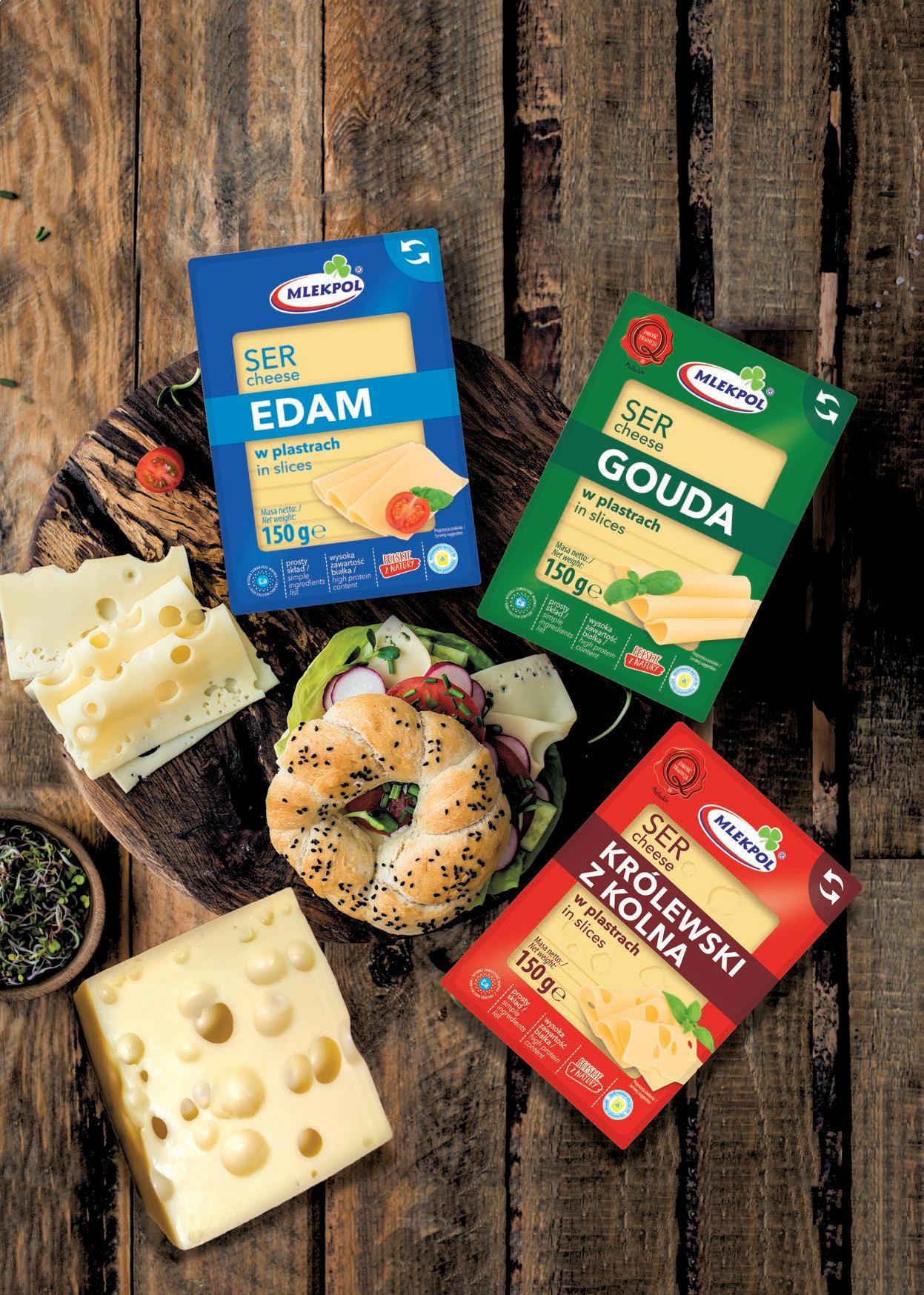
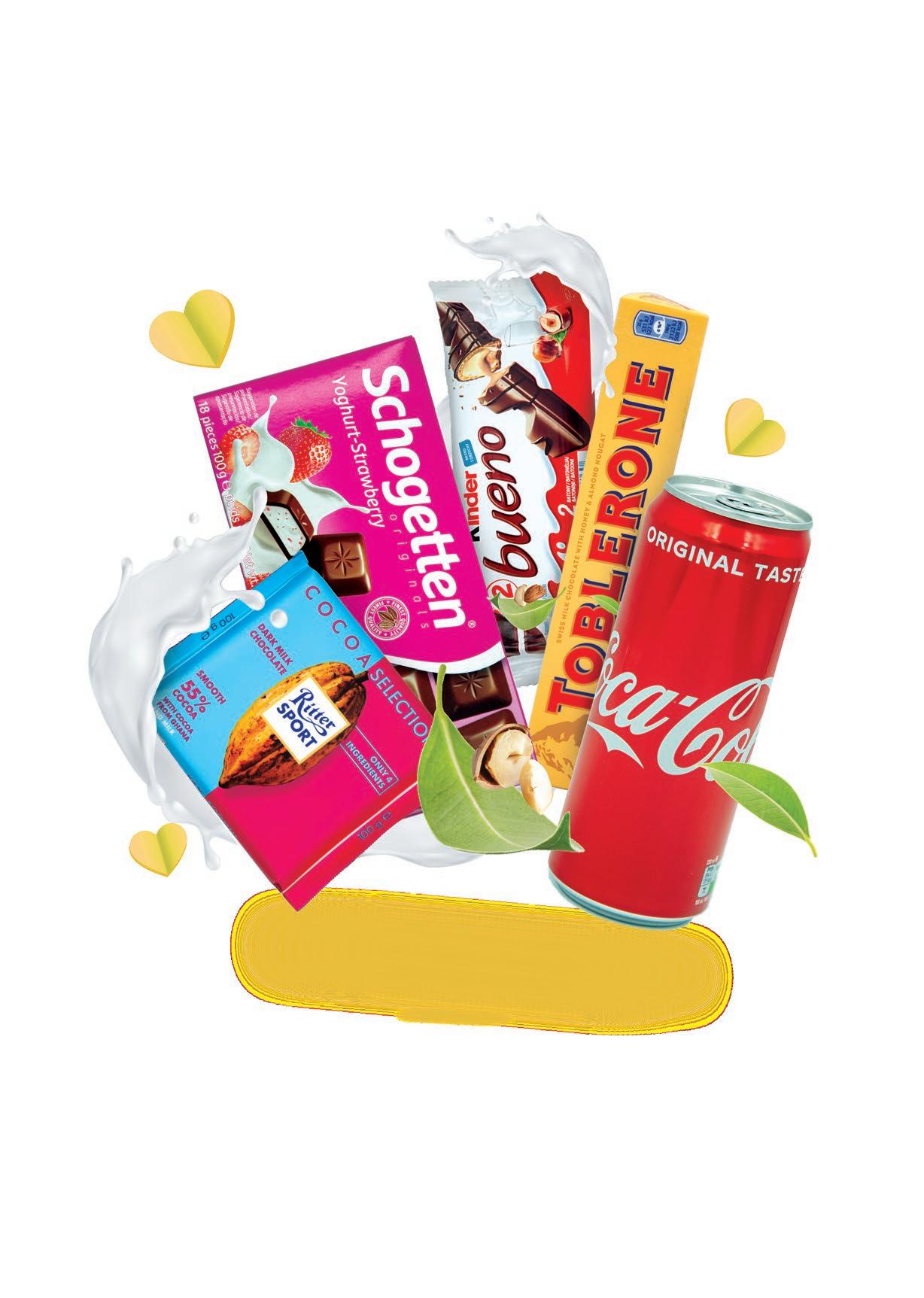




100 active markets on five continents, millions of products delivered – nothing is impossible for the Brand Distribution Group.
For more than 30 years, they have been supplying thousands of products to cus tomers around the world: food, household chemicals, and cosmetics. The success of the Brand Distribution Group is based on experi ence, international relationships, and knowl edge of markets, products, and consumers. The Brand Distribution Group owes its suc cess to... people.
The basis of success in distribution is a true passion, thirst for knowledge, open communication, and multitasking. Experi enced sales representatives say that it is the ability to do several transactions at once that attracts more business partners. This is more so because they perfectly understand the needs of their customers – retailers, whole salers, merchants of large retail chains, and, above all, the target consumers.
– There’s a lot going on at the same time. There is no boredom, there are tasks. What about the goal? To understand the needs of a business partner – says Wiktoria Karpiel, who coordinates the work of the sales team in the Spanish-speaking markets daily.
Other experts at the Brand Distribution Group share similar considerations. Not a day goes by that their teams don’t ship hundreds of thousands of products to customers around the world. The expedition of quickly tradable products is their element. They have been working for the company for years – it’s a busi ness where relationships and mutual trust mat ter above all. And these take time. Especially because we are talking about relationships be tween different cultures, races, religions, cus toms, behaviors, and languages.
Sales representatives speak fluent English and the languages of their business partners’ countries of origin. They are all university graduates and have many years of industry experience. They love what they do and con stantly deepen their knowledge of the mar kets, local trends, applicable laws, customs regulations, and much more.
One-man band? In the Brand Distribu tion Group, yes. – Expert, connoisseur, advi sor. From product search to negotiation and delivery to the point of sale. Logistics? Right away! Flexible approach to order processing? Of course! – says Katarzyna Bruczko, busi ness unit leader, which serves clients from North America. She added that the current macroeconomic situation was an addition al obstacle. – Higher costs, poorer access to resources, disruptions in supply chains, ex change rate fluctuations, and inflation. An obstacle is a challenge, so the Polish trait comes in handy – the ability to adapt to the most difficult situations”, explains Bruczko.
The Brand Distribution Group offers a service that starts with the search for goods at a reasonable price, logistics, and the prepa ration of all necessary customs documents and transport. It is a close collaboration of many de partments of the company: Trade, Purchasing, Finance, Controlling, Logistics, Marketing, and Customs Agency. – It is no wonder that the company’s purchasing department is a team of scouts trained in international search – empha sizes Malgorzata Lukaszuk. – Do you find a product on another continent and bring it to
Poland, for example? For us, it’s a piece of cake! When consumers reach for a product on the shelf, they don’t realize how much effort and work goes into getting the East Asian delica cy on the shelf in a shop on the other side of the world. We take care of the formalities be cause our business partners don’t have time for them. Their goal, and our mission, is to deliver a product that allows them to reach their profit margin”, adds Lukaszuk.
What is allowed in one market can be banned in another, so the attempt to market such products is a recipe for financial and reputational disaster. – We know how local law regulates the composition of the product, the descriptions on the labels, and even the tools of marketing communication, explains Katarzyna Bruczko. For example, the usual gelatin for Americans or Italians, often mixed with sweets, disqualifies the product in the markets of Islamic countries. Because the in dustrial source of gelatin is pork. Therefore, expert knowledge is required in product sales teams in different markets.
Product data sheets, studies, certificates, la beling – sales representatives need to know ex actly what they are selling. Edyta Owsiejczuk, business unit leader of the export team for Central Europe and the Balkans, confirms the words of her colleague. – Knowledge of the lo cal market is the guarantee of the success of my business partner. I need to know which brand of washing powder is most appreciated by con sumers and why. And I must find a replace ment if I need one. We cannot afford to lose trust, she explains. For this reason, the Brand
Distribution Group offers thousands of prod ucts. – We need to be sure that the product thrives on the market and that the customer has a sense of security, adds Wiktoria Karpiel.
Pandemic, commodity, energetical cri ses, broken supply chains, inflation, and skyrocketing price increases. For others, it’s a problem, for Brand Distribution Group it’s an opportunity to show how much they can support their business customers even in turbulence.
Some products can be replaced by oth ers, less popular, but often with potential for iconic brands. – Our new destinations are not self-evident, but we don’t think it makes sense for a global business to stick to old patterns. For this reason, we have decided to look at customers from other, even a little exotic, markets. It has been shown that con sumers from countries such as Uzbekistan, Mongolia, Armenia, and Georgia are much more open to new products than before”, ex plains Anna Muszynska, business unit leader of the Eastern Markets Team.
Although prices continue to be the most important determinant of consumer choices, other motivations and trends come into play. An example of this is the growing demand for superfoods and functional foods. Knowledge from other, already mature markets is very useful in opening new markets. For example, from an already very diversified superfood market in Poland, says Klaudia Ejsmont, who works in French-speaking countries (France, Belgium, etc.). – Many superfoods or func tional foods come from Poland. So, we have our share in the promotion of domestic pro ducers in other market, she says.
The company’s business sense is also re flected in its approach to the organization of deliveries. Mixed deliveries are the perfect an swer to the crisis. The ability to mix goods in transport, i.e., to ship mixed categories, is a clear advantage of the Brand Distribution Group. It is a win-win for both parties – retailers and pur chasers. – Transport costs are increasing, so it is our aim to organize delivery in such a way as to maximize space and capacity. The custom er receives from us a product volume that is so loaded that the proportion of transport costs relative to the value of these products is as low as possible – says Anna Muszynska.
All employees of the company agree that sales work is based on constant change and adrenaline. They are not complaining be cause, as they say, the number of customers returning to the Brand Distribution Group is increasing. It is a sign of the quality of their work. They also appreciate the opportunity to get in touch with people from all over the world. Here, working in an international environment is not a slogan from a corpo rate recruitment advertisement. It is not just about markets, but above all, about cultures. This can be seen, for example, in the man
ner of business communication. – In Europe, e-mail business contacts dominate, but Bra zilians or Uzbeks prefer to make calls. For the people of the Balkans, it is completely natural to combine business topics with pri vate ones, and everything at dinner – this is what charmed Edyta Owsiejczuk, who works with clients from the Balkans and appreciates openness in contact with her business part ner. – The customer is our focus – adds Anna Muszynska. – His trust, relationships, and sense of professional and safe service are the basis of our work.



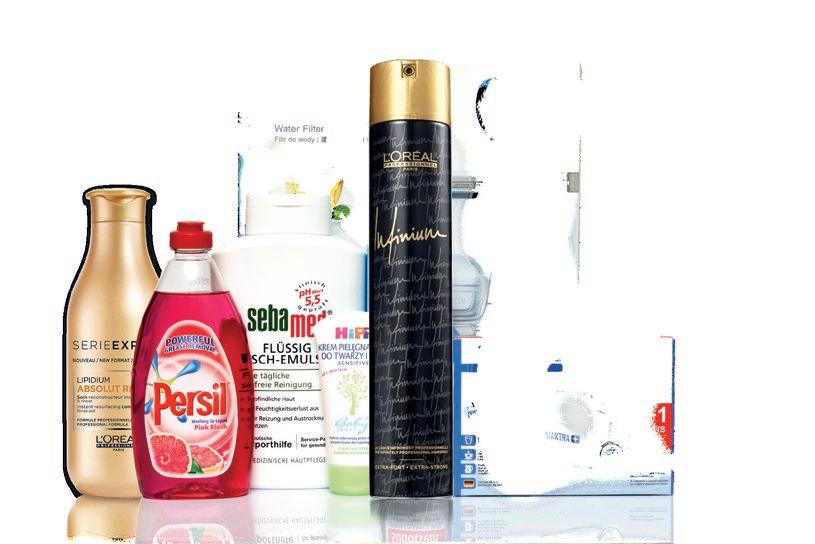

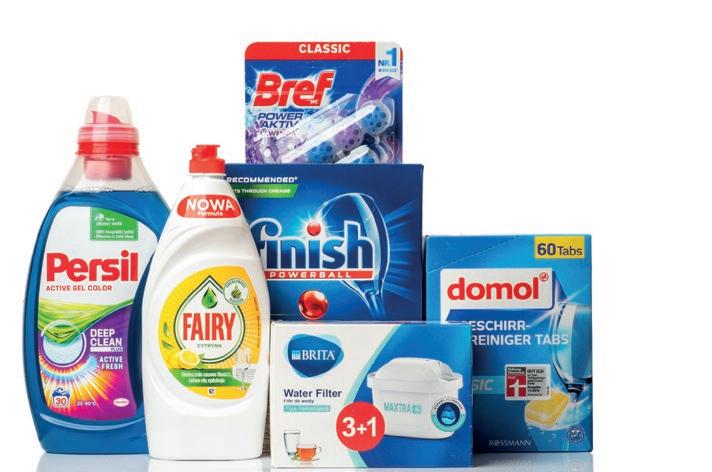
For over 30 years we are one of the leaders of Polish export ers. As a part of Ewa Bis Group, we have been supplying top quality Polish food to over 70 countries around the world.
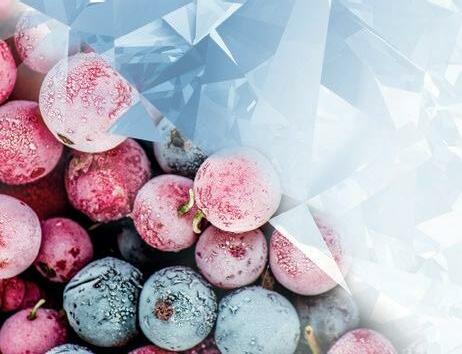
We sell our products across the EU, Africa, Asia and North America. We have been cooperating with large interna tional manufacturers, distributors, retail chains, and smaller local stores and wholesalers. Our main purpose is to satisfy the needs, requirements and expectations of our customers
quality and food safety of offered products.
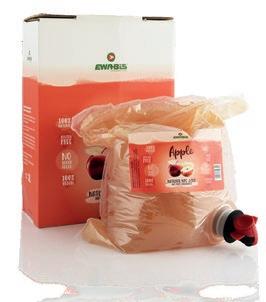
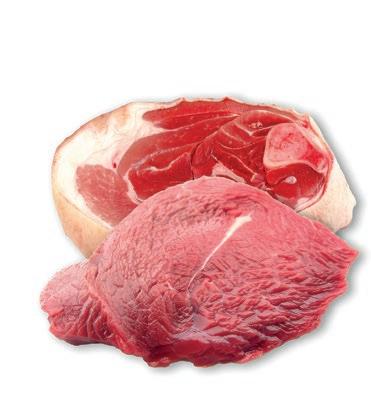
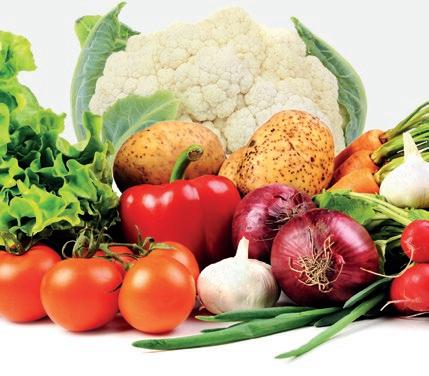

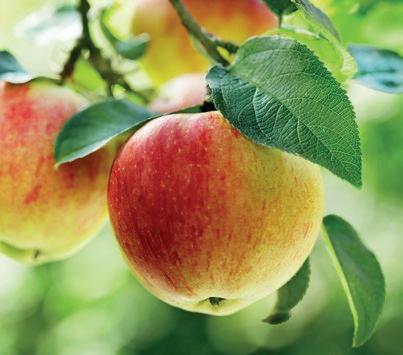
In the period from January to May 2022, the sales value of agri-food goods abroad reached € 17.9 billion (PLN 82 billion), 21.9% higher than in the comparable period a year earlier.
The increase in revenue generated from foreign sales in the period from January to May 2022, as well as the higher growth rate in 2021, confirm that domestic agri-food entrepreneurs are doing well in the interna tional market. The export of agri-food prod ucts makes it possible to manage the surplus of food produced in Poland, which is an important source of revenue for the Polish agri-food industry and indirectly affects the economy of the country as a whole.
The increase in the value of exports was largely contributed to by the favorable ex change rate of the zloty against euro, which favored the price competitiveness of Polish agri-food products on the international mar ket. The good results obtained in the export of agri-food goods testify to the growing activity of domestic entrepreneurs to diversify business relations in third-country markets and the high quality of the products offered. Thanks to the adaptation of the assortment offer by our domestic entrepreneurs to the diverse pref erences of foreign consumers, the demand for Polish products on the international market is maintained. In addition, the relatively small, nearly 4% share of CIS countries in food ex port revenues has limited the negative impact of the armed conflict in Ukraine on total agrifood export performance.
The revenue generated from foreign sales by domestic exporters was also affected by high food prices on the world market, due to global inflationary factors, among other fac tors. This situation was reflected in the rising value of FAO’s monthly food price index. In the period from January to May 2022, the average value of the index increased from
Geographical
Other
Other
France
135.6 points in January 2022 to 157.9 points in May 2022, i.e. by 22.3 points. In partic ular, the prices of vegetable oils (up by 43.3 points), as well as cereals (32.9 points) and dairy products (11.2 points) showed signifi cant growth dynamics.
At the same time, imports of agri-food products amounted to EUR 12.5 billion (PLN 57 billion), 27.7% higher than a year ago. The positive balance of trade stood at EUR 5.3 billion (PLN 25 billion), 10.2% higher than in the period from January to May 2021.
As in previous years, agri-food products were exported from Poland primarily to the European Union market. In the period from January to May 2022, deliveries to the EU-27
generated more than EUR 13.3 billion (a 27% increase), which accounted for 75% of the rev enue generated from total agri-food exports.
The main products sold to EU coun tries were: poultry meat (EUR 1.2 billion), cigarettes (EUR 1.1 billion), dairy products (EUR 0.9 billion), beef (EUR 0.7 billion), bread and bakery products as well as animal feed (EUR 0.6 billion each), and chocolate products (EUR 0.5 billion).
Polish agri-food exports to the EU mar ket are characterized by significant geo graphic concentration. Germany remained Poland’s main trading partner. Exports to this country in January-May 2022 amount ed to EUR 4.5 billion and were 26% higher than a year ago. Important recipients of Pol ish agri-food products were also: The Neth erlands (EUR 1.2 billion, up 39%), France (EUR 1.1 billion, up 28%), Italy (EUR 874
million, up 9%) and the Czech Republic (EUR 805 million, up 31%). In total, ex ports to the markets of the aforementioned five countries generated EUR 8.5 billion, which accounted for about 64% of the value of exports to the EU-27.
Agri-food products worth more than EUR 4.5 billion were exported from Poland to non-EU countries in the period from Jan uary to May 2022, 8% more than in the first five months of 2021.
Exports to non-EU (non-CIS) countries increased by 12%, to €3.8 billion. The main exports from Poland to non-EU (non-CIS) countries were dairy products (EUR 343 mil lion), poultry meat (EUR 340 million), ciga rettes (EUR 235 million), chocolate products (EUR 233 million), bread and bakery prod ucts (EUR 215 million) and meat products (EUR 207 million).
Significant buyers of domestic agri-food products, as in previous years, were primari ly: Great Britain (revenues of €1.5 billion, up 33%), the United States (€295 million, up 27%) and Saudi Arabia (€177 million, down 41%), followed by: Israel (€155 million, up 45%), Norway (€114 million, up 16%), and Algeria (€103 million, down 52%).
In the period from January to May 2022, exports to CIS countries stood at EUR 694 million, 7% lower than in the compara ble period a year earlier. Poland’s exports to CIS countries were mainly bread and bakery products (EUR 44 million), fresh apples and pears (EUR 41 million), chocolate products as well as cheese and cottage cheese (EUR 36
million each), animal feed (EUR 35 million) and coffee (EUR 25 million).
The commodity structure of Polish ex ports of agri-food products was dominat ed by meat and meat products. In Janu ary-May 2022, revenues generated from foreign sales within this commodity group were 37% higher than a year earlier and amounted to EUR 3.7 billion, accounting for 20% of the value of all Polish agri-food exports. Poultry meat (43% - EUR 1.6 bil lion), beef (23% – EUR 842 million) meat preparations (23% – EUR 834 million) and pork (9% – EUR 317 million) ac counted for the largest share of the export value. Exports of live animals and other meat species were relatively small and each accounted for about 1% of Poland’s meat product export revenue.
The second position in terms of value, with a 13% share of Poland’s agri-food ex ports, was occupied by cereal grains and processed goods. Their total sales, compared to January-May 2021, increased by 20%, to EUR 2.3 billion.
In the commodity group analyzed, ex port revenue from cereal grains amounted to nearly EUR 1.0 billion. In the structure of the export volume of 3 million tons of grain, corn accounted for 54% (1.6 million tons), wheat 29% (885,000 tons), and rye and barley 6% each (135,000 tons and 121,000 tons, respectively).
Domestic exporters sent grain primarily to the EU market (2.4 million tons, 79% of exported grain). In January-May 2022, corn grain was exported mainly to Germany (853 thousand tons, 53% of grain exports), the Netherlands (215 thousand tons, 13%) and the UK (133 thousand tons, 8%).
Wheat was mainly exported to Germa ny (384 thousand tons, 43% of the exports of this grain), Nigeria (99 thousand tons, 11%) and South Africa (93 thousand tons, 11%). The main direction of rye exports from Poland was Germany (123 thousand tons, 91% of the exports of this grain), and barley – Germany (56 thousand tons, 46% of exports of this grain) and Algeria (31 thousand tons, 25%).
Increases in the value of exports were recorded for tobacco and tobacco products (up 2%, to €1.7 billion), dairy products (up 39%, to €1.5 billion), sugar and confec tionery (up 17%, to €1.2 billion), as well as vegetables and processed foods (up 15%, to €0.8 billion) and fruits including preserves (up 12%, to €0.7 billion). There was also a higher value of exports of, among others: oilseeds and vegetable fats, up 83% (€0.5 billion); coffee, tea and cocoa, up 16% (€0.4 billion); alcohol, up 18% (€0.3 billion); and fruit and vegetable juices, up 35% (€0.3 bil lion). In contrast, receipts from foreign sales of fish and processed foods decreased (by 2%, to EUR 1.0 billion).
Prepared in the Office of Analysis and Strategy at the National Center for Agricul tural Support.
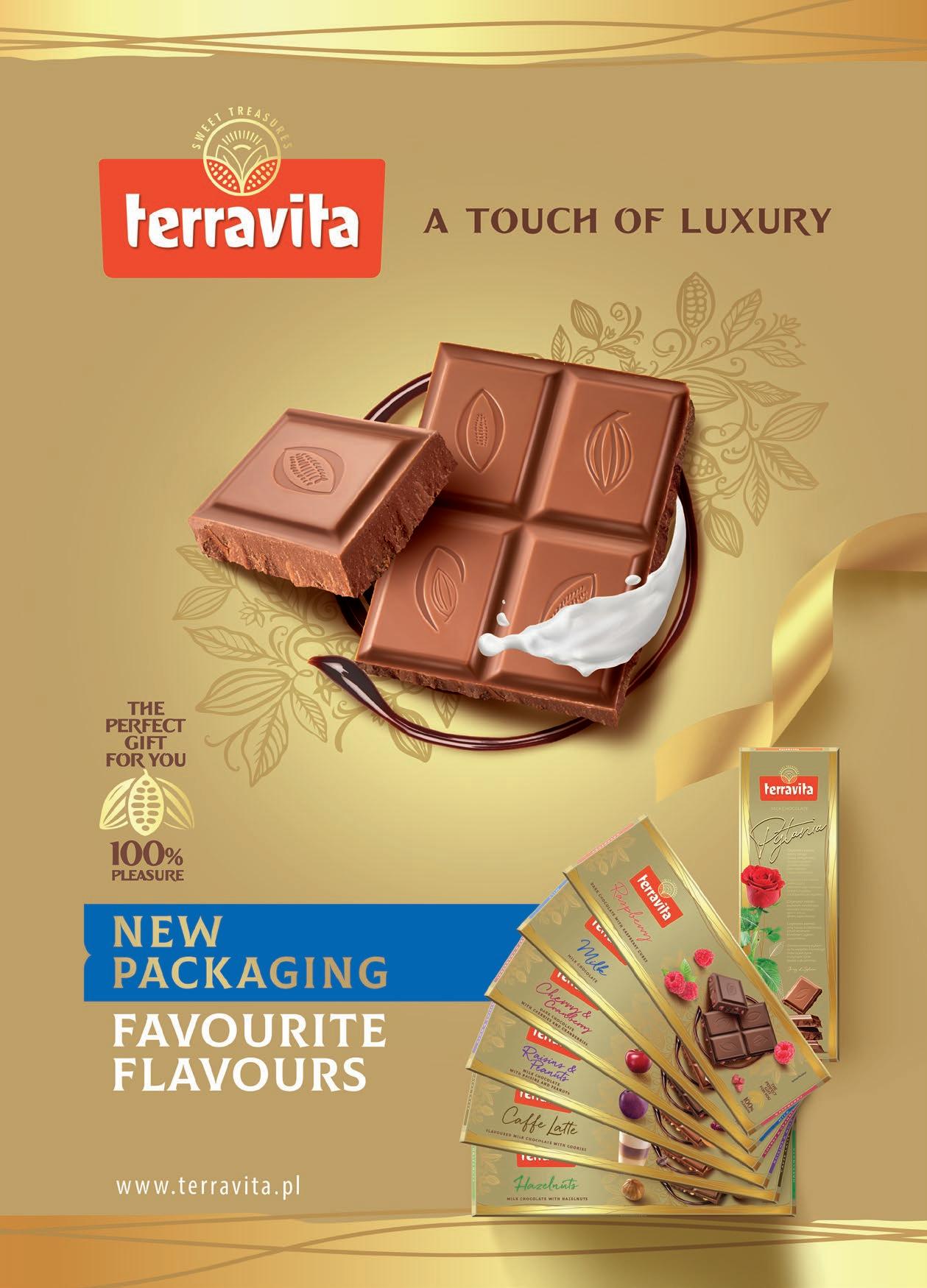
Arkadiusz Majchrzak, Export Manager at Terravita talks about current international food market situation, Terravita’s export activities, offer and products’ innovations.

What export results can Terravita boast? Is the slowdown of growth caused by the pandemic returning to its original pace?
It is for several years that we have been recording double-digit growth in export sales each year. The growth dynamics of export sales had slightly slowed down in the second quarter of 2020, i.e. in the first months of the pandemic, however, since the end of the third quarter, the export sales have accelerated. The year of 2021 and the very be ginning of 2022, despite the ongoing pandemic, saw further growth of export sales. It was only the events from late February 2022, i.e. the outbreak of the war in Ukraine, almost two years after the start of the pandemic, that have slowed down the growth of export sales again, especially that the Ukrainian market used to be one of our key outlets. That situation continued until early July, i.e. the moment when the Cabinet Ministers of Ukraine decided to abolish the list of critical import goods, including chocolate products since 24 February.
Which foreign markets have the most strategic significance for Terravita and why?
Our goal is to develop our sales on all possible foreign markets. We realize that reaching certain markets is hindered for different reasons; therefore, we predominantly focus our activities on markets which we find most attractive from the viewpoint of logistics, i.e. the markets of Central, Eastern and Southern Europe, as well as Asian ones.
What challenges has 2022 brought to export activities?
Since the beginning of 2022, apart from the slowdown of the growth of export sales, caused by the outbreak of the war in Ukraine, we have also been facing a serious problem resulting from increases in prices of raw materials, packaging, energy, gas or costs of transport, directly affecting the manufacturing cost of our products.
Our goal is to develop our sales on all possible foreign markets. We realize that reaching certain markets is hindered for different reasons; therefore, we predominantly focus our activities on markets which we find most attractive from the viewpoint of logistics.
What is the export offer? What makes these products stand out against your competitors in global markets?
Our export offer may be divided into two categories: regular prod ucts, on sale for 12 months per year, and seasonal products with spe cial holiday graphic designs, sold in the months preceding Christmas and Easter. Speaking of regular products, the overwhelming majority consists of chocolate bars under the TERRAVITA, COCOACARA, and ALPINELLA brands, in different formats. Our year-round offer is supplemented by TERRAVITA spreads. The essential distinguishing feature of our products is their quality, as well as interesting taste com binations, such as refreshing peppermint and lime in milk chocolate.
How do you adapt your offer to consumer requirements world wide? What innovations have been introduced to the offer?
Our offer is based, first of all, on the diversity of chocolate tastes, attractive packages, and competitive prices. Additionally, the basic line of TERRAVITA classic 100g chocolates, due to our concern for the natural environment, is entirely manufactured in 100%-recyclable pa per packages.
Thank you
On strong brands such as Profi, JemyJemy, and Manor Style Paté, export directions and nearest expansion plans we talk with Krzysztof Stojanowski, Chairman of the Board at Profi.

What share of your production is comprised by exports? What is the company’s strategy in production for both the Polish and for eign markets?
Profi, JemyJemy, and Manor Style Paté are all very strong brands on the Polish market and are leaders of their categories (pâtés, ambi ent soups, and premium pâtés, respectively). We have been continually working towards our position and the consumers’ loyalty since 1993, and we will soon celebrate our 30th anniversary of operation. Aim ing for top quality, excellent taste and constant development, we have amassed a huge capital of confidence, allowing our products to reach outside the borders of Poland. Currently, between several per cent and more than a dozen per cent of our production is allocated for exports. We are present on many markets, predominantly in ethnic environ ments, but also more extensively in selected chains, such as Morrisons or ASDA in the British Isles. Our strategy is very consistent – we place our bets on high quality and taste, both of which are guaranteed by a strong brand. We focus on building our brands, providing consumers with new product proposals, and active response to the changing needs. This does not mean we are closing up to any Private Label actions. For instance, we cooperate with a global customer to whom we are the main supplier of soups and sauces, for both the Asian and European market.
Three of our brands are present on foreign markets: Profi and Man or Style Paté pâtés, and JemyJemy ambient soups. We are particularly proud of the latter. The JemyJemy brand appeared on the local market at the end of the past year and was received fantastically by the consumers. Its advantage, obviously apart from its high quality and diverse compo sition inspired by traditional tastes from around the world (e.g. Asian and Indian cuisine, or European cuisines such as Hungarian or Italian ones) is a very convenient doypack packaging. Few manufacturers offer this kind of packaging, which gives us an unquestionable advantage in this category. It makes the JemyJemy soups excellently fit in with the quick lifestyle of consumers and with the ongoing trends: zero waste, plant-based food, or convenience food. Moreover, they are gluten-free, which makes them perfectly suit the needs of another customer group. JemyJemy soups need no refrigerator storage, have long shelf lives, and are easy to transport. To put it shortly, they fulfill many criteria guaran teeing success in sales.
We can see vast potential in the “ready-to-eat” ambient foods (soups, sauces, quick dishes ready to eat upon heating) and in this regard, we would like to develop on foreign markets as well. Our offer is wide, and our production capacities enable much elasticity in order implementa tion. We can supply dedicated products – with a specific composition, weight or in indicated packages, according to the customer’s preferences. Going further, we have the resources and capacities to manufacture the dedicated assortment in accordance with a provided external recipe.
The Profi pâté is number one on the Polish market. Is it wellliked abroad as well?
The Profi pâté enjoys huge popularity, it is a widely available product addressed to mainstream customers. It fits in perfectly with the consum er needs, as confirmed by its position as category leader on the Polish market, held for many years. For more demanding users, our offer also includes a premium brand – Manor Style Paté, a line of pâtés with an addition of noble meats: boar, deer, rabbit, and duck. A perfect taste, 100% natural recipes, premium craft packages – all of this makes the product highly appreciated by customers from around the world and distinguishes Profi among other suppliers.
Which foreign markets are of strategic significance for the sales of Profi products?
We mainly focus our attention on European and South American markets, but we cooperate with the Asian one as well. For a considerable time, our products have been present in Ukraine, enjoying much popu larity. We will unquestionably be active in this area.
What are the export plans of Profi for the time to come? Will your products appear on new foreign markets?
We can see much potential in the category of ambient soups and sauces, we wish to develop it to the level currently achieved by pâtés from our portfolio. We also strongly believe in the potential of the Man or Style Paté brand. Above all, our aspiration is to increase the scale on all markets – both at home and in exports.
Thank you.

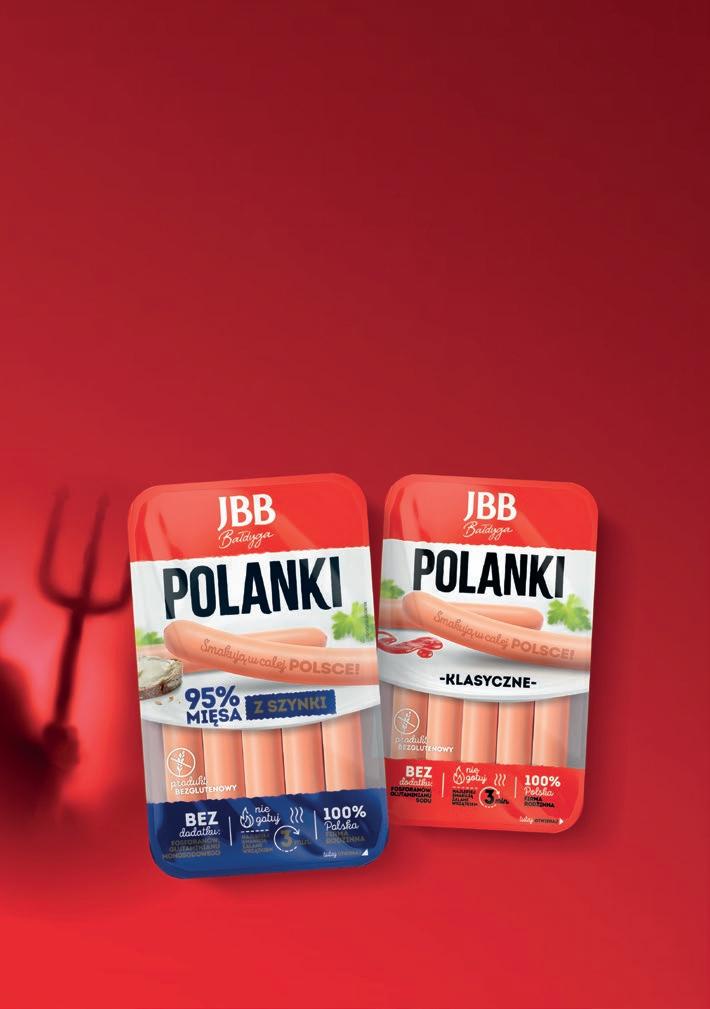
PROFI Pâté is the undisputed leader in the category of pâtés in Poland. Valued for its high quality and excellent taste, it continues to be trusted by loyal consumers and distributors for almost 30 years. Available in a wide selection of flavors and different weights (50 g, 131 g, 160 g, 250 g) and in two types of packaging – an aluminum mold and a convenient metal tin. Shelf life is 24 months.
Manor Style Paté is a premium brand of pâtés with the addition of precious boar, deer, rabbit and duck meat. Its excellent taste, 100% natural recipes and premium craft packaging make it highly appreciated by recipients from all over the world. Products available in 130 g glass jars. Shelf life is 24 months.
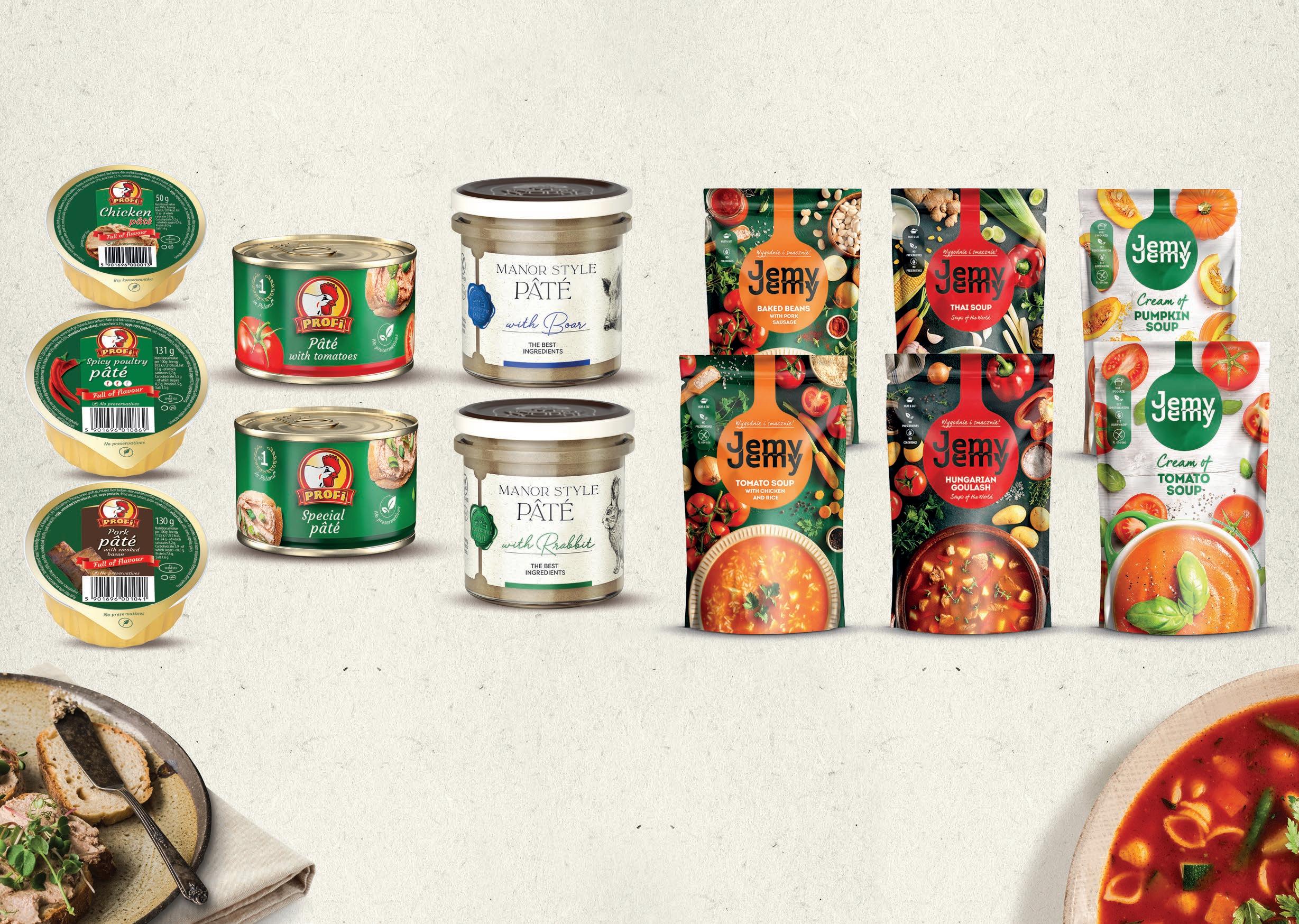
The brand of JemyJemy ambient soups is inspired by traditional flavors from around the world (including Asian, Indian, European or American cuisine) which is why it offers both Traditional soups (11 flavors, including classic Polish red borscht); vegetable, gluten-free Cream soups (4 flavors) and Soups of the world (4 flavors).

*
2-3 min.
They are distinguished by very high quality, excellent flavors and convenient one-portion doypack packaging with a weight of 375–450 g*. JemyJemy soups fit perfectly into the fast lifestyle of consumers and current trends: zero waste, plantbased food and convenience food. What’s more, they do not require refrigeration and have a long shelf life of 12 months. Just pour them into a dish and heat them up to get a wholesome, nutritious meal.
borscht is the only one available in a 1 liter carton.
min.
Many factors influence purchasing de cisions. The first associations certainly in clude price, quality, and the brand. How ever, an equally important element is the origin – of both products and raw mate rials, as well as capital. The family nature of the business and its multi-generational tradition are also important.
The origin of products and Polish roots of the business are of great importance to cus tomers. Not only because of the so-called con sumer patriotism. There are many reasons. The belief that these products are of better quality and manufactured with greater care is one of the most often mentioned reasons presented in studies on this subject. Another reason is the awareness that by investing in domestic products we support the domestic economy because the funds ’do not go’ abroad.
The SW Research Institute1 conducted a research that confirmed the Polish brand as being extremely important in terms of pur chasing choices. As many as 76% of respon dents indicated that it was important for them that the food products they buy came from Poland. And 25.1% of them considered it to be a very important factor, and 50.9% as rath er important. Whether a given product came from Poland was not considered important by
Polish family businesses have reasons to be proud –many of them have grown into huge enterprises with an international reputation. However, any business that is based on traditional values has lots of enthusiasts attracted by the quality and trust in the brand.
16.2% of the respondents (of which 12.9% considered this issue rather unimportant, and 3.3% as definitely unimportant).
The Family Business Institute, whose mis sion is to support businesses with such tradi tions, conducted research which showed that ca. 92% of enterprises run in Poland remained in the hands of their founders. This shows how valuable they are for the national econo my. However, the other side of the coin is that only 36% of them identify themselves as fam ily businesses. The Institute also reports that only 30% of such businesses can pass from the first to the second generation, and only 8% of the successors are willing to take over the busi ness from their parents. In turn, the Family Firms Foundation, referring to Eurostat data, states that in Poland only 40% of companies experience their fifth year of operation. How ever, the organization points out that there are many companies with traditions because as many as 59% of those established in 1989 have survived.
Entrepreneurs rely on similar research and willingly confirm Polish origin by placing spe cial marks on their products. Some such labels are approved by government departments, other marks are based on affiliation to industry organi zations, still others rely on producer declarations.
One cannot ignore the fact that, in reality, when some products or companies are boycot
ted precisely because of their origin, empha sizing Polishness has a particularly significant meaning. Supporting domestic production may also prove invaluable in attempts to save the economy in the face of high inflation and rising prices.

The aforementioned marks or labels confirming the origin have been func tioning in the market space for years. It is impossible to list all those used by Polish producers that is why we present only few subjectively selected ones.
Teraz Polska – a Polish promotional sign created in 1992 on the initiative of the Pol ish Promotional Emblem Foundation. The idea behind its creation was a strive to restore the prestige of the Polish brand. Standing out among other activities of this organization is the ‘Teraz Polska’ competition under the hon orary patronage of the President of the Repub lic of Poland. The poll aims to choose the best domestic products and services. The voting is carried out in 3 categories: for the best prod ucts and services, for municipalities and for innovative projects.
Produkt Polski [‘Polish product’] – is a le gally defined mark in the commercial quality Act of farm and food products. It is voluntary to mark products with this sign but in order to
use it one has to meet criteria clearly defined in the regulations. The rules stipulate that prod ucts must be made of raw materials produced in Poland, however, in processed products it is allowed to use imported ingredients (e.g. spic es, dried fruits) in the amount of up to 25% by weight, provided that such ingredients are not manufactured in Poland. Unprocessed products may be marked with the informa tion ‘Produkt polski’ [‘Polish product’] if the production, cultivation or breeding, including harvesting, milking in the case of cows, sheep and goats, took place on the territory of the Republic of Poland. In the case of meat, it is additionally required that it is obtained from animals born, raised and slaughtered in Po land, and in the case of products of animal origin other than meat, that they are obtained from animals reared in Poland.
In addition to official marks approved by regulations or organizations, producers may voluntarily mark products with graphics re ferring to their origin e.g. the map of Poland, flag, etc. The following inscriptions are also a popular means of identification: ‘I am from Poland’, ‘I come from Poland’ or ‘Made in Po land’. Of course, if it does not correspond to the actual production, the manufacturer must take into account legal consequences as adopt ing this practice can be considered as mislead ing the consumer.
The bar code on the packaging tells us a lot about the origin of the product. Goods distributed by a company which is registered in Poland, including goods manufactured by such a company in our country or abroad, are signed with a barcode, the beginning of which begins with the prefix 590.
On the other hand, e.g. for German compa nies, a sequence of numbers from 400 to 440 is reserved. In the case of Japanese goods it will be
45 and 49, and Chinese – from 690 to 695 and 699. However, if we care about the Polish ori gin of the raw material itself, the bar code will not be a sufficient source of information. As it has already been mentioned – the code specifies only the place of registration of the company.
Poland is a significant country in Europe and in the world. As it turns out – products marked as ‘made in Poland’ have positive asso ciations, and they are also valued.
SW Research conducted a survey2 in which one of the questions concerned associ ations with Poland. There are many product items listed in it. The first place was taken by John Paul II (57.8%), second by Robert Lewandowski (45.7%), and the podium was closed by Polish Vodka (27%). In addition to the aforementioned alcohol, the product indi cations also included pierogi (17.8%), bigos (10.8%), Polish sausage (8.8%) and sauer kraut or pickled cucumbers (7.1%).
In Poland, we have a lot of family business es that are proud of their origin. JBB Bałdyga is one example. The company is a Polish family business that has been operating on the market since 1992. It is one of the biggest meat pro cessing companies in Poland. They base their activity on proven recipes applying at the same time modern technologies.
The capital is 100% Polish, and over 200 products in the portfolio come from our country.
Another example is Mokate – a company that has been run from the very beginning by the Mokrysz family. Subsequent genera tions continue to develop the business and the strong position of products in their categories. The company has gained a reputation and rec ognition among domestic consumers and is successively taking over new markets.
BZK Alco is an alcohol producer which emphasizes Polishness even in the names of products. Their portfolio includes Wokulski, Sienkiewicz, Mickiewicz, Słowacki and Ka zimierz Wielki vodkas. These are just a few examples. The company is the author of alco holic products made from the best raw materi als; its products are of world-class quality. The company takes constant care about highlight ing its roots and origin.
Cukry Nyskie present over 70 years of Pol ish confectionery tradition. The history of the company dates back to 1949. The company operates in line with the slogan ‘Good, be cause Polish’, and its goal is to produce healthy products, and actively participate in environ mental protection. It is very important for the company to follow tradition and choose good and proven raw materials.
‘Tradition, simple recipes, no preser vatives and taste like in the good old days’ – these are our main advantages. If we add more than 70 years of experience in baking cookies and local patriotism, the whole pic ture will show a place manufacturing prod ucts which delight Poles with their taste as best as they can’ – indicates Andrzej Cho myszczak, President of the Management Board of Spółdzielnia Pracy ‘Cukry Nyskie’.
For Spółdzielnia Pracy ‘Cukry Nyskie’ this is very good news showing that thanks to the commitment of its employees, guarantee of the origin of raw materials, excellent quality, Petit Beurre biscuits – one of the company’s flagship products – are more and more often ‘landing’ in the shopping basket of Poles.
The Grycan company can also boast a sweet tradition. It started with a small ice cream shop and a passion for the product. In 2004, as the founders themselves say, their life’s work was created – the Grycan brand – Ice cream for generations. From the beginning of its oper ation the company has been using family rec ipes creating traditional ice cream, constantly relying on quality, experience and knowledge.
Family, tradition, brand – these slogans combine the history of many Polish com panies whose strength lies in their Polish roots. And consumers appreciate the enor mity of work that Polish companies put every day to provide us with the highest quality products signed with the Polish quality mark.
The recent research showed that ca. 92% of enterprises run in Poland remained in the hands of their founders (The Family Business Institute).
Within 32 years, the Mokate Group has become one of the largest coffee and tea producers in Central Europe, with more than a billion zlotys in revenue. It is also one of the leaders in the market for specialised ingredients for the food industry. Today, Mokate operates in more than 70 foreign markets and is one of the leaders in the market of milk-fat base powders, i.e. coffee creamers, foamers, topping bases and high-fat powders. Mokate products are widely used in the food industry around the world. The present image of the company includes more than 20 lines of coffee drinks (coffee mixes, cappuccino), coffee beans, as well as black, green, fruit and herbal teas. The range is complemented by own-produced wafers, biscuits and gingerbread.
Within 32 years, the Mokate Group has become one of the largest coffee and tea producers in Central Europe, with more than a billion zlotys in revenue. It is also one of the leaders in the market for specialised ingredients for the food industry. Today, Mokate operates in more than 70 foreign markets and is one of the leaders in the market of milk-fat base powders, i.e. coffee creamers, foamers, topping bases and high-fat powders. Mokate products are widely used in the food industry around the world. The present image of the company includes more than 20 lines of coffee drinks (coffee mixes, cappuccino), coffee beans, as well as black, green, fruit and herbal teas. The range is complemented by own-produced wafers, biscuits and gingerbread.
Mokate is a family-owned company. Being the fourth generation, Dr Adam Mokrysz and his wife, Dr Katarzyna Mokrysz, success fully manage the company. For many years, their goal has been to create a trademarked, international company. They want to build on Mokate’s solid foundations with values such as hard work, responsi bility, knowledge and competence, as well as openness, credibility and kindness. Mokate’s long-standing presence on international markets has earned it a group of loyal consumers for whom the company de velops its products, creates innovations, and also supports domestic brands with strategic marketing activities. Mokate’s most well-known brands include: Mokate, Loyd, Minutka, NYCoffee, Marilla, Marizzi, Mokate Ingredients, Alpino, Babcia Jagoda.
Mokate is a family-owned company. Being the fourth generation, Dr Adam Mokrysz and his wife, Dr Katarzyna Mokrysz, success fully manage the company. For many years, their goal has been to create a trademarked, international company. They want to build on Mokate’s solid foundations with values such as hard work, responsi bility, knowledge and competence, as well as openness, credibility and kindness. Mokate’s long-standing presence on international markets has earned it a group of loyal consumers for whom the company de velops its products, creates innovations, and also supports domestic brands with strategic marketing activities. Mokate’s most well-known brands include: Mokate, Loyd, Minutka, NYCoffee, Marilla, Marizzi, Mokate Ingredients, Alpino, Babcia Jagoda.
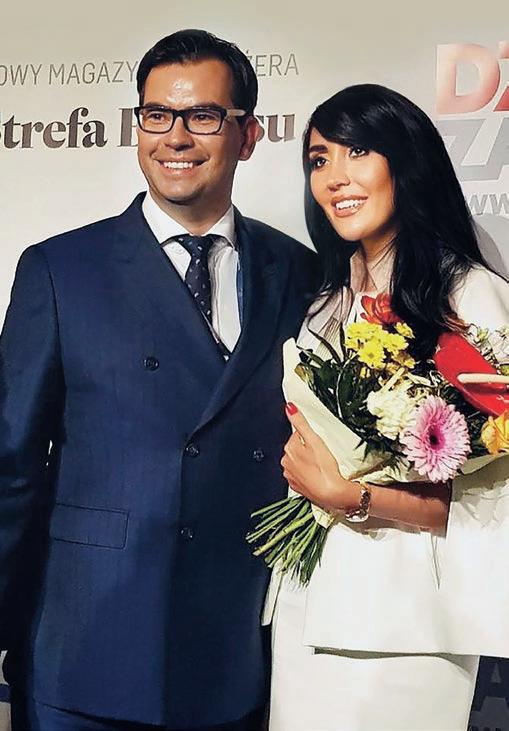
Mokate is widely recognised and valued not only in Poland. What has contributed to the Mokate Group’s successful expansion into foreign markets?
Mokate is widely recognised and valued not only in Poland. What has contributed to the Mokate Group’s successful expansion into foreign markets?
Adam Mokrysz: At Mokate, we aim to perform and develop on the basis of 3 pillars: vision, courage and action. We face challenges boldly, focus on working in teams and cooperating with experts, and we set ambitious goals and achieve them step by step together with won derful people. And above all, we enjoy working and do it with great passion.
Adam Mokrysz: At Mokate, we aim to perform and develop on the basis of 3 pillars: vision, courage and action. We face challenges boldly, focus on working in teams and cooperating with experts, and we set ambitious goals and achieve them step by step together with won derful people. And above all, we enjoy working and do it with great passion.
Katarzyna Mokrysz: Mokate is a flexible company, able to skilful ly adapt to changing consumer needs and market conditions. We demonstrate an agile approach, with innovations and new products constantly appearing in our product range, we explore and search for new and attractive markets, and we cooperate with reliable business partners. Investing in new technologies and in our facilities is a top dr Adam Mokrysz, dr Katarzyna Mokrysz
Katarzyna Mokrysz: Mokate is a flexible company, able to skilful ly adapt to changing consumer needs and market conditions. We demonstrate an agile approach, with innovations and new products constantly appearing in our product range, we explore and search for new and attractive markets, and we cooperate with reliable business partners. Investing in new technologies and in our facilities is a top dr Adam Mokrysz, dr Katarzyna Mokrysz
Production plant in Ustroń
priority for us. Teamwork, perseverance and consistency in our deci sions, as well as the ability to make good calculations, are important elements that allow us to grow dynamically.
have been consequently and patiently building our position in the in ternational market. We employ a very diverse community both in the Ustroń and Żory factories, as well as in Votice in the Czech Republic and at our other locations around the world. I think this diversity is one of the most important factors that unlock our potential and sup port the dynamic development of our company.
have been consequently and patiently building our position in the in ternational market. We employ a very diverse community both in the Ustroń and Żory factories, as well as in Votice in the Czech Republic and at our other locations around the world. I think this diversity is one of the most important factors that unlock our potential and sup port the dynamic development of our company.
A.M.: It is worth noting that at this year’s Family Business Congress, we debated how to preserve the continuity of the traditions of family businesses in a rapidly changing digital world. I believe this is one of the main challenges. I personally find it fascinating how family history intertwines with business development, which has become an indis pensable part of our family identity. The ability to combine tradition with modernity and the local origin of products with their global qual ity is the foundation of our daily work.
A.M.: It is worth noting that at this year’s Family Business Congress, we debated how to preserve the continuity of the traditions of family businesses in a rapidly changing digital world. I believe this is one of the main challenges. I personally find it fascinating how family history intertwines with business development, which has become an indis pensable part of our family identity. The ability to combine tradition with modernity and the local origin of products with their global qual ity is the foundation of our daily work.
The Mokate Group has three production facilities and numerous offices located in several European countries. Are there any new investments planned in the near future?
What are the challenges of managing a company like MOKATE today, how do you combine family tradition with the global scale of the business?
priority for us. Teamwork, perseverance and consistency in our deci sions, as well as the ability to make good calculations, are important elements that allow us to grow dynamically. What are the challenges of managing a company like MOKATE today, how do you combine family tradition with the global scale of the business?
A.M.: Indeed, perhaps the biggest challenge is to reconcile being local and family-oriented with the international momentum and scale of the company. At the core of our identity, our DNA, is family tradi tion, individuality, but also Polishness. We are proud of it and have made these qualities our competitive advantage. We pay great atten tion to implementing the same values and the same organisational culture in each new country.
A.M.: Indeed, perhaps the biggest challenge is to reconcile being local and family-oriented with the international momentum and scale of the company. At the core of our identity, our DNA, is family tradi tion, individuality, but also Polishness. We are proud of it and have made these qualities our competitive advantage. We pay great atten tion to implementing the same values and the same organisational culture in each new country.
K.M.: Working in an international environment means a huge variety of cultures, which broadens our horizons, stimulates creativity and al lows us to exchange experiences. We follow various trends and flexibly adapt to surrounding conditions. This is how creative ideas, new prod uct concepts and even new investments are born. The knowledge and know-how of our teams is invaluable, and as a family company, we know this very well and know how to use it like no one else. Of course, there are many more of these challenges, and they are of different na tures - formal-legal, technological, logistical, etc. But we handle them perfectly thanks to the teams of people on whom we base our business. This year Mokate received the Best Family Business of the Year award, announced during the Family Business Congress organised by Forbes magazine. And there was also another award for Mokate - Poland’s Best Employers 2022 in the consumer and nondurable goods manufacturing category. To what do you owe this success?
K.M.: Working in an international environment means a huge variety of cultures, which broadens our horizons, stimulates creativity and al lows us to exchange experiences. We follow various trends and flexibly adapt to surrounding conditions. This is how creative ideas, new prod uct concepts and even new investments are born. The knowledge and know-how of our teams is invaluable, and as a family company, we know this very well and know how to use it like no one else. Of course, there are many more of these challenges, and they are of different na tures - formal-legal, technological, logistical, etc. But we handle them perfectly thanks to the teams of people on whom we base our business. This year Mokate received the Best Family Business of the Year award, announced during the Family Business Congress organised by Forbes magazine. And there was also another award for Mokate - Poland’s Best Employers 2022 in the consumer and nondurable goods manufacturing category. To what do you owe this success?
A.M.: Mokate, a family-owned company, is not only a family business but, above all, an organisation characterised by a friendly and uplift ing atmosphere, and where all our staff are a one ‘big family’. Today Mokate is an international group of companies with a crew of more than 1,300 people. What is most important to us is people, with their commitment and hard work being the engine of our business devel opment. They are highly qualified professionals with passion, whose work in our team motivates them to undertake new challenges. We draw energy from each other and exchange experience. We are proud of our employees as well as our brands.
A.M.: Mokate, a family-owned company, is not only a family business but, above all, an organisation characterised by a friendly and uplift ing atmosphere, and where all our staff are a one ‘big family’. Today Mokate is an international group of companies with a crew of more than 1,300 people. What is most important to us is people, with their commitment and hard work being the engine of our business devel opment. They are highly qualified professionals with passion, whose work in our team motivates them to undertake new challenges. We draw energy from each other and exchange experience. We are proud of our employees as well as our brands.
K.M.: We owe our success and awards to our teams, the great people with whom we work and our innovative products. For many years we
K.M.: We owe our success and awards to our teams, the great people with whom we work and our innovative products. For many years we

The Mokate Group has three production facilities and numerous offices located in several European countries. Are there any new investments planned in the near future?

A.M.: Mokate is constantly developing, increasing the production ca pacity of its factories and investing in the latest technologies. We have just completed the expansion of the instant products factory in Żory. Another modern production facility has been built, producing highly specialised products and ingredients for the food industry, which will be exported worldwide.
A.M.: Mokate is constantly developing, increasing the production ca pacity of its factories and investing in the latest technologies. We have just completed the expansion of the instant products factory in Żory. Another modern production facility has been built, producing highly specialised products and ingredients for the food industry, which will be exported worldwide.
K.M.: Expanding such a dynamic business as Mokate is a constant evolution and consistent building of the company’s values. We want to develop and scale the business, while always nurturing the core values of a family business.
K.M.: Expanding such a dynamic business as Mokate is a constant evolution and consistent building of the company’s values. We want to develop and scale the business, while always nurturing the core values of a family business.
What is the most difficult task for the company in this post-covid and war-marked time?
What is the most difficult task for the company in this post-covid and war-marked time?
A.M.: In these difficult times, we can count on our business partners and suppliers, who, despite many difficulties, have not let us down. Naturally, we face many challenges related to the rising costs of raw materials, packaging, energy, and freight, but this is today’s reality, and it is necessary to skilfully cope with it. In the face of the trage dy and war in Ukraine, we are uniting our forces and, together with our friendly companies, supporting the citizens of Ukraine with our products.
A.M.: In these difficult times, we can count on our business partners and suppliers, who, despite many difficulties, have not let us down. Naturally, we face many challenges related to the rising costs of raw materials, packaging, energy, and freight, but this is today’s reality, and it is necessary to skilfully cope with it. In the face of the trage dy and war in Ukraine, we are uniting our forces and, together with our friendly companies, supporting the citizens of Ukraine with our products.
Thank you for the conversation. Monika Książek
Production plant in Ustrońdr Katarzyna Mokrysz, dr Adam Mokrysz
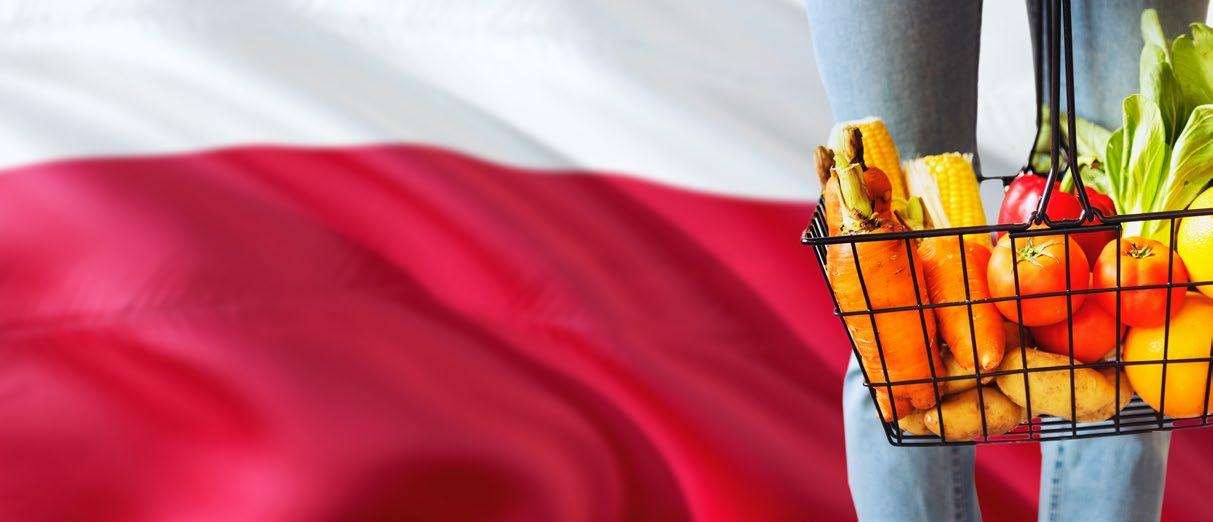
Poland is not only a country with rich culture, home to such personalities as Frédéric Chopin, Maria Skłodowska-Curie and John Paul II, but also one of the largest producers and exporters of high-quality food in the European Union.
Polish agriculture produces many excep tional and unique food products, which are appreciated all over the world. They are pro duced from natural ingredients, with atten tion to preserving nutritional and taste values, while meeting the highest safety and quality standards of the European Union.
With its huge and modern production and processing base, Poland is a net expor ter of food. The value of agri-food exports has increased more than sevenfold since Po land joined the European Union in 2004. In 2021, despite the restrictions caused by the COVID-19 pandemic, it amounted to a record EUR 37.4 billion, EUR 3.1 billion more than in 2020. Food from Poland is mostly exported to the markets of the Eu ropean Union countries (73% share in the structure of exports worth EUR 27.1 bil lion), but Polish exporters are systematically increasing their presence on global markets, primarily in the Middle East, Asia and Afri ca. In 2021, revenues from Polish exports to non-EU markets amounted to EUR 10.3 billion, an increase by 3% compared to the
previous year. The top non-EU recipients of Polish food exports included countries such as the UK, the United States, Saudi Arabia, Algeria, Israel, Norway and China.
Polish food is produced with meticulous at tention to quality at every stage of production, from breeding to the final product. Production and processing operations are monitored using rigorous food safety and quality management systems, such as HACCP. A ‚block-chain’ sys tem is also implemented in the beef sector to track all stages of food production, transport and storage, verifying certificates and monito ring the supply chain. Many Polish processing plants also produce ‚halal’ certified products. Polish food is produced in plants equipped with state-of-the-art production lines. Food products are often packaged in biodegradable, recyclable packaging and with solutions to ensure long-term freshness. Modern food pac kaging systems facilitate transport and storage, as well as monitoring of the required storage temperature.
Among the wide range of Polish export offer, Polish meat and meat products stand
out, ranking first in the structure of Polish agri-food exports with a share of 19%. The meat sector plays a crucial role in the deve lopment of the national food industry and its importance is also reflected in export figures. Poland is the first producer and exporter of poultry meat in the EU and the third exporter of this meat in the world. It is also the EU’s top producer and third expor ter of fresh and chilled beef. In 2021, meat, preserves and livestock worth a total of EUR 7 billion were exported from Poland, inclu ding 1.47 million tonnes of poultry meat worth EUR 2.7 billion, 372 000 tonnes of beef meat worth EUR 1.6 billion, 411 000 tonnes of pork meat worth EUR 0.8 billion and meat preserves worth EUR 1.7 billion. High quality of Polish meat production is ensured by well-developed quality control methods and the implementation of several quality systems. Polish quality certificates dedicated to meat products are PQS – Pork Quality System, QAFP – Quality Assuran ce for Food Products and QMP – Quality Meat Program (for beef). Many types of Po
lish sausages are recognised as EU “Protec ted Geographical Indication” or “Traditio nal Speciality Guaranteed”.
Cereal grains and grain milled products are one of Poland’s main export products, holding the second position in the agri-food export structure. Poland is one of EU leaders in grain production. Cereal grains are most often cultivated on family farms which com bine tradition and modernity. Wheat is the most popular grain in Poland and wheat flour is one of the dominant Polish export commo dities in the grain sector. Natural and healthy Polish grain milled products are competitive on international markets and their flavour is appreciated by consumers. They include ba kery products, flours and breakfast cereals, bran, groats, pasta and other products. In 2021, exports of cereals and grain mill pro ducts increased by 10% to a value of EUR 4.7 billion.
Polish dairy industry is one of most modern in Europe. Polish milk is mainly acquired from the pristine regions located in Poland’s north and east. The strict observance of EU hygiene and veterinary standards re sults in supreme milk quality. 75% of milk processors in Poland are dairy cooperatives, mostly with Polish capital, who acquire their raw material straight from Polish farmers. Po land’s dairy offer includes cheeses and curds, liquid milk and cream, concentrated milk and skimmed milk powder, ice-cream, whey, butter and milk fats as well as yoghurts, but termilk, acidified milk and other fresh dairy products. Poland holds a strong position in the EU when it comes to milk, ranking fifth in its production and fourth in its exports. In 2021, the export value of Polish dairy pro ducts reached EUR 2.6 billion.
Excellent Polish sweets stand out among Poland’s export hits. Poland is third exporter of sweets in the EU. This category includes a very wide range of products, such as cho colates, candies, marshmallows, bars, merin gues, candyfloss, fudges and toffee, chocola te drops, fruit and nuts in chocolate, boxes of chocolates, chocolate candies and many others. Poland’s sweets export offer ranges from traditional Polish delicacies to modern, innovative confectionery products created in response to changing consumer needs and preferences (including healthy sweet snacks, products with sugar substitutes, gluten-free, organic, vegan, etc.). In 2021, Poland expor ted 560 thousand tonnes of sweets worth EUR 2.4 billion.
Poland’s flagship export product is fruit, and particularly apples. Polish people’s love for this fruit made Poland the country with the largest orchard area in Europe – 176,000 ha (over 33% of orchard area in Europe) and a yearly production of 4 million ton nes. That is why we are a leading producer and exporter of this fruit – the largest pro ducer in the EU, third largest producer in the world and third largest world exporter (in terms of export volume). Polish apples are considerably crunchy and have a unique, deep flavour resulting from climate as well as the experience of apple growers who draw on rich Polish fruit growing traditions that
date back to the 12th century. Thanks to technological progress in storage and trans port, Polish exporters are able to provide large and uniform deliveries of apples, ma intaining their unique qualities even when supplied to the furthest parts of the world. Poland’s export offer also includes processed fruit and vegetable products, including fro zen foods, jams, pulps, preserves, sauces and ketchups, dried and freeze-dried products, and powdered products. Moreover, Poland is a significant producer of apple juice and concentrate as well as other fruit and vegeta ble juices and beverages. In 2021, the value of Poland’s fruit and processed fruit exports amounted to EUR 1.7 billion, 15% higher than the previous year.
Poland is also an important producer of a variety of exquisite alcohols and alcoholic be verages. The flagship product in this category is certainly vodka, both plain and flavoured. Other top Polish alcohols include beers, wines, ciders, meads and artisanal alcohols such as “na lewka” made by macerating fruit, roots, flowers, spices, herbs or nuts in strong alcohol. Poland is the biggest vodka producer in the EU and the fourth in the world. In beer production, too, Poland has achieved a strong position: second in the EU and ninth in the world.
Nevertheless, Polish export potential is much greater than the trade performance recorded so far. Poland is one of the largest food producers in the EU and generates si gnificant production surpluses for almost all the above-mentioned products. Therefore, Polish exporters, in search of new markets for their products, focus their attention on trade cooperation with non-EU countries where significant opportunities for further export expansion may be explored.
Even the best products need support in terms of promotion on international markets. Promotion of Polish food and support for Polish agri-food exports is carried out by the National Support Centre for Agriculture (KOWR), a governmental agency supervised by the Minister of Agriculture and Rural Development. The KOWR analyses market conditions to address the needs of the Polish agri-food sector. The tasks of the KOWR include organising trade missions for Polish companies and foreign importers, distributors, representatives of re tail chains and trade media, facilitating cooperation between Polish and foreign entities
of the agri-food sector. The KOWR’s activities also include the organisation of online and live B2B meetings and pitching sessions, information webinars on the business envi ronment in promising foreign markets, and organising national stands under the head ing “Poland tastes good” during international food exhibitions and fair events. In 2022 the KOWR’s presence includes food fairs in Germany, the UAE, Saudi Arabia, Japan, the UK, Japan, Thailand, Singapore, South Korea, India, France, the Netherlands, Vietnam, Egypt, Sweden and Israel, among others.
If you are interested in Polish agri-food products and cooperation with Polish food exporters, please contact us at eksporter@kowr.gov.pl.
What are the current trends on the cured meats market? Are they identical on different markets of the world?
A key aspect, if not the most important one, to which consumers pay attention, is convenience. Hence the particularly strong development of the sectors of ready meals and cured meats treated as snacks. “Freedom” after more than a year of isolation connected with the Covid-19 epidemic and the growing pace of life have resulted in time-consuming preparation of meals falling outside the scope of our interests. A today’s consumer reaches for quick and easy solutions, and this is what they expect to see on store shelves.
Quality invariably remains a highly valued factor behind choosing. In my opinion, the most important aspect in the producer-consum er relation today is fulfillment of made promises. Consumers choose quality for which they pay, so they expect this quality from a product, and fulfillment of this promise is the foundation of building a brand and its market position. A key quality factor today is the simplest possible composition of processed products and an environmental ly-friendly way of their packaging, with simultaneous preservation of the sustainability required by the market.
How does ZM Silesia respond to trends, both in Poland and on foreign markets? Are consumer requirements similar in different countries?
Promising quality to our consumers, we vouch for it not only with our more than 30 years of experience in the sector but also with full control over the value chain. We are a part of the Cedrob Group, a leading poultry manufacturer in Europe, and our group also has its own pork production,
On current trends in meat sector, technology, export directions and proecological activities we talk with Marietta Stefaniak, Board Member for Strategy and Development at ZM Silesia.
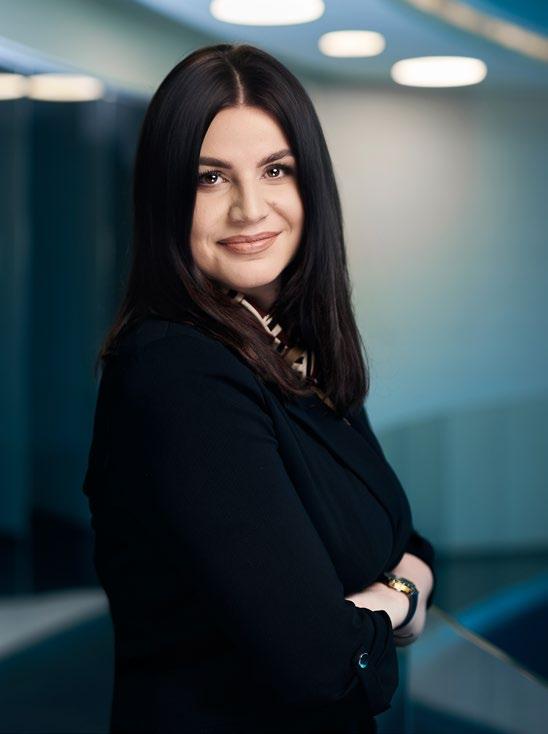
therefore, cured meats produced at our five production units are based on our own resources.
These units are equipped with modern machinery, allowing us to respond easily to the need of convenient packaging of both cured meats and ready meals.
Meals subject to preliminary, time-consuming processing – ready to be quickly prepared and served – have confidently entered global markets. In response to the needs of a modern consumer, we provide a full assortment of coated dinner products – from nuggets to tender loins or cutlets to medallions. We know that the most valuable thing we can offer to consumers is their time. This need is also addressed by the snack line – with excellent Polish dry sausages, preparation of a top-quality board of cured meats is both easy and pleasant. Dry sau sages known as kabanosy are worth reaching for each time when we are looking for a convenient product, easy to take with you and to reach for during the day. For enthusiasts of quick and tasty sandwich es, we offer diverse hams and tenderloins in convenient slices.
On which foreign markets are the products of ZM Silesia available? Which items of the portfolio are the most popular outside Poland?

Our partners are representatives of many European countries. The wide range of our recipients include the Baltic States, but also England, Germany, the Czech Republic, Slovakia, Hungary, Ukraine, or Sweden.
Shopping patriotism on one hand, and the belief national cuisines have much to offer on the other. It turns out that well-known and wellliked matured meats from Spain or Italy have serious competition in the form of Polish dry cured meats. Due to different climate conditions,
long maturing of hams or sausages was not a traditional Polish method of providing cured meats with long sustainability. In our tradition, we have developed a different method – drying. The cult-following Polish dry sausages, such as żywiecka, krakowska, and especially myśliwska, are not just competing with Mediterranean cured meats now but, above all, they reference the traditional tastes of Polish cured meats, serving as a hallmark of quality and often associated with a Polish brand.
We can see this on the example of geographically close countries, such as Lithuania, Latvia, Estonia, or Ukraine. Their expectations and tastes are similar to Polish ones. On further markets, such as England, our con sumers are mostly Polish people, but foreign customers increasingly join them too. The most popular type of cured meats in the export channel are the cult-following Polish dry sausages, such as the myśliwska, żywiecka, krakowska, or kabanosy (stored outside the fridge), but also liverwursts, frankfurters, and convenience meals. We sell products under both the manufacturer’s brand and private labels. We are also able to emerge on a market of a given country with an individual line.
What are the plans of ZM Silesia for the future? In which direction will the company develop? Will the products of the offer appear on new markets?
Our direction of operations is strictly connected with the increase in significance of the ready meals sector. Apart from constant expansion of our offer, we modernize our production processes, e.g. to optimize supply chains. With a particular view to export markets, we have launched a method of quick shock freezing of products to improve the supply logis
We are the leader in the sales of dry products – as confirmed by a Nielsen survey, our myśliwska sausage has become the most purchased prod uct in this segment once again. In the export trade, ambient products obviously remain among the most popular ones – they belong to the premium sector. Caring for the development of the mainstream category in the production of popular, mass cured meats, we utilize polyamide casings, signifi cantly increasing the sustainabili ty of the foods and enabling safe


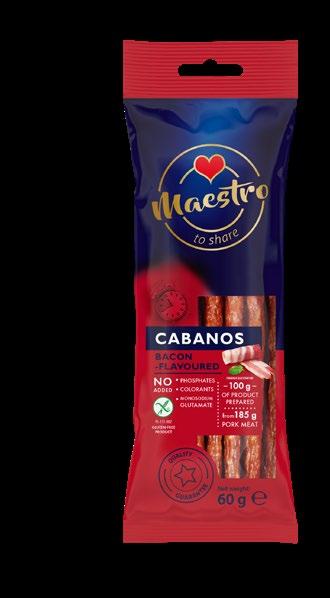
We bet on modern solutions. We introduce environmental
We introduce environmentally-friendly packages into the production of ready meals. Our cardboard tray is fully recyclable. Introducing it, we reduce the use of plastic by 85%, thus reducing our carbon footprint.
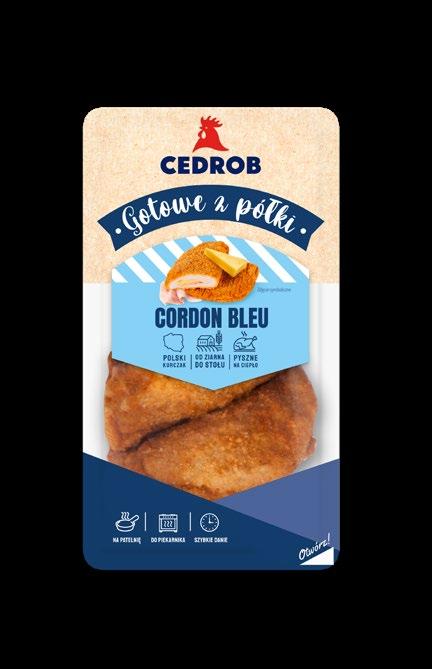
ly-friendly packages into the production of ready meals. Our cardboard tray is fully recyclable. Introduc ing it, we reduce the use of plastic by 85%, thus reducing our car bon footprint.
pro-environmental actions – do they go hand-in-hand in the operations of ZM Sile sia?
ogy-related problems. What matters is corporate responsibility at every level of a company’s operation and its development by keeping up with the changes of the surrounding world. Introduction of new, ecologic, fully recyclable packages fits in with this trend.
We are successfully reducing our carbon footprint through sustainable production – shortening the supply chains and optimizing the process of inter-plant logistics. We know that corporate responsibility translates to everyday life of each of us, hence, during the pandemic, we have in troduced cured meats packed in antimicrobial foil preventing deposition of the virus. We wish to be as close as possible to the customers and their everyday needs.
Thank you.
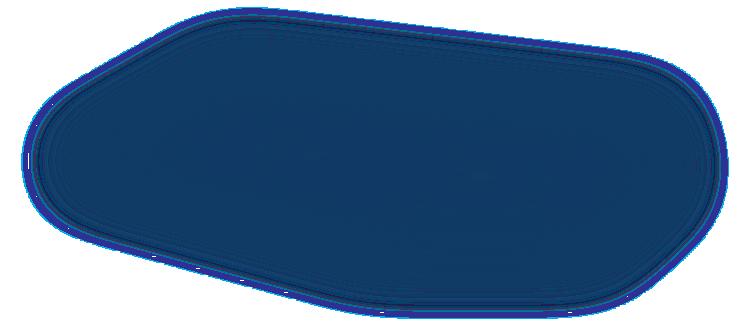
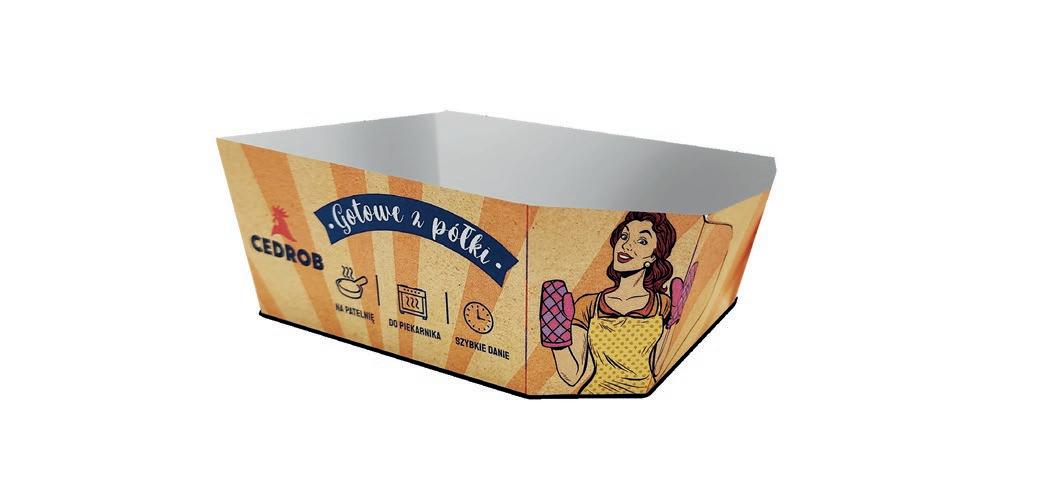
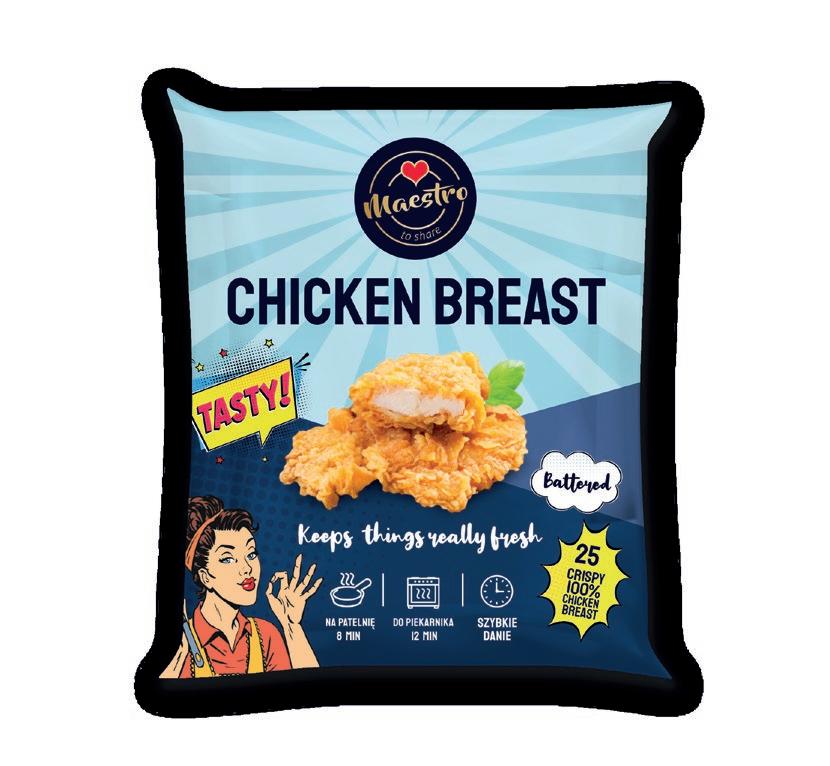
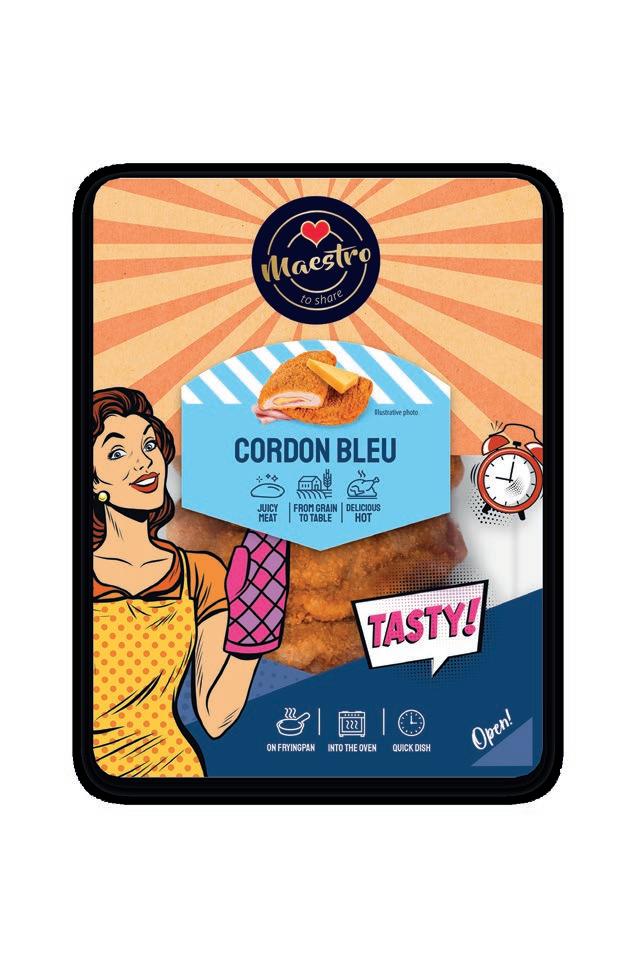
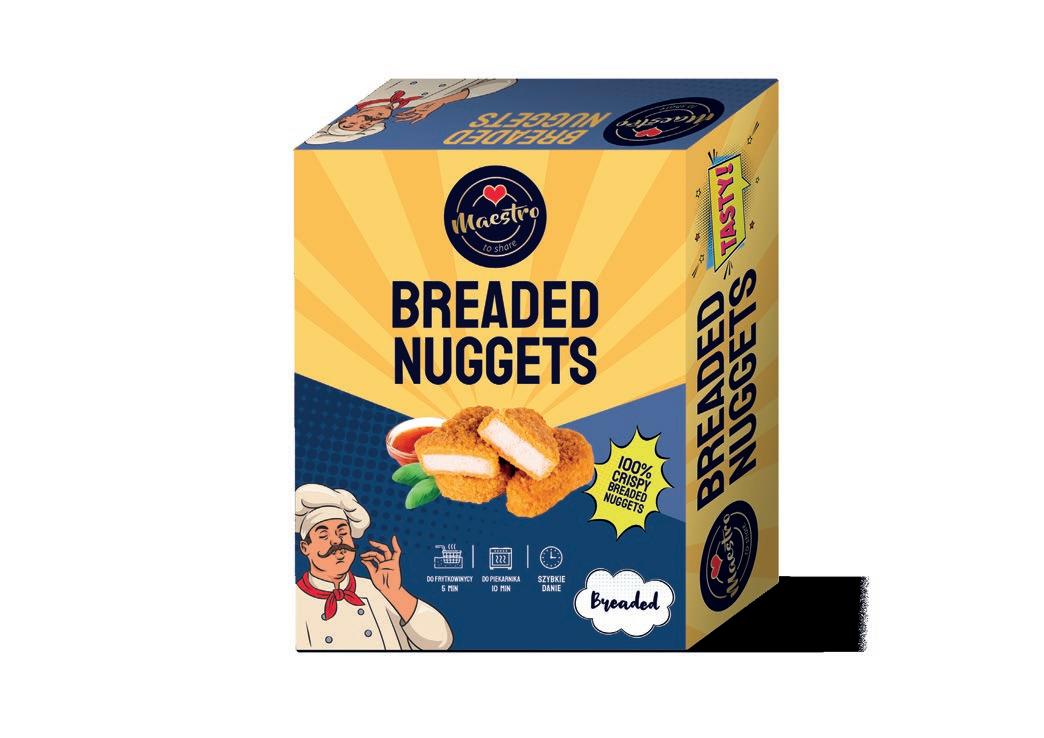

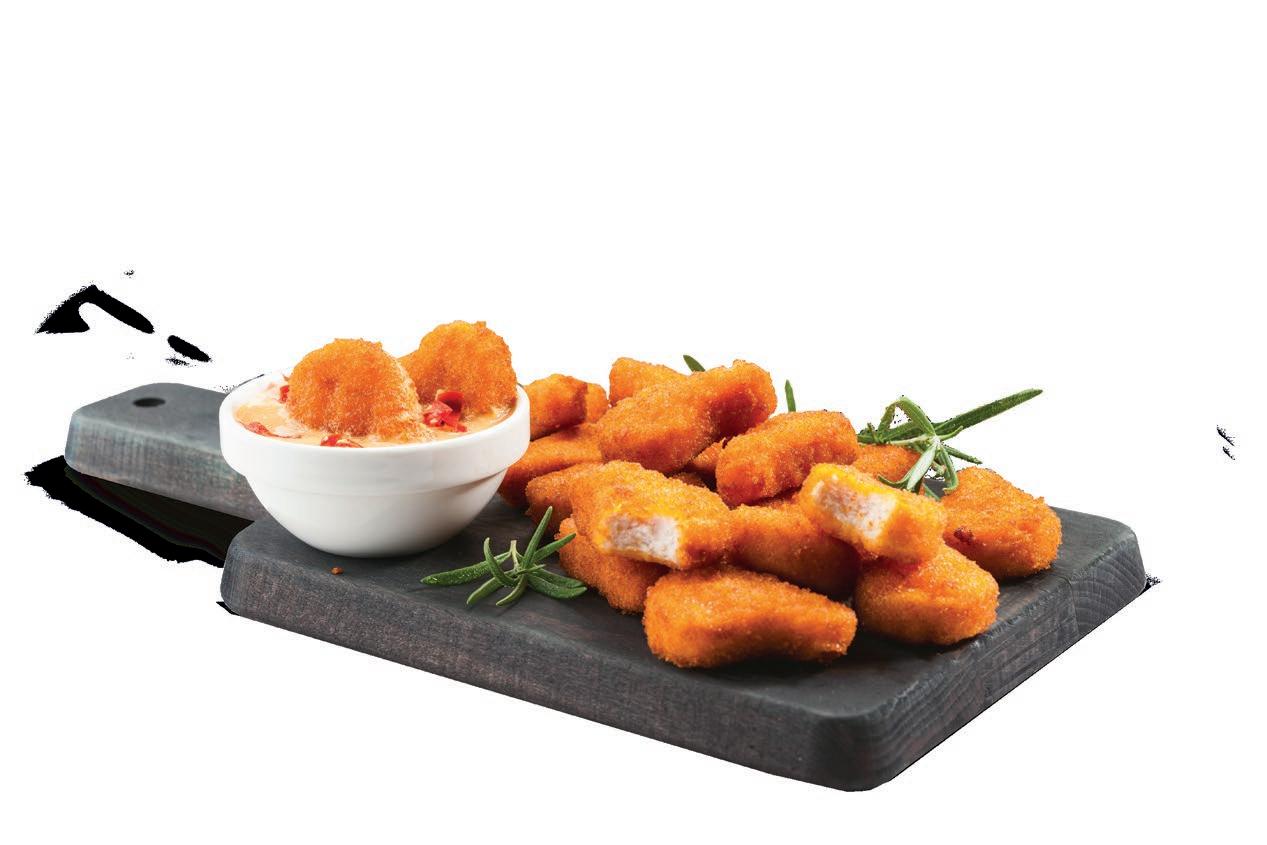



Turka is one of the biggest and fastest growing tortilla producers in Europe. We talk with Olgar Suner, Deputy General Manager at Turka Invest.

You are one of the hugest tortillas producer in Europe. How you gained this position? What is your prescription for the success?
Established in 2009, Turka is one of the biggest and fastest growing tor tilla producers in Europe. Bakery industry trends and market analyzes show
cess different raw materials and energy sources, which allows us to hedge our risks. The high quality standards that we have applied without compromis ing since the day we started production with an on-site lab is another issue behind our success, ensuring the quality and authentic flavor. Our effort to meet the demands of our customers and establish a long-term business rela tionship with a customer-oriented, fast and flexible service approach ensures customer satisfaction and naturally success.
Range of our products includes different kind of flavors and dimen sions. We offer frozen products as well. The market consists mostly of wheat and wholewheat products. Other than these products we offer our customers tomato, spinach, garlic, multigrain, corn, beetroot, vanilla, hot spice and turmeric flavors. We are the first producer of 30 cm 80 gr, 32 cm and 35 cm tortilla in Europe. The highest quality, food security, hygiene standards are applied at our production sites. We guarantee a strict IFS policy, ISO, HACCP standards which addresses food safety and manage ment of product quality in food and ingredient manufacturing. We give more attention to our customer demands and therefore we have Halal, Vegan certificates. We can also produce Kosher products upon request. Traceability is secured from the raw material on.
The offer of Turka includes also private label. What are your possi bilities in this sector? What do you offer in private label cooperation?
Beside our four own brands – Turka, Tortillove, Mexilla and Kamarwe give tailor-made service to our customers all around the world. We offer many range of dimensions from 15 cm to 35 cm. Having facilities in Poland and Spain we can offer competitive prices to our customers who demand private label. With the support of our marketing team, our customers will be able to configure and design the scale, weight, flavor and package design as they wish. We are always proud of offering our clients fast and tailor-made with the help of our highly qualified staff.
On which markets are your products available? What are your plans for the future, on what markets you plan to put your products in the future?
Our clients come predominantly from three sectors: retail, foodservice and B2B. Our strategic locations in Poland and Spain allow us to cater to over 60 countries and ensure fast delivery in a changing global market. Our products are available on markets across whole Europe and popular among the customers of biggest supermarket chains in Europe and MEA. Apart from our facilities in Poland and Spain, we are planning to expand our business in other continents in the years to come.
The choice of the best ingredients, responsible production and distribution – please tell us about the actions connected with environmental protection. How important is this aspect for your company?
Environmental sensitivity is a criterion that we focus on highly both in production processes and in supplier selection. Strict implementation of this principle is among the top priorities of the company’s top manage ment. It has been adopted as the basic policy of our company to continue our productions with clean energy sources as much as possible. In this context, we have come to the end of the construction work on solar energy to meet all of our energy needs in one of our production facilities.
Thank you.
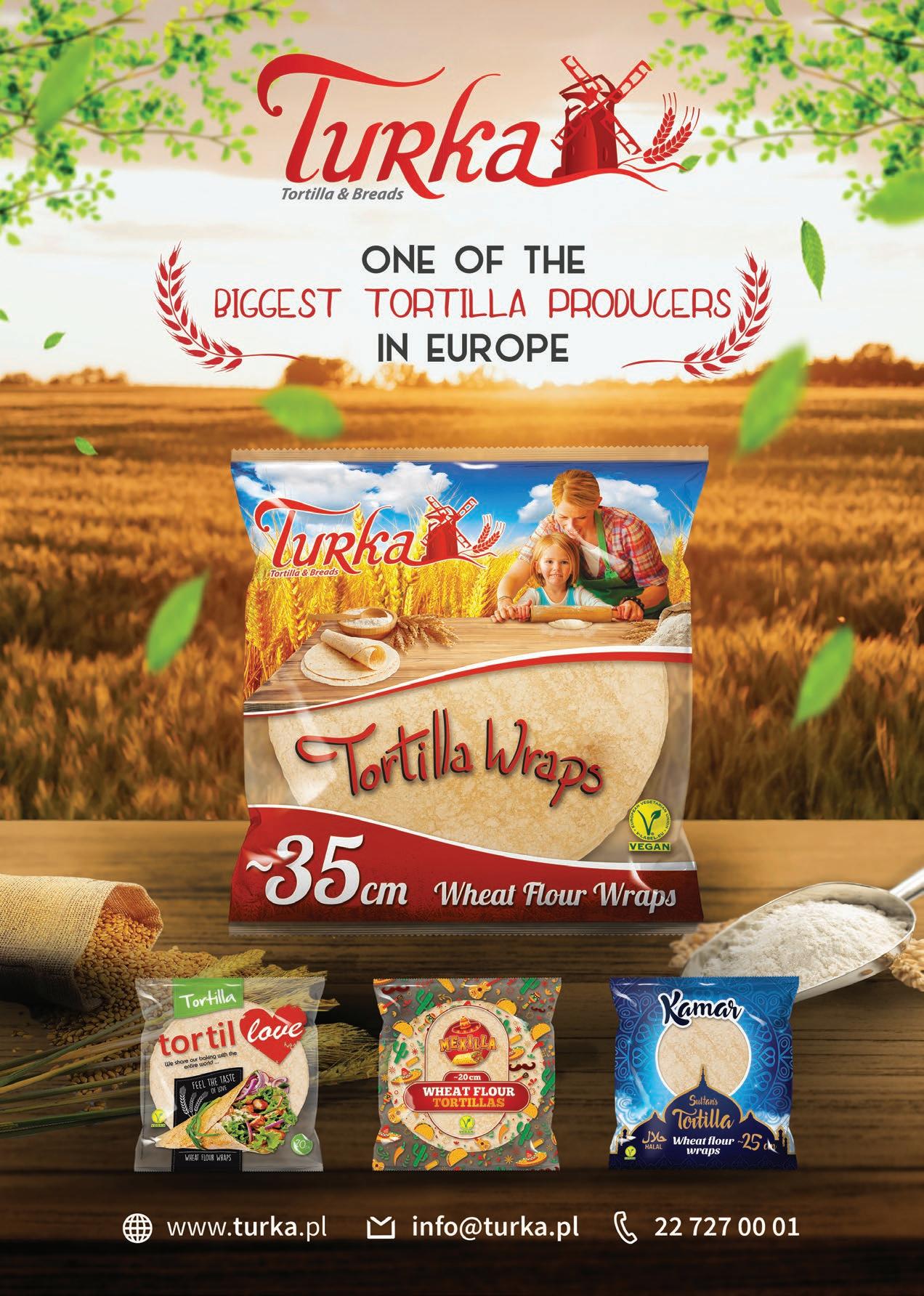
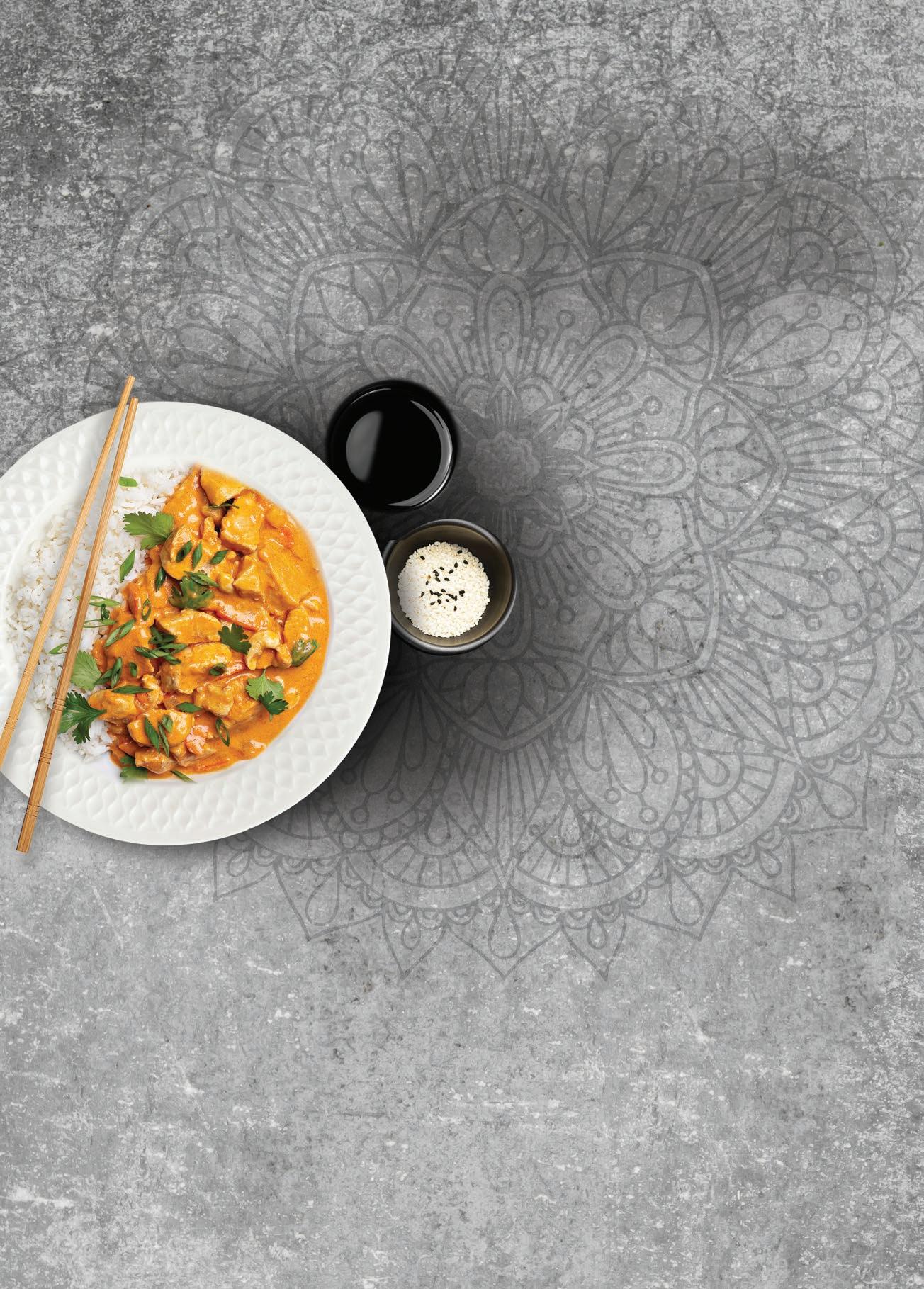










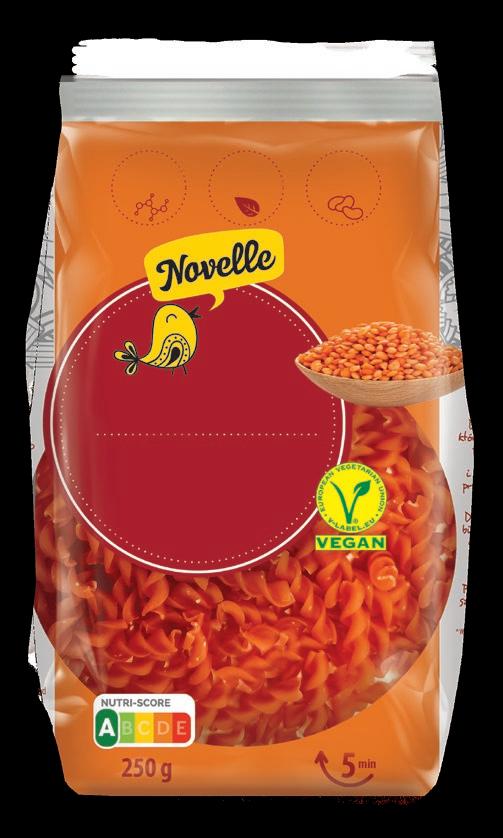
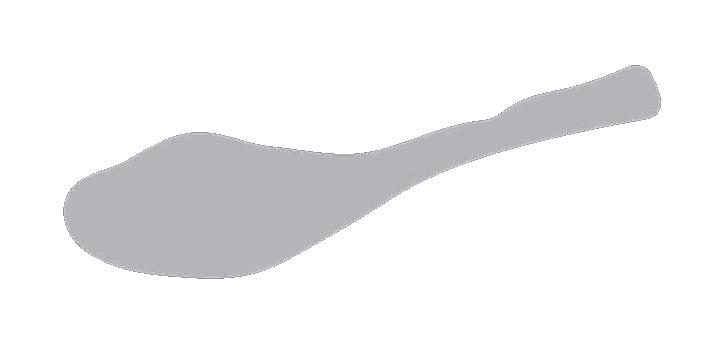
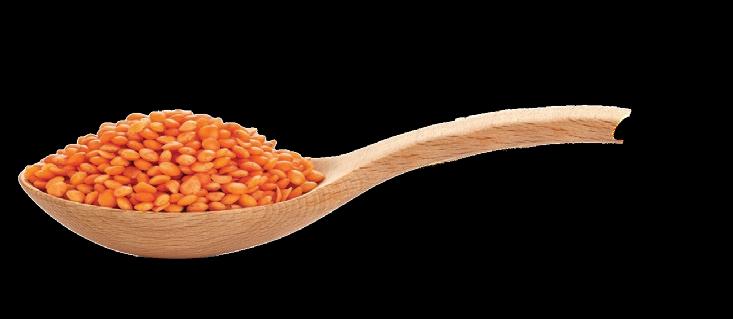





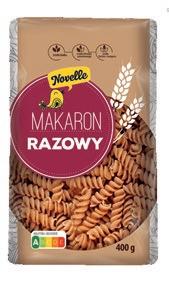

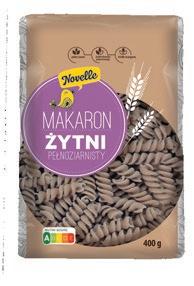

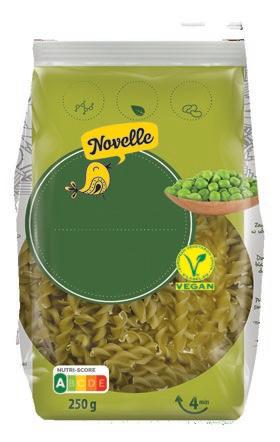


What products are included under the So Food band? What makes this brand stand out on the market?
The offer of the So Food brand includes dish es inspired by cuisines of the world, Mexican, Indian, Japanese, or Korean style, as well as those familiar to Polish consumers, such as cabbage rolls or lecho in two versions: meat and vege tarian. Since the beginning of the work on the So Food brand, we have considered it crucial to prepare an offer of plant-based cuisine meals to satisfy the needs of consumers preferring a vegan or vegetarian diet and those interested in cutting down on meat in everyday diet. The entire de velopment of this price category is inscribed in the DNA of the So Food brand. We open up to the consumer needs and requirements. We have noticed the “free” trend and the focus on remov al of undesirable ingredients from the product, such as “lactose-free”, “preservatives-free”, etc. So Food is a brand dedicated to a demanding, conscious consumer. The products bearing the So Food logo are made of natural and healthy raw materials, with no preservatives, flavour en hancers or colouring. They provide a tasty offer for everyone who values high quality ingredi ents. The dishes we offer are meals convenient to prepare; it only takes 3 minutes in a microwave oven or on a frying pan, and they are ready. With different proposals, everyone will find something for themselves here. Our offer includes meals inspired by cuisines of the world, traditional cuisine, and plant-based cuisine. Our meals ded icated to vegans and vegetarians bear the V-label.
Equally interesting items are found under the other brand from the portfolio, which seems to combine tradition with the modern – Novelle…
We develop projects connected with salutogenic pasta, meeting the needs of con sumers who are on a diet for health reasons.
Marcin Zieliński, Business Development Director at Makarony Polskie, on the offer of two key brands in the portfolio, the convenience trend, and the benefits in offering tray-packed dishes.
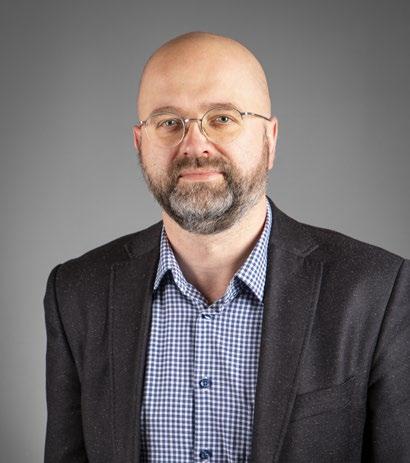
A considerable part of our work at the Re search and Development Centre of the Pasta Industry in Rzeszów is focused on the devel opment of such products as legume pasta, pasta with salutogenic plant additives, and pasta made of different kinds of flour. We have introduced high-protein pasta, we also conduct work on pasta for people with dia betes, we analyze other salutogenic functions of plants and try to introduce such products to the market. The flagship product of the Novelle brand is vegetable pasta, made of 100% legume flour. This year, we have also expanded our portfolio with pasta made of wholegrain flours: wheat, spelt, and rye. However, a salutogenic product is not always easy to commercialize. It is often a market niche and we have to devote some time to customer education, which slows down the popularization of such products. We are deeply convinced that our actions make sense and, apart from popularization of healthy types of rare flour pasta, they will also create greater awareness of consumers and, eventu ally, a better condition of their health.
Apart from the composition, both brands stand out with quick preparation of the meals. What is the significance of the conve nience shelf among consumers today?
Consumers value convenience, so they look for simple solutions, not requiring long prepa ration. This is the reason for development of the convenience shelf full of meals ready for quick consumption. Consumers want to be able to make a tasty meal easily. They are increasingly willing to choose meals prepared in such a way to make a wholesome serving for one person, e.g. tray-packed ready dishes. This also helps avoid food wastage. It also means saving energy, water, gas, which is favourable to the environ ment and the household budget alike.
The category of ready dishes includes many categories. Why do you focus on traypacked products? What are the benefits?
For many years, a trend can be noticed on European markets, namely the development of the segment of tray-packed and cup-packed ready dishes at the expense of the steadily shrinking shelf of jarred products. In Poland, the so-called dry shelf still has the largest mar ket share, but even there, one can clearly see a gradual departure of consumers towards the refrigerated shelf. Among other things, this results from a strong convenience trend. Man ufacturers look for increasingly new solutions to make it easier for a consumer to heat up the meal and eat it. Under the So Food brand, we utilize mechanisms known for generations from the preparation of long-lasting jarred products in order to preserve tray-packed dishes without preservatives but only with high temperatures. Especially in the current time of high energy prices, trade chains and consumers alike should appreciate the lack of necessity of keeping these products under refrigerated conditions.
Which products will prove themselves in exports and why?
Export goods must be attractive, so for the purpose of exports, we focus on the offer of ready meals. European consumers value our So Food oriental dishes: Chicken in Red Curry, Chicken in Bittersweet Sauce, and Tikka Ma sala Chicken. Tray-packed ready meals are defi nitely more popular in the EU countries than in Poland, so we are currently focusing on the development of these markets. The other cate gory of products that should succeed in exports is vegetable and salutogenic pasta. Our legume pasta is very highly appreciated by consumers at home and abroad, and it makes us able to com pete with manufacturers from other countries.
Thank you.
Packaging tells consumers who the product is addressed to. This, of course, also works the other way – by designing packaging in a certain way, marketing experts can make it reach a specific audience. More innovations are appearing on the market, and consumer expectations are rising. How do manufacturers respond to current trends?
Monika Górka, Managing EditorNo product exists without packaging, and no packaging exists without a product. These coexisting elements must be perfected in ev ery way to attract the attention of the cus tomer facing a purchase decision. The pack aging market continues to evolve and drive new trends. Nowadays, ecology, environmen tal protection and sustainable development are very important issues. Customization and upcycling are also visible trends.
In a survey conducted by SW Research in July 2022, respondents were asked how important packaging is to them when buy ing food products. 48% of the respondents said it mattered a lot to them (including 9.7% who considered it very important and 38.3% who considered it rather important). In contrast, 40.6% of the respondents said that the product packaging is of little impor tance to them (of which 8.7% considered the importance very low, and 31.9% considered it rather low).
“Food product packaging plays a mul tidimensional role. In addition to the basic protective function, the criterion of environ mental responsibility is increasingly import ant. Thinking about aspirations and plans for 2022, Mintel data shows that 28% of respon dents in Poland say they would like to choose products with environmentally friendly pack aging”, says Honorata Jarocka, Senior Food and Drink Analyst, Mintel. There are many innovations on the packaging market, but it is important to remember that, above all, the ideal packaging must perfectly fulfil the pro
tective function of the product that is trans ported in it. Here proven, tested solutions are indispensable. Modification and improve ment should meet the needs of the customer seeking convenience in everyday life.
“As part of personal health, consumers are looking for a helping hand and facili tation, hence brands should engage more strongly in the graphical issue of packag ing with an emphasis on simple and clear communication of the product benefit. One piece of the communication puzzle could be visual nutritional labelling systems such as Nutri-Score. Almost a third of Poles (32%) agree with the statement saying that nutri tional rating systems like Nutri-Score help them find healthier products on the shelf”, comments Honorata Jarocka.
Very colourful and flashy packaging is slowly becoming a thing of the past in favour of neutral colours associated with naturalness and ecology. At the same time, the market has gradually begun to reduce the amount of plastic consumed. Instead, many green al ternatives have emerged, including recyclable and biodegradable packaging. So how can the attention of a potential buyer be attracted? Mention an interesting initiative or contest on the packaging.
“Another important aspect is entertain ment and fun. Packaging can fit into the need for around-product engagement, for ex ample, by combining an element of fun with sustainable development. One example is the Nestlé campaign: “Sow seeds, save the bees”,
under which the purchase of selected break fast cereals included a sachet of honey plant seeds. Thus, consumers were encouraged to plant seeds in pots, gardens or meadows”, analyses Mrs. Jarocka.
An interesting alternative is to provide ed ucational content or a recipe using the prod uct on packaging.
“Thinking about additional interaction with the brand, it is still worthwhile to in spire new culinary experiences with out-ofthe-box recipes placed on packaging, which remains a desirable practice for consumers, especially Polish ones,” adds the expert.
The trend of so-called upcycling, or giv ing a second life to products, is also gaining popularity. It is present in many areas of life, including packaging. On the FMCG market, such solutions can be found at the moment mainly in drugstore categories. Some com panies have introduced the possibility of re filling bottles with their products at stations specially designed for this purpose. An ex ample is the YOPE brand, which has set up its refilling facilities in selected drugstores of the Super-Pharm chain. At these points one can refill reusable packaging with liquid soap, shower gel, shampoo or dishwashing liquid, among others.
The packaging should look good, be eye-catching and informative – with infor mation not only about the product, but also about the materials used, the company’s ini tiatives and approach. And above all – protect the product throughout the supply chain.

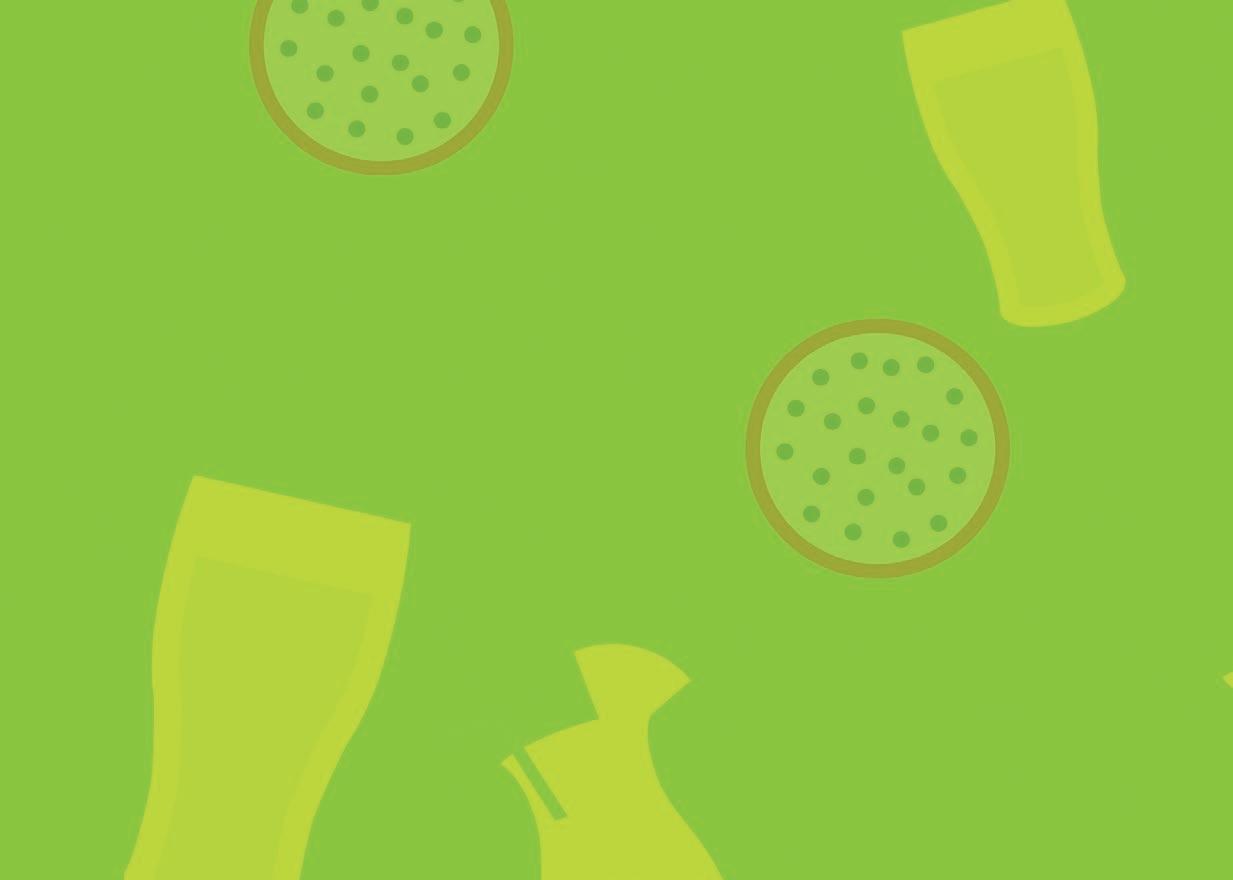

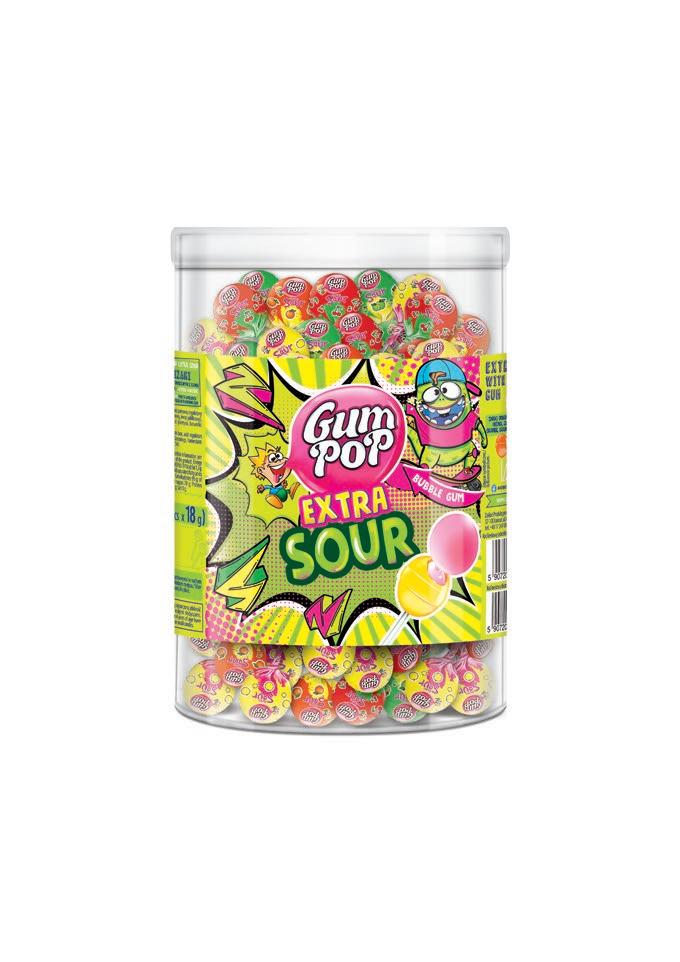
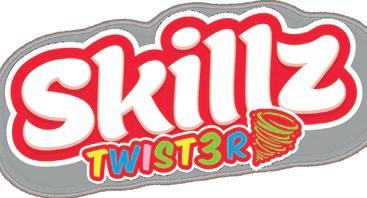

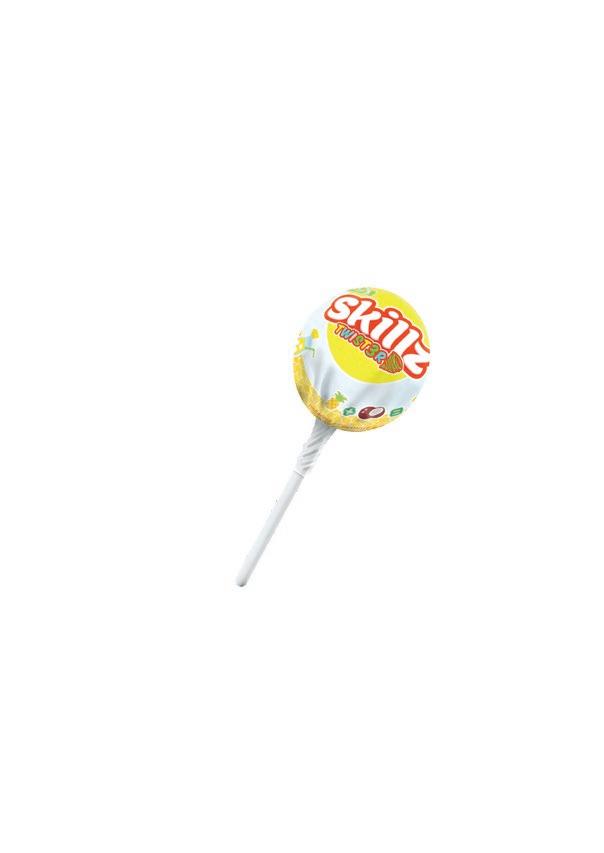
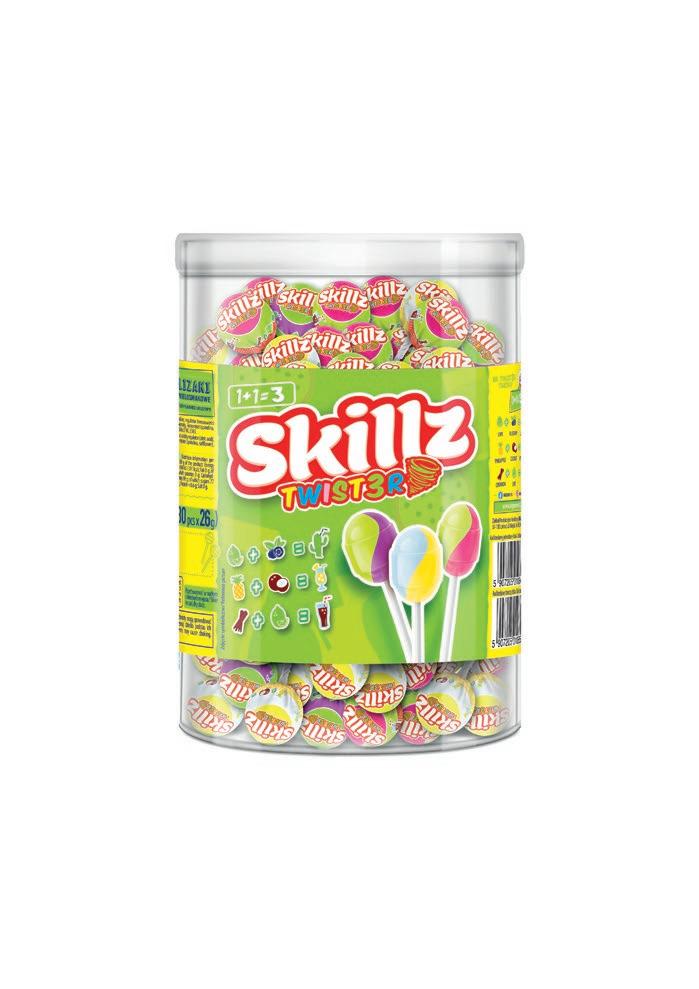
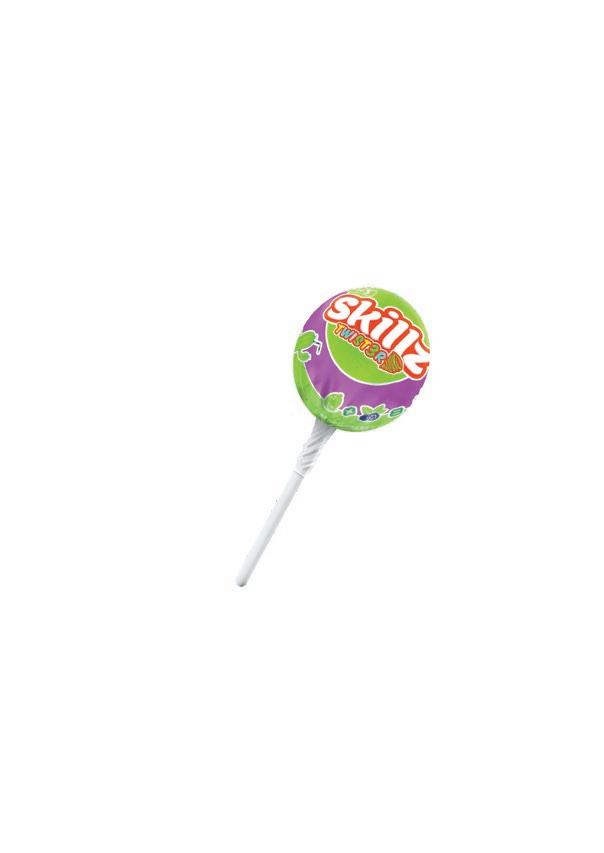



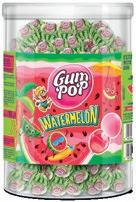

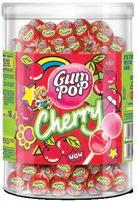
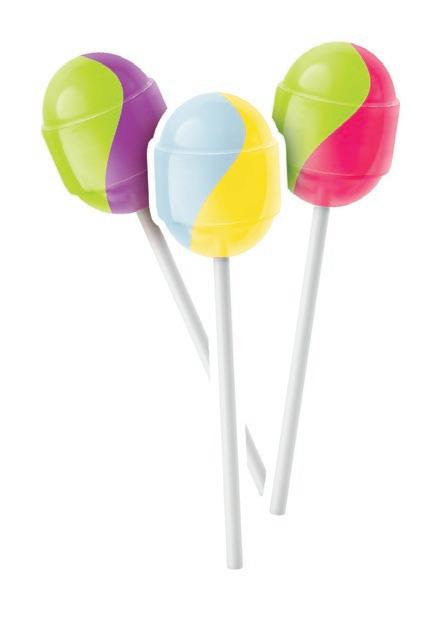







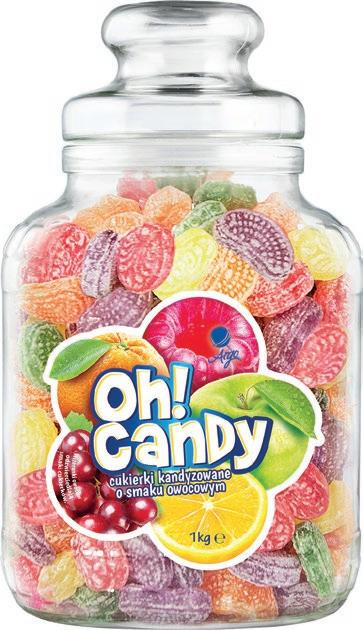


 SM Mlekpol
SM Mlekpol
Mlekpol Dairy Cooperative is built on solid foundations it has been reinforcing for 40 years. Our basis is the high quality of milk provided by farmers who are members of the Cooperative, allowing us to manufac ture high-quality, healthy and tasty products to reach the Polish market. Sales within the European Union and exports are highly im portant to Mlekpol as well. 30% of the en tire production reach foreign markets. High currency exchange rates make sales outside Poland profitable, therefore, Mlekpol will take care to maintain it on the highest level possible. Our own stable base of raw mate rials is of high value and the strength of the company, allowing us to carry out orders from our regular customers and to acquire new ones. 2021 closed with a record-break ing purchase of milk, exceeding the limit of 2 billion litres, and a positive financial result. In the same year, SM Mlekpol obtained the title of Eco-Investor of the Year and received the Economic Prize of the President of Po land in the “National Success” category from the hands of President Andrzej Duda himself. The current economic situation poses a seri ous challenge to everyone, especially due to the increase in costs of raw materials, produc tion, energy or transportation, as well as to the runaway inflation. The disrupted supplies or shortages of different additions and inputs for production are becoming an increas ing problem. The Cooperative’s production is growing year-on-year, and the initiated investments in automation and new tech nological solutions at processing plants will contribute to the optimization of processes as well as reduction of maintenance costs. However, one should say this is a year full of difficult challenges and anxiety.
Vlatka Jurčić Marketing Director Dr GerardThis year, like the previous 2 years, turned out to be full of surprising events again. As we were going back to normal after the pan demic, we learned of the attack on Ukraine. However, despite all the anxiety and turbu lence on the market, we have achieved very good sales results, and March has been a re cord-breaking month in the company’s his tory. However, we are still facing many unfa vourable circumstances – the increase in raw material prices, caused by the inflation and the war in Ukraine, has forced us to increase product prices, which is always a difficult de cision for a company. We know consumers in Poland are looking at their expenses with increasing anxiety and have to make difficult choices when standing in front of a store shelf. We are all the more happy that our products keep reaching their baskets, which means they appreciate the quality, taste and wide range of Dr Gerard products.
We are also satisfied with the results of our exports. Although we have completely suspended our sales to Russia and Belarus, that gap has been more than filled in other export directions.
Despite the turbulent and uncertain times, our company is looking into the future with optimism – we have plans to introduce new products, as well as to modernize our production lines, which will allow us to com pete on the market with even more efficiency. The recent global turbulences, out of which we have emerged unscathed, prove that a cri sis is not just a risk but an opportunity for companies like Dr Gerard, capable of adapt ing to rapidly changing conditions.
 Jacek Wyrzykiewicz PR & Marketing Services Manager Hochland Polska
Jacek Wyrzykiewicz PR & Marketing Services Manager Hochland Polska

Hochland Polska is a well-organized en terprise and even in difficult times, it is able to provide virtually uninterrupted availability of its offer to the market. The dairy indus try, both on the domestic market and glob ally, is acutely perceiving the results of the current situation. The war in Ukraine, the growing prices of gas and electricity, the in creasing interest rates of the National Bank of Poland, and the potential new wave of the COVID-19 pandemic – all of these events augur new price increases ahead. Further more, new hazards, of extreme importance to processing plants, are looming on the horizon – namely, the amendment of regulations con cerning energy supply limitations.
Nowadays, of particular importance is the ability to make quick decisions which help one pass successfully through the reborn cri sis. Milk processors are being forced to shift the growing costs of dairy raw materials, as well as other costs related to production, wages or logistic issues, to their clients and further consumers. In the longer term, new, increased prices may limit the consumers’ willingness to shop, slowing down the sales as a result. A drop in demand, on the other hand, may eventually force reduction of the milk price, as more of the raw material would remain on the market.
In such difficult times, it is also worth speak ing about achievements; one on our part is the new Almette cottage cheese the sale of which has just started. This is a concept standing out in the market, surprising due to its modern in terpretation of classical cottage cheese. The line includes three taste variants: with gentle ricotta cheese, with cream curd, and with natural skyr, a recipe for taste pleasure without precedence in this product category.
Despite the deterioration of consumer confidence, we have achieved very good sales growth. Our products, especially the new ones, are appreciated by consumers. We will invest in further development of our business: we modernize our production plants and make them even more environ mentally-friendly. In the financial year that has just ended, we have cut our carbon di oxide emissions by 20%, and by the end of 2022, we will achieve zero net emissions at our Biłgoraj winery. This will be the first zero-emission plant in the alcohol industry in Poland.

The beginning of this year had not por tended any of the changes that occurred in the following months. The increasing inflation, the war in Ukraine, the increase in prices of energy and major materials have all caused an increase in the costs of business of the AMBRA Group and deteri oration of the situation of consumers, forc ing their limitation of purchases of many goods and services. Although the demand for alcoholic beverages is relatively less sus ceptible to the effect of such negative fac tors, the recent months saw a reduction in expenses for many alcohol categories, including still wines. On the other hand, the consumption of sparkling wines was still on the rise.
In such an unfavourable environment, the sales of the main products and brands of the AMBRA Group definitely outran the market dynamics, growing by more than 15%. One of the quickest-growing segments of the mar ket was comprised by alcohol-free wines.
For 13 years, AMBRA S.A. has been uninterruptedly distributing stably grow ing dividends.
The good financial and liquidity stand ing of the AMBRA Group has allowed the Management Board to propose a dividend of PLN 1.00 per one share to be paid for the year of 2021/2022. In May 2022, in the Heroes of Capital Market vote orga nized by the Individual Investors Associ ation, AMBRA was distinguished in the Dividend Listed Company category.
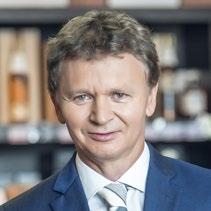 Iwona Łagodzińska President of the Board Terravita
Iwona Łagodzińska President of the Board Terravita
Terravita has been successfully operat ing on the market for almost 40 years. Our products have found their followers who invariably choose our quality and taste, regardless of the economic or political sit uation. A thoroughly elaborate strategy has allowed us to develop further, in these dif ficult times as well. The foundation of our business is chocolate bars which we offer to our customers under our well-known Ter ravita, Alpinella, or Cocoacara brands, but also under private labels of our clients. With our chocolate assortment, we are present on almost 30 markets in Europe, Asia, North America, and Africa. An important share of the company’s exports is comprised by South-Eastern Europe, which is why I fol low the situation beyond our eastern border with particular attention. A significant event was the deletion of chocolate products from the list of critical import goods, announced in February 2022 by the Ukrainian Coun cil of Ministers, resulting in resumption of sales to one of Terravita’s key outlets. We should not forget about an important part of our business, comprised by confectionery semi-finished products which we offer to our Customers under the Terravita and Bellaria brands. A wide assortment of such semi-fin ished products like chocolates, spreads, con fectionery icings, or dessert sauces, is direct ed to B2B customers: confectioners, bakers, and the confectionery industry. Moreover, Terravita is a major producer of ice cream toppings in Europe. This season, I was pleas antly surprised by the development of the category of dessert sauces which, apart from the continual presence at catering establish ments, have also appeared on the shelves of one of Poland’s major retail chains. I can agree the times are tough. The level and pace of the changes are hardly encouraging for risk takers. However, we at Terravita follow the philosophy that in order to stay on the market, we need constant develop ment. Customer trends and expectations are changing. As a manufacturer, we cannot dis regard them. This is why we invariably focus on development and investments.
Renata Błądzińska Senior Marketing Manager ZPH ARGO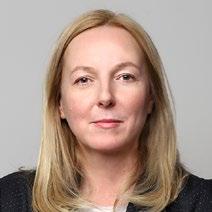

2022 has been a special year for our com pany. This year, we celebrate a unique jubilee of 30 years in operation on one of the most prospective markets of the world – the con fectionery market.
Our quality, makes our consumers smile, and pursuit of trends, have been the features which have propelled us through the 3 de cades of our passion for caramel.
In spite of difficult and economically un predictable times, Argo does not slow down, successively reinforcing its position, both on the domestic and international market. Ex ports are definitely crucial to us and signifi cant in the context of the company’s general profits. Almost 50% of our production is sent to foreign markets.
The growing inflation, with raw mate rials and energy prices getting more expen sive, mean serious challenges, but on the other hand, they also provide a moment of increased motivation and inspiration to act. In the times of constant changes, we adapt our offer to new market realities, we imple ment new products, and we are not afraid of introducing innovative ideas which may be surprising. Innovation is the driving force be hind our growth and a source of value.
Soon, our portfolio will be expanded to include new products, enjoying much pop ularity among foreign consumers. We ap proach every implementation with particular detail and attention. Therefore, we hope all of our planned implementations will win the consumers’ hearts, especially that they will also include products supplementing our portfolio, which we have never had so far. The first innovations will premiere at the SIAL Paris fair. First of all, we are focusing on European markets, but we also think with more and more confidence, about scaling our sales to new non-European ones.
Despite the exceptionally difficult times, we look into the future with optimism.
The development of the transport branch has been evident for several years. The mar ket and the needs of our customers have enabled our development in the area of the functionality and flexibility towards the cus tomers. For many years, transportation had been subject to special, often contradictory regulations; nevertheless, we have managed to systematize the entire system so we could operate with resilience and develop.
We have been surprised by the geopoliti cal situation we had been completely unable to foresee, just like we could not have predict ed what consequences it would entail. The in crease in fuel prices and other semi-finished goods used in transport has overwhelmed all recipients and suppliers. However, making the customers aware of the causes for price instability, numerous conversations and anal yses allowed us to develop appropriate condi tions for cooperation.
Apart from the quality of our services, of special importance to us is the equipment we work with. We place much emphasis on appropriate servicing, inspections, and main tenance. We do not accept any technological shortcomings.
Additionally, we put much emphasis on partner relations with our clients, treating each other as equals and following the “win to win” policy. We value the loyalty, sinceri ty and trust we try to give to our customers, and we expect them to do likewise. At any time, they can count on our assistance and consultation in the area of transport organi zation. We also assist in the structuring and reduction of expenses, sharing our experience and knowledge.
In the nearest future, we plan significant expansion of our fleet, broadening of our stor age services, as well as further expansion into European directions. We will focus not just on service of full-load freights but will devote more attention to less-than-truckload ones. All of it, of course, under controlled temperatures, with appropriate safety precautions.
Marek Moczulski President of the Board Unitop

We are currently facing high unpredict ability on the market. Raw material prices are quickly changing, sometimes twice a day. The prices of energy or all other costs of production are going up as well. We can not be sure what the situation will look like in a month or two, or even earlier.
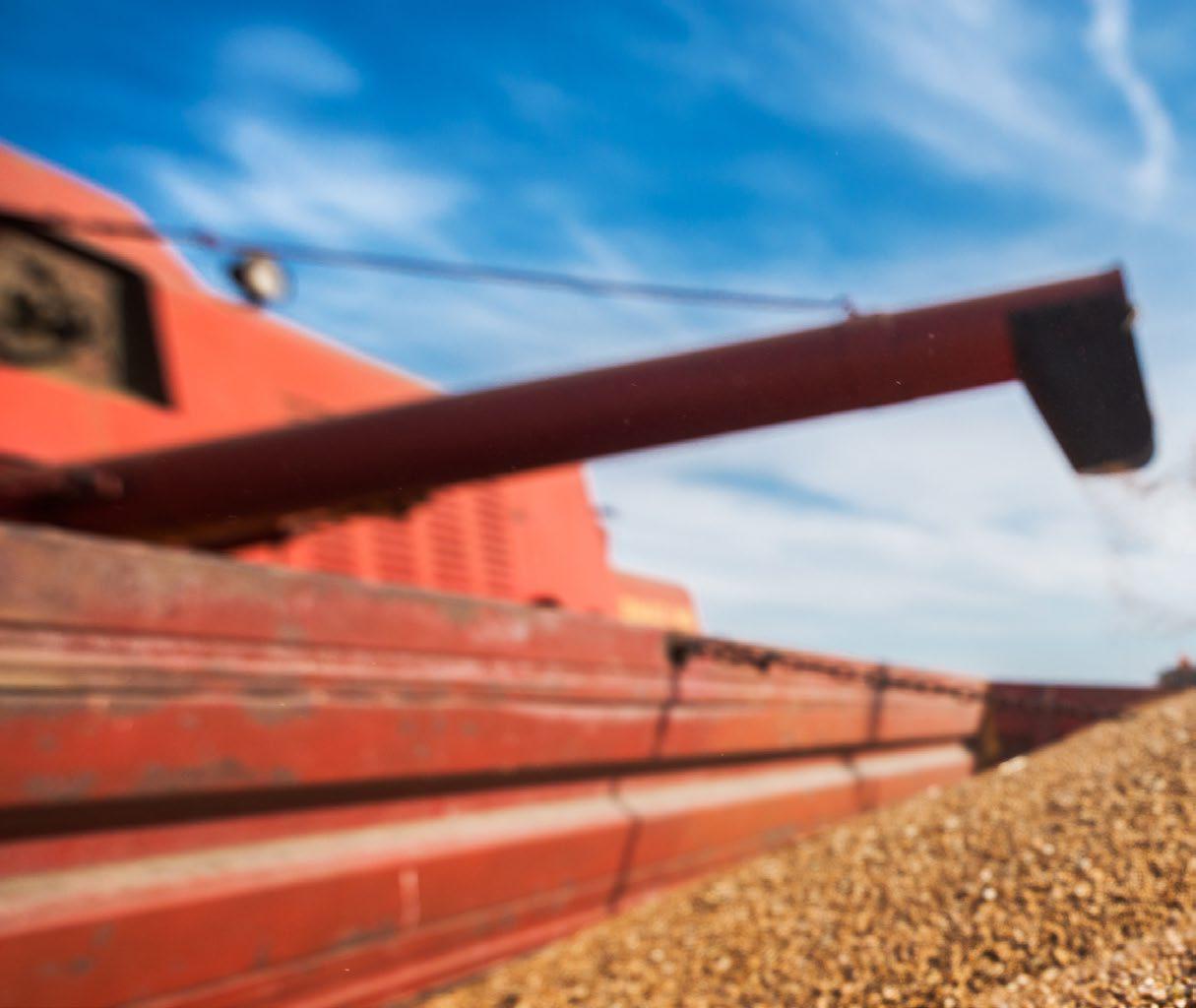
The consequence is a challenge for us all, concerning, among other things, pre diction how consumers would behave in this situation.
We strive to be more efficient, but there are limits to that. We try to adapt our pric es, but we are unable to pass on the entire increase of raw material prices or costs of production to final products for the con sumer. Currently, we are experiencing an uncertain situation connected with the inflation and the results of a crazed policy through which the energy becomes an un imaginable luxury.
In exports, we have been facing radical growth of transport costs for the last year and a half or two years; the cost of a con tainer has increased many times. There are also uncertainty-related issues connected with sea port downtimes, accumulation of products during one period, or Covid re strictions, which has not come back to nor mal so far. There are delays by one or even two months.
Another problem is the Polish products becoming less and less competitive. Costs of production are rising rapidly and our products may become unattractive in com parison with others.
We are one of the largest halva and sesa me snack manufacturers in Europe. In spite of many challenges, we have substantially reinforced this position on the Polish mar ket over the last six months. Additionally, we have acquired significant new recipients on international markets. Despite all the disruptions, we look into the future with cautious optimism.
Magdalena Brzezinska Corporate Director Żywiec GroupDue to the cumulated events of the last few years, business is facing unprecedented challenges today. The beer sector has not recovered yet from the sales drop caused by the pandemic restrictions and the double increase of the excise tax, and now it has to struggle against the enormous inflation of costs of production, especially of energy, and the new disruption of supply chains, caused by the war. Additionally, consumer confidence has currently reached its lowest level since the outbreak of the pandemic, which translates to sales of such products as beer. Changes in consumer customs af ter the pandemic (less frequent shopping, and less frequently in small stores) have resulted in drops in the largest segment of pale lager, comprising above 80% of the market. Although non-alcoholic beers are still recording increases, especially during the season, their segment is still too small to compensate for the drop in lagers. De spite such unfavourable circumstances, we at the Żywiec Group go on with our devel opment strategy, trying to respond in the best way possible to the changing consum er needs. This is illustrated by the success of this year’s new product, Heineken Silver – the bestselling innovation of the present season. This beer responds to the consum ers’ interest in lighter, more refreshing beers. Furthermore, we are still developing our non-alcoholic beer offer, and our new products from this year have met very good reception among the consumers. Żywiec, our flagship brand, is doing well too. Un der the conditions of such uncertainty, it is extremely difficult to make business plans. It is now that our long-year relations with suppliers pay off. Risk management has al lowed us to secure enough raw materials to be able to implement our production plans for the entire season.



The current economic situation makes con ducting business a great challenge. The food industry, like all other industries, is struggling against perceptible price increases in every area of the conducted operations. The most acute problems are the payments related to raw ma terial purchase, as well as limited availability thereof. In the recent weeks, sudden limitation of the supply of carbon dioxide used, among other things, in the beverage industry, has been raising our concerns. The beverage di vision of Colian, involved in production of the cult-status Oranżada Hellena orangeade, comprises a significant part of the company’s business. Shortage of this raw material means serious problems. We are also concerned to watch the increase of rates for electric power and gas, which, from the viewpoint of auto mated production processes, are the basis of all activities. Their share in budget statements is increasing each month. The inflation, as well as the uncertain geopolitical situation, force us to approach all activities with caution. An un questionable success of our company is the fact that this spring, we commissioned a fully auto mated high-bay warehouse in Opatówek, the headquarters of Colian. However, the months to come will be a time of cautious operation. Colian is actively operating on international markets. Our products are exported to almost 70 countries and are highly appreciated by consumers. The company’s development strat egy is strongly focused on export activities, but we also find obstacles here. Disrupted supply chains and high freight prices are a major hin drance. Nevertheless, we believe this situation to be transitional and we look into the future with optimism. Our goal is further efficient development and promotion of high-quality products in the international arena.
Marcin Zieliński Development Director Makarony PolskieSince the beginning of the war, the in creasing prices on the markets of wheat, packaging, energy, and gas have been posing an unprecedented challenge to companies. Without this problem being solved, the com petitiveness of European companies and the economic situation will be exceptionally dif ficult. A high inflation level may persist for some time, and the actions of central banks may restrict the economic activity even more.
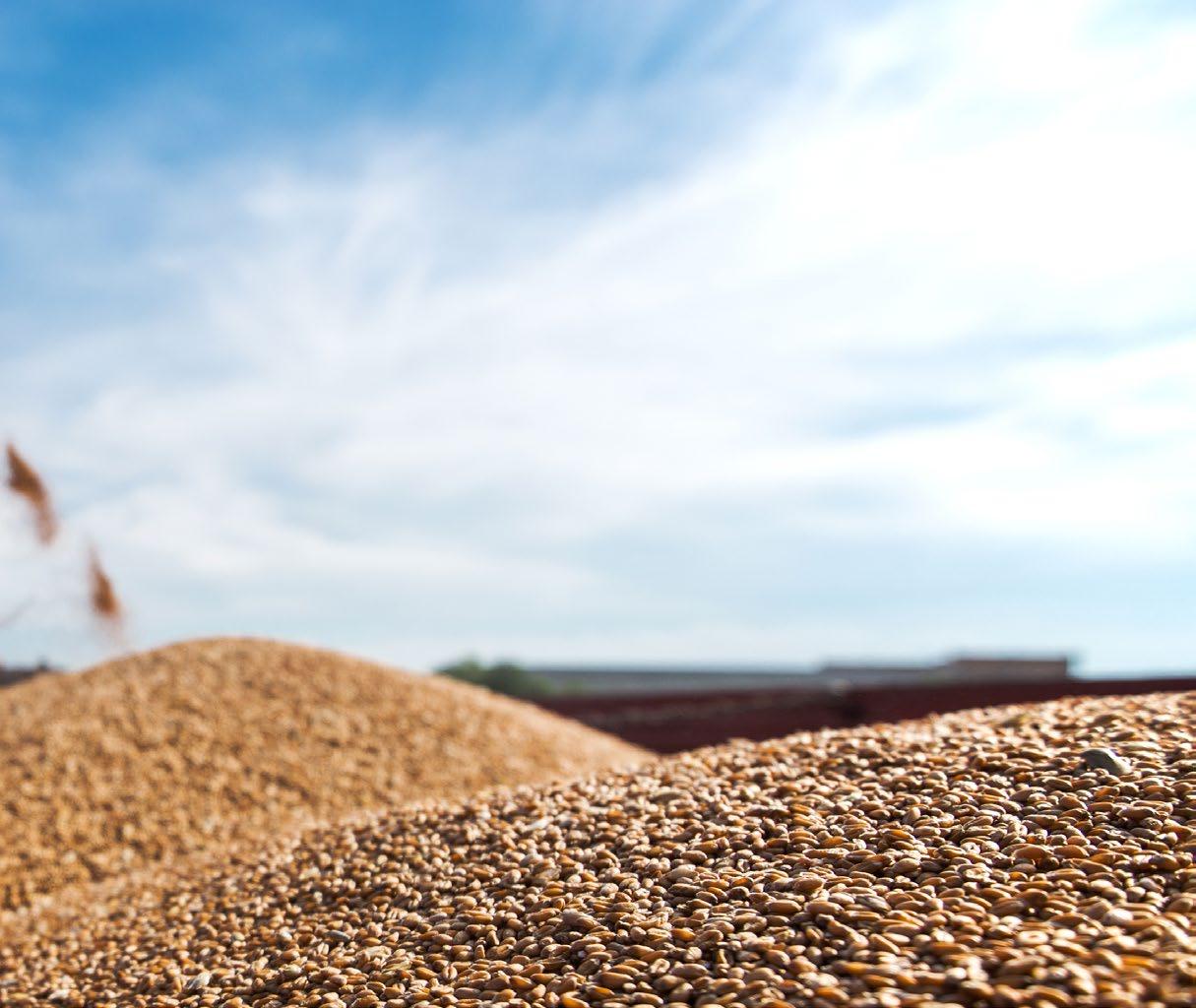
In such a complex situation, we try to con duct business, but this puts up many challenges.
As a company, we mainly operate in Po land, but exports are becoming increasingly important to us as well. So far, our main ex port market has been Ukraine, but since the outbreak of the war, the situation is continu ally becoming difficult and we need to look for opportunities on the Western European markets as well. Despite objective difficul ties, we believe that with our modern and convenient products, such as ready meals in trays (we are a runner-up in Poland in this category), or vegetable pasta, we will be able to gradually increase our presence in the EU countries. In the nearest future, our main export activities will focus on acquisition of new clients from the EU countries and the maintenance of trade relationships with Ukrainian clients. We believe the situation in Ukraine will eventually stabilize and we wish to maintain our strong position in the pasta segment in that country.
To sum up, we will focus on the optimiza tion of our business, implementation of syner gy effects on this year’s takeover of a competi tive entity, and carrying out an export growth strategy on new markets in EU countries.
Maciej Herman Managing Director LOTTE WedelJust after another wave of turbulences related to the COVID-19 pandemic, the food sector in Poland is facing new chal lenges. Price increases are present in most areas significant from our perspective, i.e. dairy raw materials (the average price in crease during the year was 79%), sugar, packaging. Of much importance to us is also the weakening of the zloty with re spect to all main currencies. It is due to purchases of the basic raw material (co coa) taking place in Europe through the London commodity exchange, where the British pound is the settlement curren cy. Other adverse factors are the growing prices of fuel and energy. In response to these challenges, the Wedel company, just like its founders – Karol, Emil, and Jan – used to do, adapts to the dynamically changing circumstances, drawing upon its many years of experience, to emerge even stronger. In late August, we published the “Global and Polish Chocolate Market” re port which, in spite of the difficult eco nomic situation, predicts, following the prognoses by analytics, that the global chocolate confectionery market will keep developing steadily, growing by several per cent annually. In Poland, an increase in consumption of chocolate confectione ry is expected – by 0.5 kg per capita over the next 5 years. In this regard, Wedel has a triple recipe for maintenance of the po sition of an industry leader: passion for creation of high-quality chocolate, further portfolio diversification, and creation of a customized offer.


If we wish to conduct business – and we do, because we are made for this – we have no choice but to simply do our best, even un der difficult conditions. This is indeed a crisis situation, but it is not the first crisis and sure ly not the last one either. Just as in any other crisis situation, one has to change the business philosophy; in this case, from long-term plan ning, encompassing a span 3-5 or even more years, to short-term planning concerning the next week, month, or quarter of a year.
Foodstuffs are and will be consumed. We have to adapt to the current situation, respond quickly, adjust our offer and satisfy the custo mer’s needs.
90% of our turnover are comprised by exports. Currently, our offer is available in 75 countries in the European Union as well as in more than a dozen Asian countries, a similar number of African ones, and several countries of North and South America.
Absolutely expansive exports may provide an impulse for development, as well as for stabilization. Food consumers are all the same around the world. Their expectations on in dividual markets are identical. And we have to offer a product to meet everyone’s expec tations.
Different challenges have also emerged due to the war in Ukraine. We have been present on this country’s market for 25 years. When the war broke out, we were deeply affected and had to deal with it. The effect on global trade is not insignificant either: the disruption of supply chains, rapid price surges of individual services, and many other different things, but our purpose is to overcome these difficulties.
Our plans for the future are connected, above all, with consistent development.
Leszek Wąsowicz President of the Board HELIO

The inflation and deterioration of con sumer confidence are real economic forces affecting everyone. Unfortunately, the pric es of raw materials are still rising, the zloty is weakening in relation to the currency of crucial importance for dried fruit purchases (USD). Besides, costs are rising every step of the way, from energy and materials to transport to WIBOR affecting the activity financing costs. As far as it is possible, we strive to neutralize the burden of increases on our recipients and final consumers, as can be seen from the lowering of HELIO’s profitability. We are very cautious about passing the increases on to customers, striv ing to mitigate the inflation’s impact on the consumer.
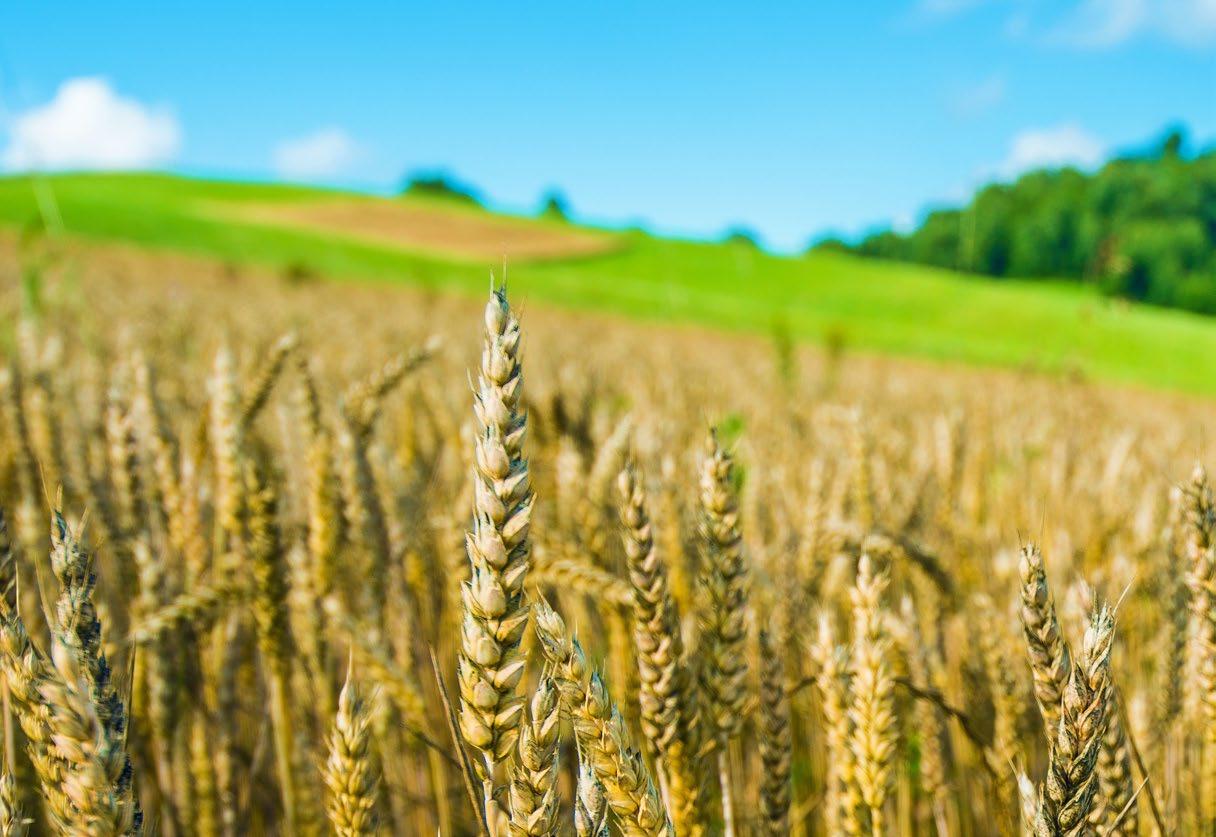
In the prospects for our sector, one may expect further reinforcement of the role of trade chain private labels, but also reaching for products of certain quality from trusted manufacturers. Although price will be gain ing on importance, trust in a manufacturer and good quality guarantee will intensify as well. If consumers have to reasonably ad minister their basket on the “indifference curve”, they will not risk any failed pur chases of dried fruit, even at the expense of several dozen groszy more for HELIO’s certified quality. It is worth stressing that HELIO quality means not just our um brella brand but numerous private labels of leading trade chains. Simultaneously, we will take all possible efforts to minimize the price increase of our products, utilizing our 30 years of experience in purchase of raw materials and currency, and simultaneous ly, to maximize the benefits from the econ omy of the scale of operations. Our annual turnover in the retail segment is already exceeding PLN 300 million, making us the largest supplier of dried fruit on the retail market in Poland.
The recent years have come as a shock to the Polish and global economy. Infla tion has appeared, as an aftermath of the pandemic among other things, and today, we are all additionally facing the results of the hostilities in Ukraine. This is extremely perceptible, particularly in the areas of sup ply chain and energy purchase. Like almost every enterprise, we are paying very much attention today to the maintenance of the continuity of production and to the main tenance of profitability.
As early as this February, observing the increasing prices and the predictions con cerning availability of raw materials, we have started preventive purchase of many materials, including raw materials, which could have been purchased earlier. Now we are in the middle of the season of harvest and the purchase of herbs and fruit which, despite decreased availability of certain spe cies, is going promisingly. Unfortunately, the soaring prices of supplied energy make the production cost of raw materials and semi-finished products several times higher in relation to the previous years.
We also remember that being a large enterprise, our actions have a measurable effect on our surrounding. We are a re sponsible company which chooses local suppliers when purchasing raw materials to support Polish business. Sadly, the difficult price situation on the market forces many of those suppliers to amend the previously signed contracts, trying to save their enter prises. Thus, we cannot remain indifferent and are obliged to bear higher expenses to support both their and our business. We do so because our development is closely connected with the success of many small er regional entrepreneurs. In my opinion, local business support is one of the most eminent cases of sustainable development, which cannot be forgotten in these times of crisis.
Evangelos Evangelou President of the Board “Herbapol-Lublin”
Questions about how a company fares during a crisis are never easy to answer. Cri ses vary. The current turbulence is of global nature, even though Europe is affected most severely. First, due to the Russian military aggression in Ukraine and the related energy problem; secondly, due to the structure of the European economy. Certain issues had been neglected or treated overly optimistic, and now, the entire continent will pay a high price for that. Let us have no illusions; this is no short-term turbulence. In my opinion, we have to brace for a long period of recession.
Modern Expo is certainly a special case. The Russian aggression has dramatically changed our situation. We have lost access to two vast markets on which we used to have a dominant position, and we are facing a real hazard to a part of our production infrastruc ture. I might be surprising now, but this is the end of the bad news.
Over the 25 years of its operation, Modern Expo has faced many challenges. It could be said that we have built a natural resistance to crises and we defiantly consider each of them a new opportunity. This is the case right now as well. This results from three factors: a very solid organizational and technological base, our agility in work on the market, and our proactivity in the areas of product and sales. The best proof is our project for the Allegro auction website, together with development of not just an excellent line of parcel terminals but also an entire range of services we can now provide to different segments of the market throughout the Old Continent, not only to retail chains. We also have products up our sleeve that may soon turn the current world of retail upside down.
A crisis may be an opportunity, but only if you have prepared yourself for it beforehand.
Joanna Semczuk Trade and Logistics Director Henkell Freixenet Polska
Our situation is certainly a little dif ferent than during the pandemic. We are impacted by completely different factors. Consumers adjust their shopping decisions to the affluence of their wallet. Unques tionably, the well-known, tested and reli able brands are strengthening, but verifica tion takes place as well. The trend of smart shopping is reinforcing as well.
We are particularly happy with the spectacular success of Mionetto Prosecco, an unquestionable leader in the segment of sparkling wines for another year in a row. Mionetto is growing three times faster than the entire prosecco category!
As befits a leader, we have celebrated the International Prosecco Day (13 August) with much panache. There were competi tions with prizes, held in social media as well as at stationary stores all across Poland.
However, the greatest event was the special Mionetto Zone at the 762nd St. Dominic’s Fair, where one could cool down with a glass of the favourite prosecco of the Poles, taste some cocktails prepared on its basis, or even dance to the rhythm of dolce vita…
However, our portfolio includes more number one products. Lubuski Gin is a lead er in its segment, whereas Dalkowski Advo caat is the favourite egg liqueur of the Poles.
We are also immensely proud of our in ternational World Wine Project. We supply wines that have succeeded on global mar kets to different distribution channels. We have much to surprise lovers of good wine – the Henkell Freixenet Group owns many prestigious vineyards around the world.
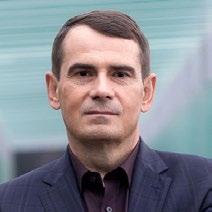

The situation beyond our eastern border has been significantly affecting the situation in the dairy industry, both in Poland and globally. The impact of the armed conflict has been perceptible both in professional and private life. A part of our volume sup plied to the Ukrainian market had to be relocated elsewhere. For several months, we have been facing constant increases in pri ce of raw materials, milk, cream, fuel, gas, energy, which significantly translates to our cooperation with contractors. Customers are distanced to conclusion of long-term contracts, prices are confirmed no earlier than a month before the implementation of deliveries, and we are often forced to incre ase prices during the term of the contract. The market is very unstable, unpredictable, and the situation is rather unlikely to impro ve by the end of the year.
An unquestionable success of our exports is its large share in the total turnover of the company, comprising approx. 30-35%. We are expanding our portfolio, addressing the needs of consumers in many countries, and we gain new outlet markets. The interest in the colourful woman from Łowicz remains upheld and the products bearing her like ness enjoy much popularity, especially on the Chinese market where we have managed to develop fruitful, trust-based cooperation. We actively participate in many fair events worldwide, recording large increases in the numbers of visitors after a time of increased restrictions due to the pandemic.


 National Poultry Council – Chamber of Commerce
National Poultry Council – Chamber of Commerce
Poland is the largest poultry producer in the EU. According to the EC, the share of Poland in the EU poultry production in 2021 was 19.1%. The poultry industry was among the fastest-developing sectors in Poland, both in the area of agriculture and food processing. The value of the do mestic poultry production between 2004 and 2021 grew at an average annual rate of 7.8% in comparison with 4.0% annu ally for the entire agricultural production. What contributed to the development of the market was both the increasing exports of poultry and the growing internal con sumption. The development of production in Poland, especially with regard to broil er chicken, was possible due to the high price competitiveness of Polish products in relation to their quality and the growing demand at home and on foreign markets. The high production competitiveness was due to labour costs, still lower than in other EU countries, as well as a strong level of production concentration and integration, which is decisive for efficiency.
The year of 2021 brought a slump to the upward trend – the domestic poultry produc tion has recorded the first slight drop since 2004. So far, the Polish poultry market has been characterized by large resistance to cri ses. However, the overlap between two un favourable factors, i.e. the drawn-out down turn on the market of live poultry, caused largely by the pandemic of COVID-19 and avian flu, contributed to limitation of chick placements. The drop in production in 2021 was probably transitional. Over the first five months of 2022, the Polish exports of poul try meat and offal in terms of mass of goods grew by 5.2% y/y.

High uncertainty on global markets causes increased interest in Polish poultry meat. This August, Japan has decided to introduce regionalization in view of the presence of avian flu; this decision has en abled the launch of exports to this country. Moreover, there are advanced talks in prog ress, which should allow for even broader presence of Polish poultry meat on many markets in the upcoming months.
Emil Dzianok Trade Director Jawo
The last two years have been a difficult and very unpredictable time for the sector. Several years ago, we have decided to diver sify our business slightly in terms of direc tions or channels of sales. Concerning the strategy, we treat each part of the business completely separately, rather than as a part of a bigger picture. This has allowed us, among other things, to make more relevant decisions.
In the catering channel, we have most ly cooperated with institutional customers – such as schools, kindergartens, etc. Cur rently, on the other hand, we cooperate with hotels and restaurants. Our coopera tion with distributors from those segments are completely different. In exports, a slight change of our strategy allowed us to open new sale directions.
The first measurable effects of such changes coincided with the pandemic. Thus, among other things, despite the lockdown on the catering sector which comprises a large share of our company, we managed to achieve sales growth utiliz ing the remaining resources. We ended the year of 2021 with sales growth amounting to 115.5% in relation to the previous year.
We are also steadily increasing our mar ket share – according to the latest CMR surveys, at retail stores up to 2,500 m2, it amounts to 30.1% in terms of value.
According to our prediction, the present times are less favourable due to their unpre dictability. The growing costs of ongoing operations, especially the surge in prices of raw materials, raise our deep concerns.
We are at the final phase of one of the greatest investments in our history, which will allow us to increase our production ca pacities and also to debut new product ver sions or new assortment lines. We hope a part of the solutions we propose, while not exactly innovative, has been unprecedented in our category so far.
Konrad Golczak President EWA KrotoszynThe confectionery market in Poland is a centralized one, with a few large players acco unting for more than a half of its value. The refore, challenges are different for smaller play ers and for larger ones. The pandemic period has shown that people started paying more attention to product quality, which caused increased sales in the sector of premium con fectionery. On the other hand, the current po st-Covid period and the situation connected with the hostilities in Ukraine cause a range of negative connotations in the area of raw mate rial prices and purchasing power. Drastic price increases of utilities and basic raw materials, together with runaway inflation, bring incre ased production costs. These costs have to be finally borne by the final customer, yet every product has a critical price level. These factors adversely affect the industry which may record a drop in sales in the years to come due to the loss of purchasing power by the consumers.
A modern customer is a conscious custo mer. More and more people pay attention to product specifications on packages and cho ose them consciously. The issues of product quality, their naturalness and elimination of undesirable substances, including synthetic ones, are increasingly appealing to the final recipient. Unfortunately, the current situation, caused by high inflation, may reverse this trend. Apart from composition, the cost of a final product may become a decisive factor for its choice.
The company plans constant development, yet this depends on the market situation. We are very intensely developing the food sup plements and medicine production segment in which we intend to build Europe’s most modern production line next year, with fully digital operation.


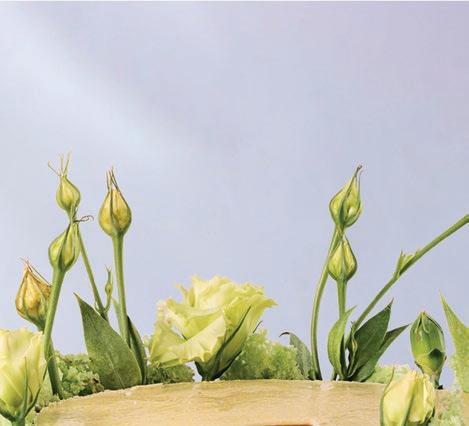
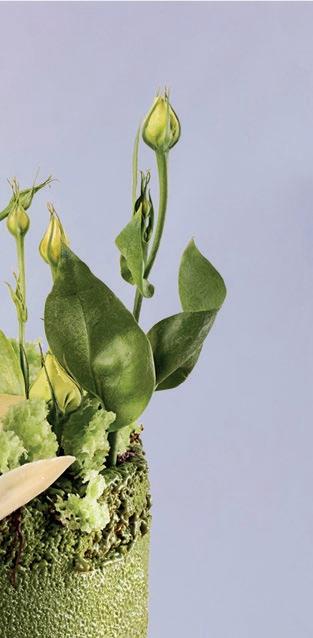
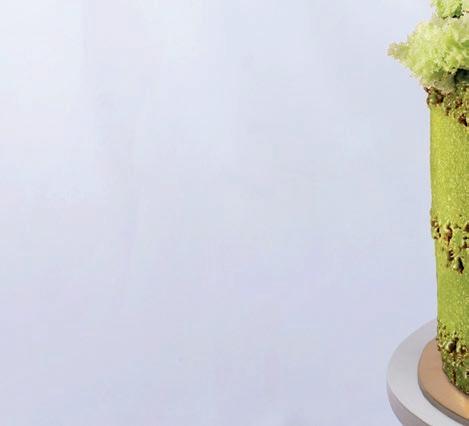








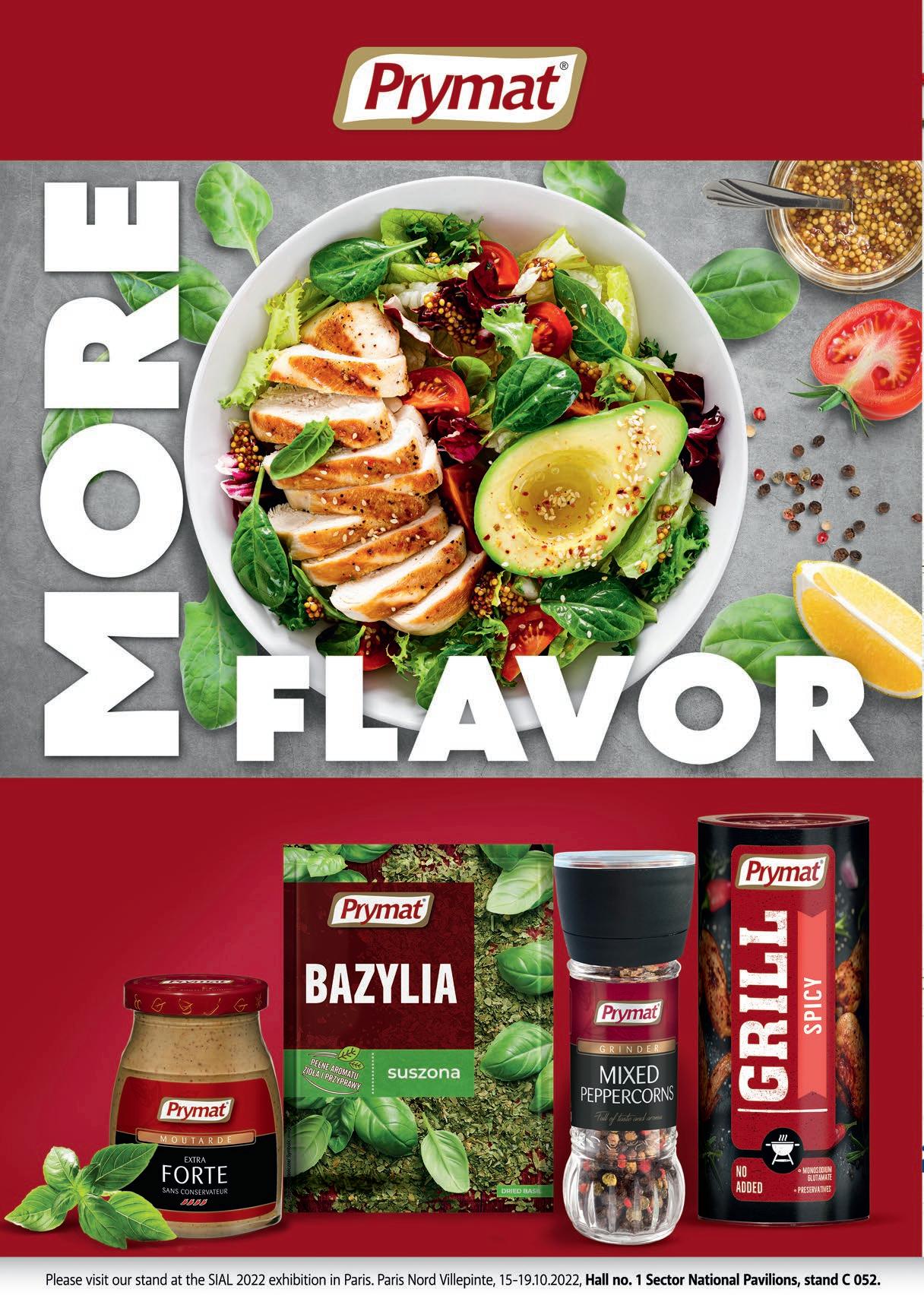
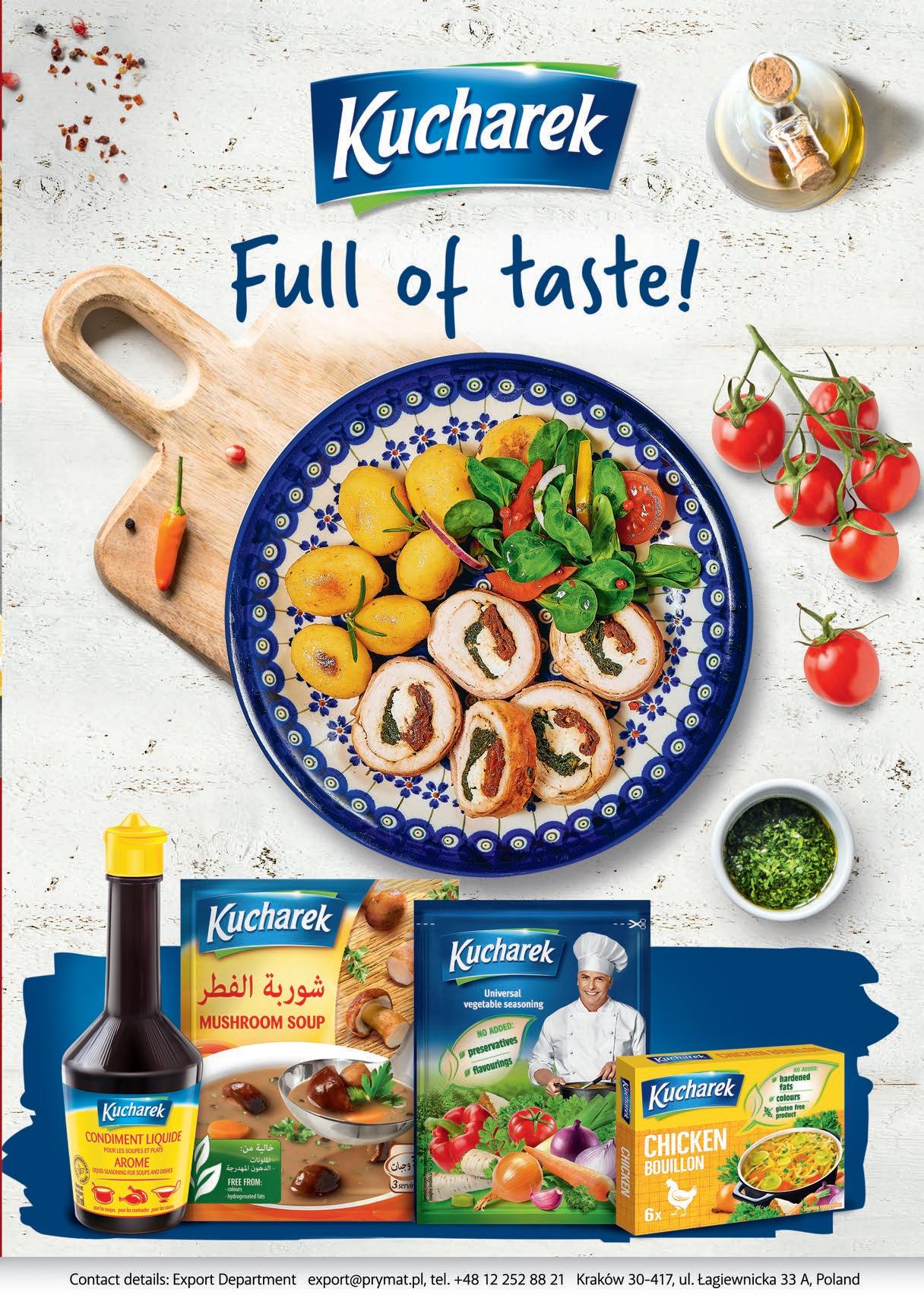
Mr. President, we congratulate you on your 60th anniversary, which is rare in our latitude, when it comes to business. What kind of ice cream did Poles eat more than half a century ago?
In 1960, ice cream was a seasonal product. The season began in May and ended in September.
So-called artisanal ice cream was mainly available on the market, although there were also products such as Snow White and Calypso, produced by dairies, state-owned plants. However, artisanal ice cream, based on milk and eggs, made up the vast majority.
When did ice cream become a year-round product?
Around the 1990s, when ice cream began to be imported from the West. After that, Western companies entered the Polish market, and several domestic companies were established, which began to produce so-called industrial ice cream. This was a completely new production.
We remember artisanal ice cream from our childhood days, which seems to us to be unusually good. Do you think they were indeed exceptional or, as it relates to our childhood, we are adding to their flavour?
It should be remembered that artisanal ice cream at that time was made on the fly, so fresh ice cream came out of the machine. They were not sold the next day, and were based on natural ingredients, namely milk, eggs, sugar and fruit. Therefore, the assortment was limited to 3-5 flavours. Especially in Poland, where we had no availability of other raw materials.
How difficult was it to do business under the previous system?
At that time we had a producer market, not a customer market. You sold what you produced. There was a problem getting basic raw materials. In my first factory, the ladies would come with cans of fresh milk on their backs, and when the season for a particular fruit camewe used it for production.
60 years on the Polish ice cream market is a significant anniversary. We talk about the history, challenges and future of the Polish confectionery industry with Zbigniew Grycan, the creator and owner of the “Grycan – Lody od Pokoleń” brand.

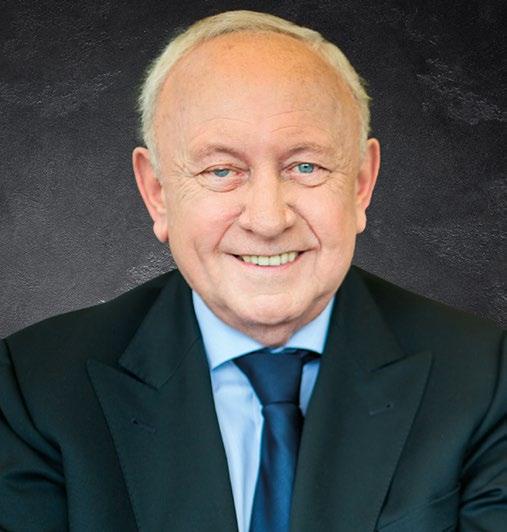
What happened when the necessary ingredients were in short supply?
Powdered milk was also used, but in order to get it you had to have connections at the pharmacy, because that’s where half-kilogram packages were sold.
Since we are talking about the 60th anniversary, let’s say that the tradition associated with the Grycan name is much longer.
It’s no coincidence that I got involved in this very industry. More than 100 years ago, my grandfather started making ice cream, my father also did it, and now I am doing it, together with my family. My daughters are involved in the company, with one of them, Margaret, working closely with us. This is the next generation to keep the family tradition alive.
Ice cream is a food product, but nevertheless always somehow distinct for many reasons. What in this distinctiveness is the greatest challenge, the greatest difficulty, and what in turn is the facilitation? The data shows that this is a product that more than 90% of Poles consume.
Ice cream is a tasty, sweet product, but not only that - it also has vitamins. It is not an unhealthy product. There are two schools - in Poland there is a belief that eating ice cream can give you a cold, while in the States colds are treated with ice cream. The main problem due to its nature is that ice cream melts, so the so-called „cold chain” must be maintained during production and distribution. The process of ice cream production begins with pasteurization to a temperature of about 88 or even 90 degrees. It is shock-cooled to 4 degrees, then frozen and re-cooled in a refrigeration tunnel at -40 or -35 degrees. Only after several stages does the ice cream go into the cold room, where the minimum temperature is about -20 degrees. Then we move on to distribution - to stores, ice cream stores, hotels
or restaurants. So the time from the beginning of production to distribution is very long.
In 2021, revenues of the ice cream industry in Poland grew by 24%, and as we look at the period of the last 6 years, it has almost doubled. EBITDA margin in 2021 increased by 4 p.p. to nearly 14%. Ice cream is one of the most profitable industries in the food industry in Poland, but was 2021 actually a good year, or was it specific, and what is the reason for
It was specific and it was good, although not for everyone. In the ice cream industry there is a division between impulse ice cream, and family ice cream. Ice cream shops or cafes also have ice cream in their offers. Our company is the largest producer of premium family ice cream, but we also have the largest chain of ice cream shops and cafes, where ice cream is sold by the scoop. So the pandemic restrictions also affected our business. Masks had to be worn, making it impossible to consume. Shopping malls, where most of our outlets are located, were closed. So we were a bit disadvantaged and were not among those who achieved good results. It should also be remembered that on the Polish market in the ice cream business, discount stores currently hold more than 50% of the market, which in turn have their own brands. Also, production is very large. We have modern plants in Poland, with good capacities, but producing so-called foreign brands. So some have come out ahead, while others, including us, have suffered losses.
As we look to 2021, the volume of ice cream exports from Poland increased by 17%, to 112,000 tons. Over the past five years, it has increased by 124%. In terms of value, it looks even more impressive, as we have an increase of 22% and 168%, respectively. We export mainly to mature European markets, to the European Union 188% of the volume, but the list of contacts also includes exotic countries on all continents such as Colombia, the United Arab Emirates, Israel and Gambia. What makes ice cream from Poland such an export success?
Polish food in general is very well received in the world. We don’t use a lot of chemicals, we produce using traditional methods, but we are also competitive in terms of price, because, as I mentioned earlier, we have modern plants with large capacities. On the other hand, it should be remembered that we also produce a lot of foreign brands that are outsourced in Poland.
It was after 1990. In the 1980s there was still no way to export. At that time it was too difficult to get raw materials, the main struggle was to produce at all.
The average consumer in Poland consumes 5.5 kg of ice cream per year, which is far less than the inhabitants of Western Europe, Scandinavia or the USA. Belgians have a result of 12 kg, Swedes 6 kg, and in the United States consumption is almost 4 times higher than in Poland. What could determine the growth of this industry in Poland?
According to the first quantitative studies, the result was only 3.5 liters, so the current 5.5 kg is not small at all. I would like to point out at this point that usually the data for ice cream is just given in liters, because the conversion rate to kilograms for different manufacturers is different. I will immodestly say that in our case, 1 liter weighs about 70-80 dkg, while it is often about 45-50 dkg. But back to the question -– this industry is growing. The availability of ice cream is very wide, but as Poles we are not yet in the habit of reaching for it often in the store. In the States, the approach to these products is completely different, as can be seen, among other things, in American movies, where a box of ice cream is a cure-all. In our country, there is a belief that ice cream is consumed only in the summer. It would be advisable to change this attitude, as it is a great dessert also in the other months of the year.
Won’t there be such an unpleasant clash with the ice cream industry hitting a brick wall, because habits are also thinking about as little sugar or fat as possible. Won’t these new consumer habits limit the development of the industry?
Our company is very innovative by virtue of the fact that we were the first in Poland to introduce such a large assortment. We offer new flavours to consumers all the time, many of which we have created on the Polish market. Some are accepted, some are not, but it is already quite a lot more than 100 proposals. On the other hand, we have the opportunity to build a direct relationship with the customer, and we see on an ongoing basis which flavours people are more willing to buy. So time and more promotions are needed. People need to reach for ice cream not only in the summer, although it is known that the weather is the main factor.
What kind of ice cream does consumer Zbigniew Grycan like the most?

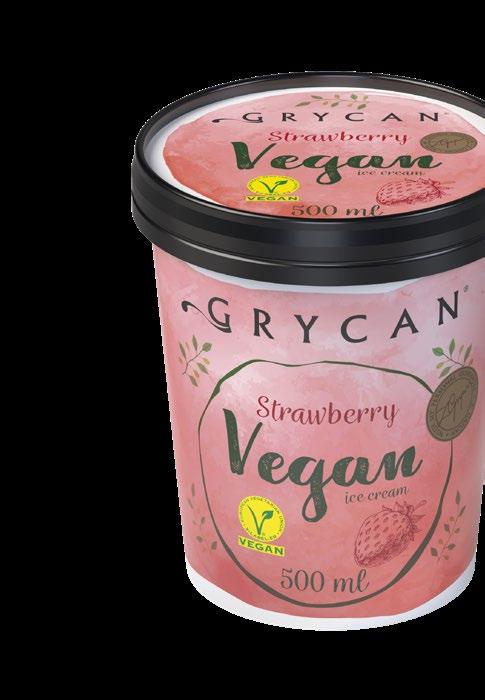
Because of my age, though not only, I eat ice cream that I used to eat in my childhood. And it’s not just me - vanilla, cream, chocolate and strawberry ice cream, i.e. the classics, are produced and sold the most. Of course, there are many other flavours that I enjoy eating, but I like the traditional ones best.
Thank you.
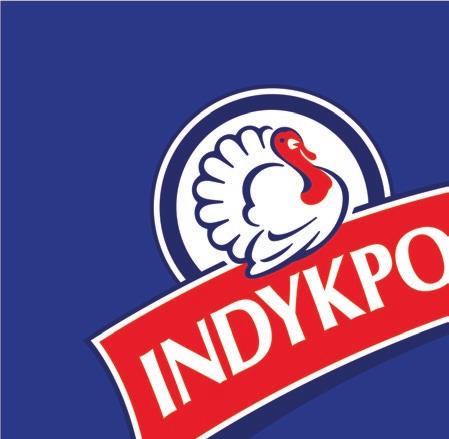
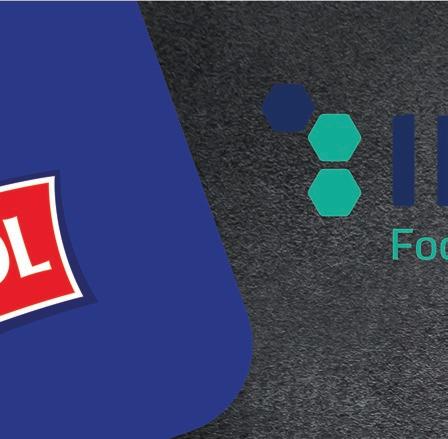
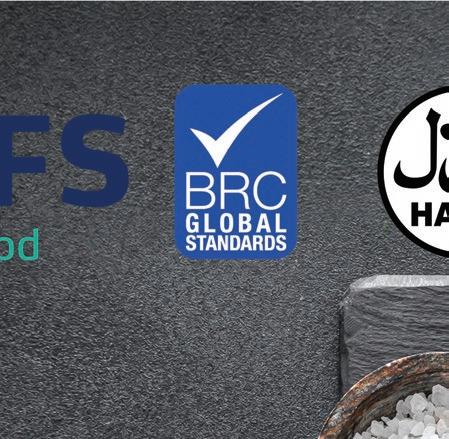

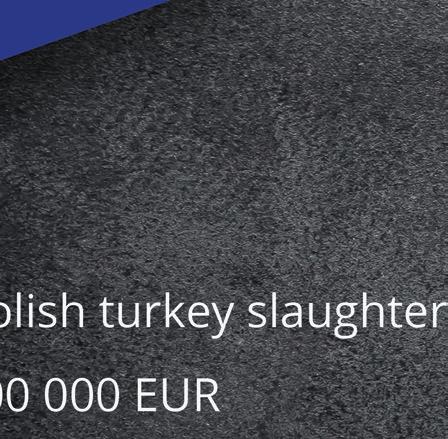
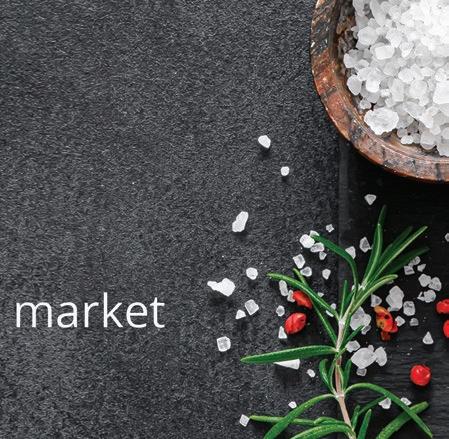
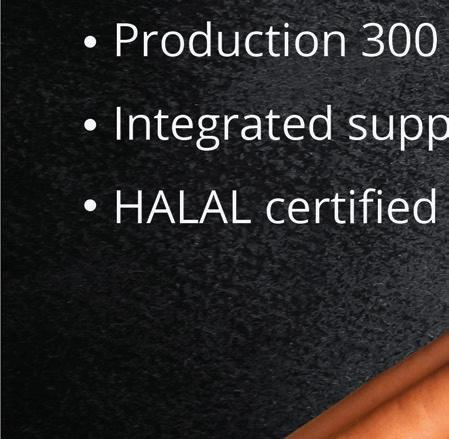
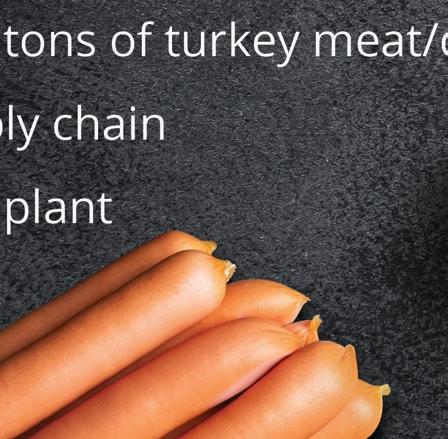

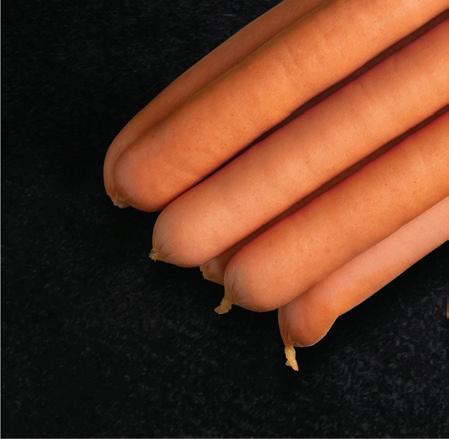
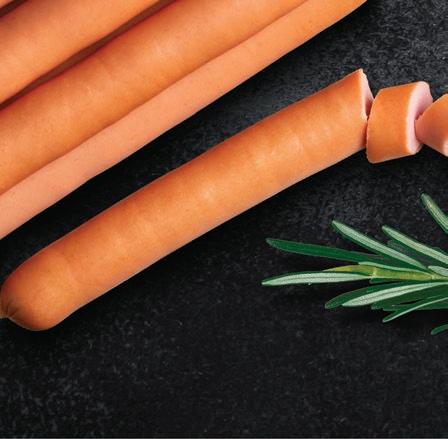


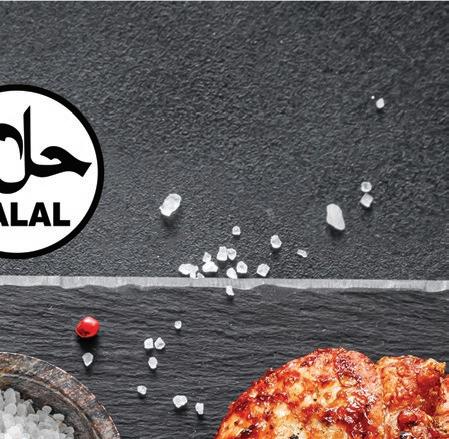



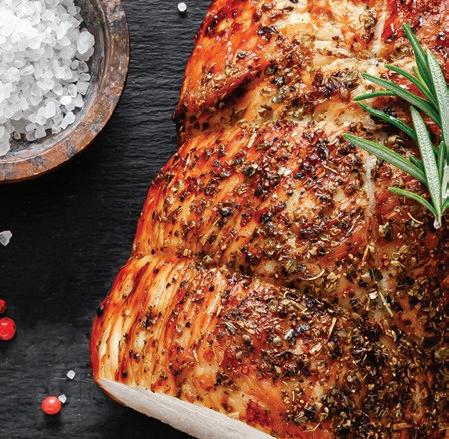
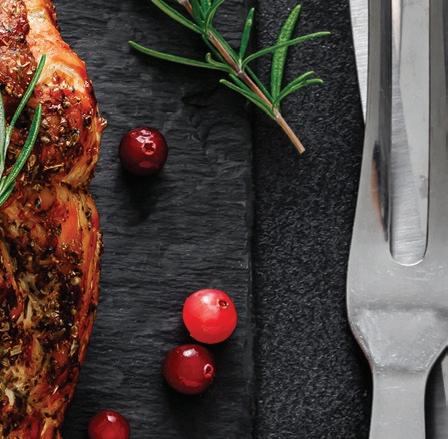






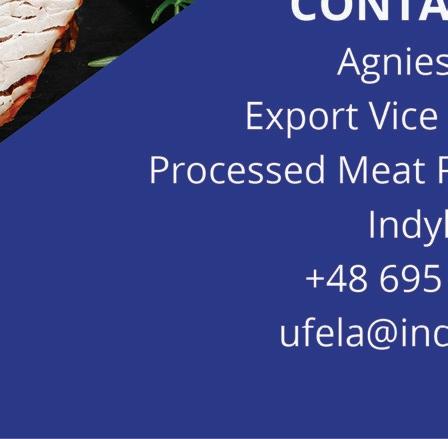
16 Wiejska Street 37-100 Łańcut, Poland sales@argosweets.pl www.argosweets.pl
Argo is a Polish, family-run business that has been producing tasty and healthy sweets for 30 years now. The high quality of products is continuously being ensured since 1992. Currently, Argo is improving its product portfolio by adding more and more unique items in order to satisfy every con sumer’s needs.
The offer consists not only of tradi tional lollipops, juicy bubble gum lollipops, both hard and filled candies, but also an array of handmade products such as Eas ter lambs, Christmas tree icicles, or Valen tine’s lollipops “Hot Hearts”. The company does not forget about milk and chocolate connoisseurs with delicious collection of Choco Jello sweets.
Argo’s products are available in the ma jority of European countries as well as out side the continent with International Food Standard (IFS) certificate on a higher level.
48 Gromadzka Street 05-504 Henryków-Urocze, Poland Export Department: export@bogutti.com +48 603 956 466, +48 601 704 404, +48 783 956 466 Internal Sales Dep.: zamowienia@bogutti.com www.bogutti.com
Bogutti is a family company from Po land which specialises in manufacturing high-quality cookies and fudges. The company is thriving and expanding into new markets on many continents.
Bogutti owns brands La Gustosa, Weeksy, Tweett, Choco Gutti, ChocoFit, Cookies in American Style, Next, Free and Bogutti Fudges.
It’s also the significant supplier for re tail chains, both in Poland and abroad. The products are valued for their quality, impeccable flavours and also for being ko sher and halal.

More information at bogutti.com
Brand Distribution Group is an interna tional distribution group, which has been actively operating in the FMCG market for 30 years. It specializes in sourcing and dis tributing high-quality food and non-food brands. It cooperates with international and local retail chains and manufacturers all over the world. It operates based on its own stocks, modern technology and sales offices located in Poland, Spain, Great Brit ain, Germany, and Singapore. It employs nearly 200 people and communicates in 16 languages. It creates a modern organi zation providing its partners with a com prehensive product distribution service, security of transactions and continuity of logistics processes all over the world.

23 Władysława Grabskiego Street 32-640 Zator, Poland Export Department: +48 33 870 35 71 ext. 106 export@eurowafel.pl www.eurowafel.pl
Eurowafel is the producer of different sort of wafers. Since its establishment in 1984, it has developed over the years by in vesting in modern machines and innovative technologies.
On the one hand, we base our produc tion on traditional recipes but on the oth er, we use innovative solutions to develop new productsas a response to constantly changing market expectations.

Eurowafel serves its Clients with high quality products by ensuring product safety according to IFS Certificate.
We use the best flour and only simple and verified ingredients. Combining tradi tion with the latest researches on health food, we implement new, light and healthly products that can be served in many ways.
25 Serwituty Street 02-233 Warsaw, Poland +48 22 343 98 70 sales@ewabis.com.pl www.ewabis.com.pl
Ewa Bis, one of the leaders of Polish food exports for over 30 years.
We are also a part of the Ewa Bis Group, associating 14 companies around the world. We cooperates with partners from over 60 countries from five continents. We have been cooperating with large international manufacturers, distributors, retail chains, wholesalers and B2B partners.
Our offer consists of a wide range of con ventional and organic products. In our portfo lio you can find the most globally recognized FMCG brands such as: Procter and Gamble, Henkel, Unilever, Mondelez, Nestle; Dairy products; Fresh fruit and vegetables; Frozen food; Fresh and frozen meat;Beverages, NFC juices, juice concentrates and puree.
3 Jesienna Street 10-370 Olsztyn, Poland +48 695 893 311 www.indykpol.pl
Indykpol is a leader in the Polish turkey market and in Europe it ranks among the Top 5 largest companies.
For many years we supply the biggest domestic & European food chains like Au chan, Aldi, Kaufland, Carrefour, Tesco, Lidl, Iceland, Morrisons, ATB, Lulu, Al Maya, Viva Supermarket,
In our company we have implemented all major quality certificates as: IFS, BRC, QS. Additionally we have HALAL CERTIFI CATION and we are ESMA approved.
In our product portfolio you can find: Meat parts, hot dog sausages (chilled/fro zen), hams (cooked & smoked), fresh meat, pates, private label products per request.
3/5 Czackiego Street 00-043 Warsaw, Poland +48 22 828 23 89 krd-ig@krd-ig.pl www.krd-ig.com.pl
(KRD-IG) is the largest poultry organisa tion in Poland. It associates over 100 mem bers from such fields as: farming, breeding, hatching, commercial production of poultry and eggs, processing and trade of poultry meat, its preparations and eggs, poultry feed production, related production, scien tific and educational activities associated with the poultry sector. Members of KRDIG have a nearly 70% share of the national market and a nearly 90% share of the export. KRD aims at developing and modernizing the Polish poultry industry, at protecting the in terests of poultry farmers and producers and poultry meat processors, their integration, representing the national poultry industry before national and non-governmental orga nizati ons.
15a Podkarpacka Street 35-082 Rzeszów, Poland +48 17 875 30 10 biuro@makarony.pl www.makarony.pl

“Makarony Polskie S.A.” is one of the leading and dynamically growing pasta pro ducers in Poland, with long tradition and reach experience. The registered seat of the Company is located in Rzeszów, where as the production plants are in Rzeszów, Czestochowa and in Korpele.
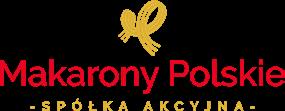
Meeting the expectations of consumers, Makarony Polskie SA offers a variety of ex truded and rolled pastas. The Company of fers pasta in various forms, produced from durum wheat flour or regular wheat flour. In its portfolio the Company has also products which reply to the health-promoting food trends, such as pasta made of rare spelt, buckwheat or rye flours and vegetable pasta manufactured from leguminous plants, such as chickpeas, red lentils, or green peas.
251 Rolnicza Street
Dziekanów Leśny 05-092 Łomianki, Poland maxpol@maxpol-targi.com.pl www.maxpol-targi.com.pl
Maxpol is a company with 30 years of experience in the exhibition industry.
Throughout this period, several tho usand exhibitors took part in the trade fairs organized by Maxpol. The company orga nizes fairs in Europe, Asia, North America, South America, Africa and even Austra lia. Maxpol designs and builds standard and custom stands, provides transport of display units, comprehensive logistic servi ces for fair participants and technical sup port during the fair. The company holds the title Ambassador of Polish Food Export.
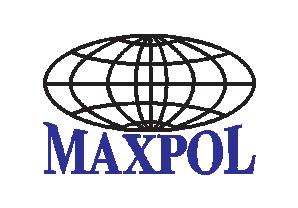
13 Elewatorska Street 19-203 Grajewo, Poland Export Department: +48 86 273 04 44 +48 86 273 04 80 export@mlekpol.com.pl www.mlekpol.com.pl
Dairy Cooperative MLEKPOL in Gra jewo is one of the biggest milk and dairy producers in Poland. It has been a leader on domestic dairy market for years and it is one of twenty largest dairy processors in Europe. In 2021 Mlekpol reached 2 billion liters per year in milk purchase. This equals to over 5.5 milion liters of milk per day sup plied by around 8500 farmers - members of the Cooperative. Its main product catego ries are UHT products, cheese, butter, milk and whey powders. Mlekpol’s products are made in 13 modern production plants. They are known by, among others, European, Af rican and Asian countries. Mlekpol’s export sales are growing systematically each year.
265A Katowicka Street 43-450 Ustroń, Poland +48 32 434 97 00 export@mokate.com.pl www.mokate.com
The MOKATE Group is a family busi ness established in 1900 and is comprised of several companies operating in Poland, Czech Republic, United Kingdom, Slovakia, Hungary, South Africa and Dubai which export their products to nearly all the co untries in the world.
The company has three production plants, in Ustroń (Poland), Żory (Poland) and Votice (Czech Republic). The turnover of Mokate is now over one Billion zloty per annum, with 60% of sales now originating in export markets. The company employs 1700 people all over the world.
The leading brands in the MOKATE port folio are: Mokate, Marilla, NY Coffee, Loyd, Minutka, Alpino and Grandma`s Tea.

3 Kolejowa Street 63-520 Grabów Nad Prosną, Poland +48 62 732 12 50 www.profi.pl www.pasztetdworski.pl www.jemyjemy.com
Nowadays, when we’re all in a con stant rush, using ready products and meals makes our life easier. And we do our best to make this life additionally tastier! Inspired by the growing need for using good quality products, we turn to simple ingredients and tastes which are well-known and well-liked across Poland and abroad. It is they – Polish and international dishes – who inspire us in our everyday culinary quests.
JemyJemy is a brand of delicious soups that you can prepare in a few minutes. Just pour them into a dish, heat them up and they are ready to eat – it’s so simple! The soups are made of carefully selected natu ral ingredients that we know from our kitch ens in Polish and foreign homes.
14 Chlebowa Street 44-337 Jastrzebie-Zdrój, Poland
+48 12 252 88 21 export@prymat.pl www.prymatgroup.pl
Att. Natalia Wojas (Export Director)
Prymat Group is the leading spice and seasoning producer in Poland with several factories and over 1000 employees. The company produces processed, wet and dry vegetables and mustards for supermarket chains, HoReCa and B2B. It works in accor dance with the highest quality standards: IFS, HACCP and Halal.
R&D and Quality Department develop products that meet the needs and require ments of consumers. All are compliant with standards and competitive in terms of fla vour combinations and quality. Appropriate physical and chemical analyses, including microbiological and organoleptic tests of both raw ingredients and finished products are carried out in our testing laboratory.
48 Szarych Szeregów Street
60-462 Poznan, Poland

+48 61 656 60 95
export@terravita.pl www.terravita.pl www.terravitapro.pl
Karolew 18 05-652 Pniewy, Poland +48 48 668 67 37 transport@transad.pl www.transad.pl
Terravita is a Polish brand, that pas sionately creates chocolate and semi-fin ished products based on the best cocoa beans and sophisticated ingredients. For years, we have been pleased to discover the sweet treasures of the earth for you.
Working for us is a constant search for fresh ideas and flavors. All our products have one task - to awaken someone’s love for chocolate every day. Regardless of whether it is a confectioner to whom we supply semi-finished confectionery prod ucts or kids who try our bar for the first time - we try the same because the choc olate must be perfect every time.
The TRANSAD company was estab lished in 2006, and since then it has been taking care to meet the requirements of customers. Thanks to the experience the company gained over the years in the TSL industry and is focusing on high quality and professionalism. For many years it has been working on effects that are visible now. The company is able to adapt to almost every customer by offering the highest quality of services and an individual approach. It makes sure that the fleet is always modern and meets the highest standards. It is con stantly supplemented with various types of vehicles. TRANSAD offers each client re frigerated transport at the highest level, ad justing the type to individual requirements.
10 Krakowska Avenue 05-555 Tarczyn, Poland +48 22 727 00 01 info@turka.pl www.turka.pl
„TURKA Tortilla & Breads is a place where the flour turns into love” – TURKA is recognized by this original slogan. TURKA, as one of the biggest producers of torti llas in Europe, offers its products not only in its continent but also in the USA, Africa and the Near East markets. Among its cus tomers are the biggest supermarket chains and HORECA sector. For many years the company produced high quality products keeping precise quality control which is approved by numerous certifications like ISO 22000, IFS and Vegan. TURKA con stantly improves the technical modern lev el of factories and its skilled staff is work ing on introducing new types of products to anticipate customers’ expectations.

78 Podgorna Street 87-300 Brodnica, Poland +48 56 493 28 51 export@vobro.pl www.vobro.pl
VOBRO was established in 1986. The com pany employs over 400 people, most of them are long-term employees who present vast experi ence and have been associated with the produc tion of sweets form many years.
The VOBRO company is known preliminary for its production of chocolate sweets - including choc olate pralines. FRUTTI DI MARE (seafood-shaped pralines), as well as CHERRY PASSION and LOVE & CHERRY (cherry pralines in chocolate) brands are products known to chocolate praline consumers in markets around the world. A large part of the company`s products are chocolate candies and chocolate bars – including the very popular TRU FLA and JAMAJKA brands. For several years, the company has also been investing in other types of sweets: jellies, including new brand JELLY DOT and different formats of bars. The VOBRO brand is a leader in many markets in term of the occasional products offer, i.e. products bought by consumers as calendar occassions (Valentine`s Day, Mother`s Day, Christmas, etc.).

Opolska 22 40-084 Katowice, Poland Export Director: +48 784 639 222 owczarek.hubert@duda.pl biuro@silesia.eu www.silesia.eu
Since 2017, our company has been part of the undisputed Polish leader in the meat industry, the Cedrob Group. Our area of activity perfectly fits the policy of the en tire group: Controlled Supply Chain at its penultimate link, processing.
Inspired by Taste. Drawing on this motto, we work to rid our customers and business partners of any doubt when se lecting cold cuts produced at our facilities. Our rich assortment appeals to various tastes: from aficionados of classic smoked meat to connoisseurs of traditional Polish sausages, pâtés, or galantines. Our port folio includes ready-made poultry Cedrob product line „Gotowe z półki”.
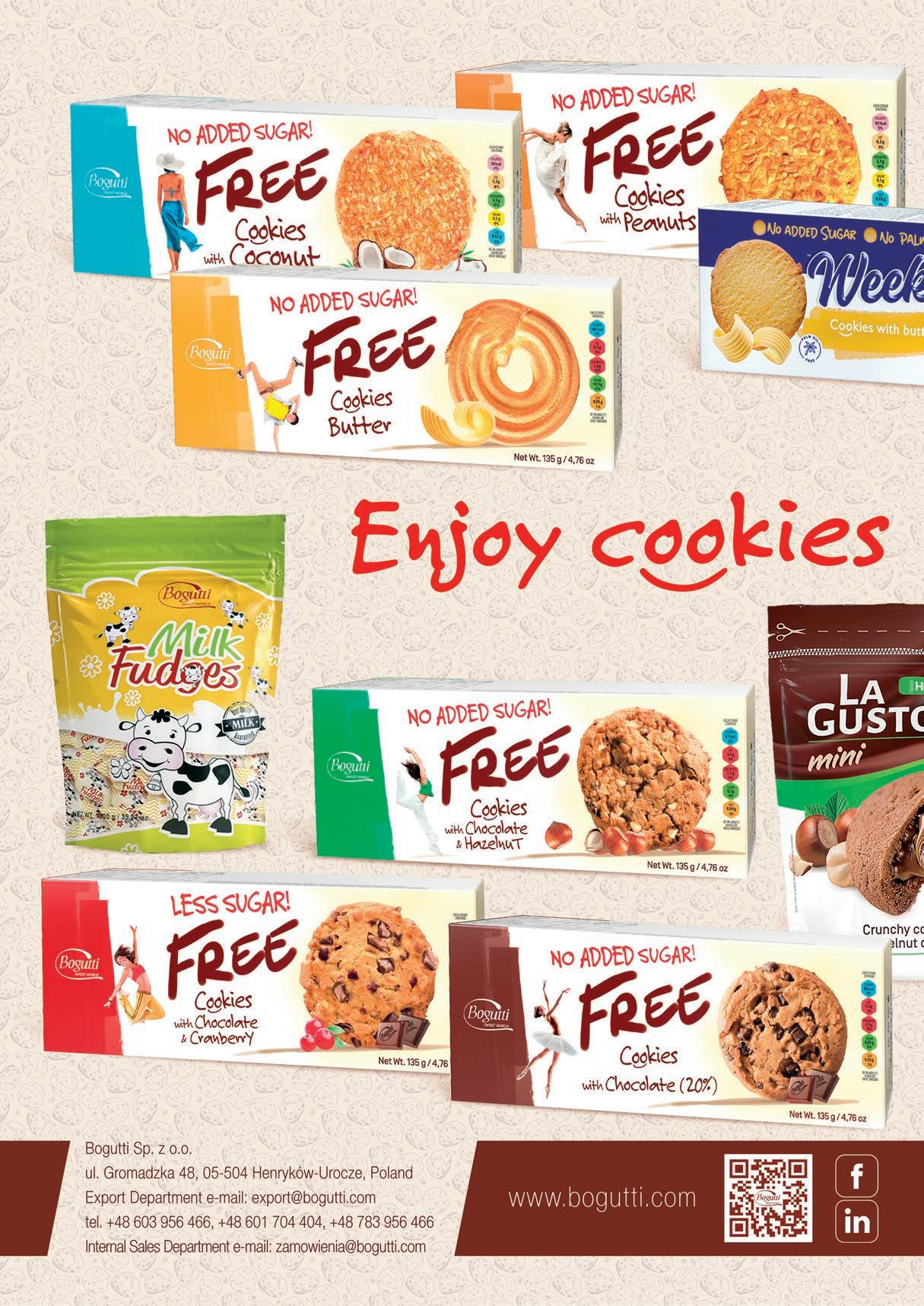



Producer: Vobro
Site: www.vobro.pl
Contact: export@vobro.pl
Marzipan Passion pralines are fancy sweets with a rich soul. Delicious dark chocolate envelops the marzipan filling, creating a hard-to-resist unique symphony of flavours. Every single praline is in hermetic flowpack wrapper Product is available in following formats: 180g gift format, 1kg bag and different bulk formats.

Producer: Vobro
Site: www.vobro.pl
Contact: export@vobro.pl
Gryzzzli, our bear-shaped chocolates are just one of a kind. These teddy bears full of sweetness have a magical power to attract ! Have a bite and enjoy the milky filling with grains of puffed rice. The unique sweetness of the chocolate bear will make you want to have it always with you. Every single praline is in hermetic flowpack wrapper Product is available in fol lowing formats: 200g bag, 1kg bag and different bulk formats.


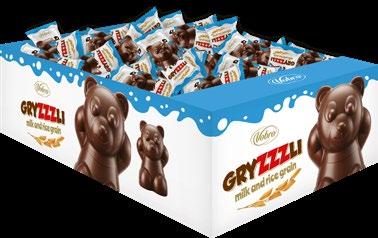
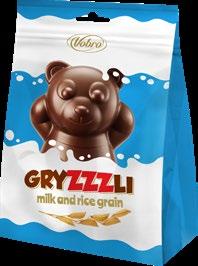
Producer: ZPH ARGO
Site: www.argosweets.pl
Contact: sales@argosweets.pl
Premium hard candy that is bursting with flavour. Packaged in a heavy-du ty vintage glass candy jar.

Beautiful colours, distinct shapes and unique textures make this a flavour ful, elegant gift or perfect item for home. This deluxe jar contains a delicious medley of fruit sweets: juicy lemon, orange and grape with crispy apple and raspberry.
For confectionery connoisseurs who want to savour the extraordinary. Fruity Selection – Pleasure Shared.
Producer: ZPH ARGO
Site: www.argosweets.pl
Contact: sales@argosweets.pl
The new face of lollipops! Feel the excitement of discovering a third sur prising flavour!
Skillz Twister is a combination of two delicious flavours that together create a completely new taste. A unique experience and loads of fun are guaranteed!
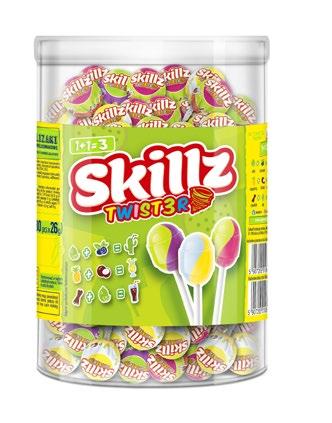
Lollipops in an XXL version (26g) let the crazy tasteful pleasure last longer!
Available in three cool variants.
Producer: Bogutti
Site: www.bogutti.com
Contact: zamowienia@bogutti.com
Crunchy cookies with chocolate, hazelnut cream or apple filling. 30% cream in one cookie; 16% chocolate in chocolate cookies; Small cookies (11 g); High-quality ingredients; Doypack packaging – fresh lon ger; 250 g containing 22 cookies.
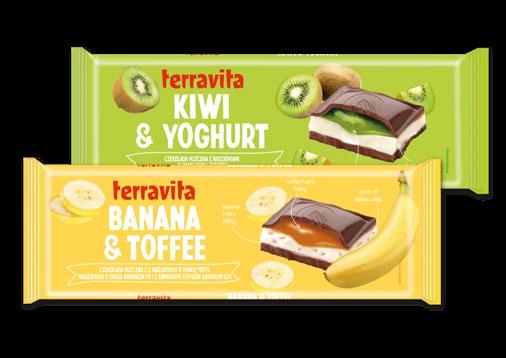

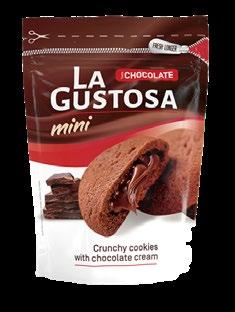


Producer: Bogutti
Site: www.bogutti.com
Contact: zamowienia@bogutti.com
Crunchy cookies with no added sugar and palm oil. Very crunchy; No sugar; No palm oil; 20% butter in butter cookies; 20% no sugar cho colate in chocolate cookies; 9,5% coconut in coconut cookies; Highquality ingredients; 120 g containing 9 cookies.
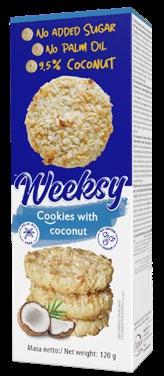
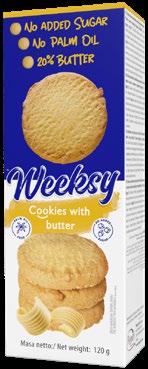
Producer: TERRAVITA
Site: www.terravita.pl
Contact: export@terravita.pl
Chocolate 235g are the newest of Terravita large formats of chocolate, designed especially for sharing!

MILK CHOCOLATE KIWI & YOGURT is one of two new flavors in this line, delicate milk chocolate with two layers of filling: creamy yogurt and refreshing kiwi.
MILK CHOCOLATE BANANA & TOFFEE inspired by British dessert Banoffee pie: delicate milk chocolate with two layers of filling and crunchy banana pieces.
Producer: TERRAVITA
Site: www.terravita.pl
Contact: export@terravita.pl
Chocolate couverture 56.5% cocoa Bellaria is a product for professio nal use with increased cocoa fat content (34%), intended for coating confectionery, bakery, and confectionery products. It does not contain vegetable fats or E476 emulsifiers. Thanks to the increased fluidity, apart from the coating, it is also perfect for forming pralines or tablets, and as an ingredient in chocolate mousses, gana ches, and cream masses for cakes and roulades.

Producer: EUROWAFEL
Site: www.eurowafel.pl
Contact: export@eurowafel.pl
Moonsy is a novelty in snacks. Extra thin, non-fried full flavour crisps with no added preservatives. Moonsy are full of taste, satisfying all customers needs, healthier crisps for every occasion . Simple ingredients, no palm oil. Reach for Moonsy and experience the full flavour green onion, paprika and salt.

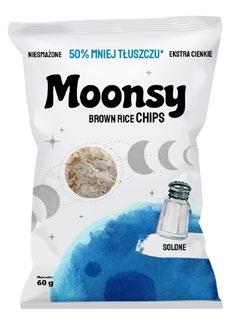
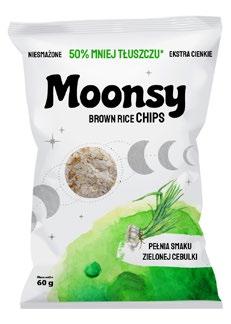
Producer: EUROWAFEL
Site: www.eurowafel.pl
Contact: export@eurowafel.pl
Corn, Rice and Potatoes Traingles are conventional products in Eurowafel portfolio. So taste, so healthy - only simple ingredients. Popped triangles, gluten free, natural light snack for vegan with excellent taste. In line with current trends and consumer needs, Triangles don’t contain sugar, fat and preservatives.
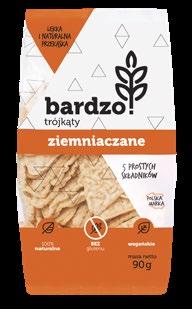
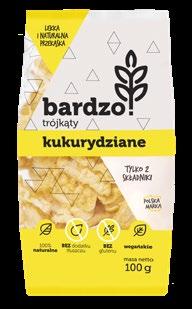
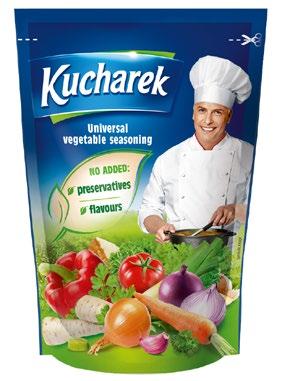
Producer: Prymat
Site: www.prymatgroup.pl
Contact: export@prymat.pl
Kucharek is a perfectly-balanced mixture of dried vegetables and spices which guarantees the best culinary effect: in soups, one-pot dishes, meat, fish, vegetable dishes or casseroles. Kucharek will also help enhance the flavour of sauces, dips, creams and all kinds of dressings. In line with current trends and consumer needs, Kucharek universal sea soning does not contain any preservatives or artificial flavourings.
Producer: Prymat
Site: www.prymatgroup.pl
Contact: export@prymat.pl
Ready spice mixes in tubes answer current trends. They enable us to ac cept any culinary challenge, whether we prepare dishes on the basis of trusted recipes or attempt culinary experiments. Thanks to the closed and comfortable tube, you can enjoy perfectly tasting dishes for even longer.
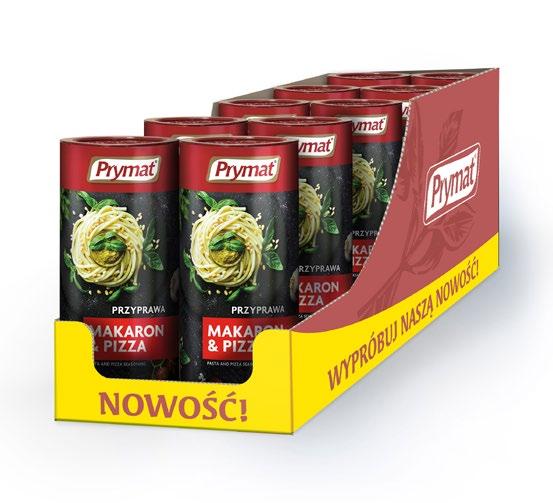
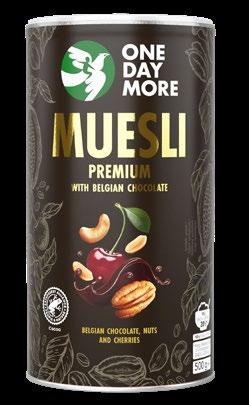
Distributor: Brand Distribution Group Site: www.bdgroup.eu Contact: contact@bdgroup.eu
Discover the surprising richness of the unique composition of Mues li Premium and the original composition of carefully selected flavours: velvety Belgian chocolate, crispy nuts in granola with cinnamon and delicious cherries with a deep aroma... Start your day in an exceptional way and taste carefully selected ingredients in harmony with nature!
Distributor: Brand Distribution Group
Site: www.bdgroup.eu
Contact: contact@bdgroup.eu
Pet Republic is a place where we nourish animals by providing them with healthy products based on original recipes. Grain-free and sugar -free food, containing up to 90% meat and products of animal origin in pieces of stuffing dipped in a delicate sauce. It does not contain artificial preservative or dyes. Enriched with minerals and vitamins that keep pets’ good health and great appearance.
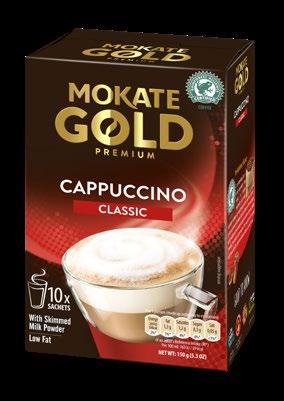
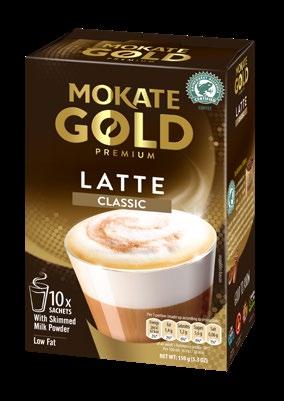
Producer: Mokate Site: www.mokate.com Contact: export@mokate.com.pl
Gold Premium range are the best known Frothy Coffees on the market, and loved by customers worldwide. Carefully selected ingredients with Rain forest Certified Coffee for top quality with a true love for the best coffees allow us to bring a range of delicious tasting frothy coffees.
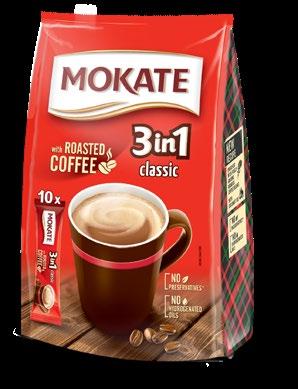

Producer: Mokate
Site: www.mokate.com
Contact: export@mokate.com.pl
Very convenient and quick to use both in and out of home. An excellent aroma, velvety flavour in convenient and quick to use format.

Producer: Profi Site: www.profi.pl
Contact: profi@profi.pl
The well-known and popular pâté by Profi – brand number 1 in Poland, debuted on store shelves in a convenient metal can. The new package means not only safety of storage and transport, but the new, larger weight – 160g. Pâté in metal cans is available in four versions: chicken pâté, with tomatoes, with paprika and with mushrooms.
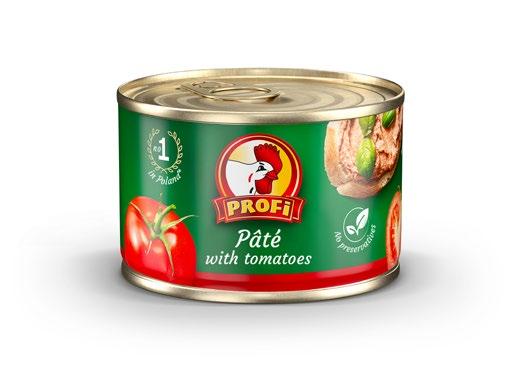
Producer: Profi Site: www.profi.pl
Contact: profi@profi.pl
Apart from pates in aluminium packaging, based on a traditional recipe, Profi offers also premium pates. They are just the thing for those with a more exquisite taste. A welcome addition to our product portfolio, bound to make superb quality lovers happy. Available in four variants each glu ten-free, 130 g.
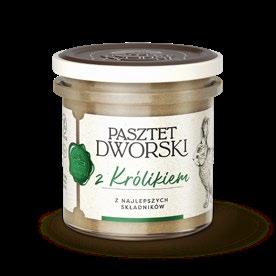

Producer: MAKARONY POLSKIE Site: www.makarony.pl
Contact: biuro@makarony.pl
Vegetable pasta made from legume is a portion of healthy vegetables, lots of valuable nutrients and a taste that will take over your heart. Red lentil pasta thanks to the copper content, which affects the proper functioning of the immune system and helps protect cells from oxidative stress. It is also great source of high protein content, which contributes to the growth and maintenance of muscle mass.
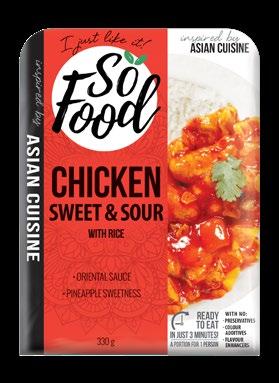
Producer: MAKARONY POLSKIE
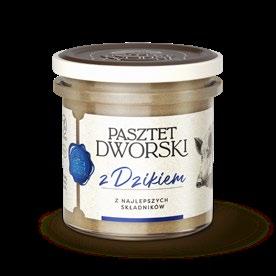
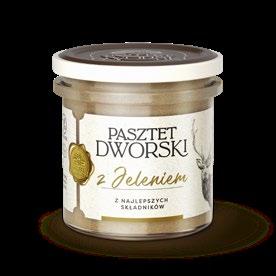
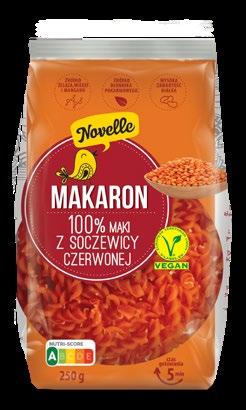
Site: www.makarony.pl
Contact: biuro@makarony.pl
Are you constantly in a hurry, you don’thave time for preparing a meal? So Food meals are ready in just 3 minutes! The oriental Asian taste guarantees a delicious dish. It is a combination of succulent, aromatic chicken with sweet pineapple, rice and sour sauce. Such a combination of taste is the essence of Asian cuisine.

Producer: Turka
Site: www.turka.pl
Contact: info@turka.pl
Tortilla is the brand we have created years ago to lead the sector with a special recipe and contains. Additionally, We are the first producer of 30cm with 80gr, 32cm and 35 cm tortillas in Europe. The highest quali ty, food security, hygiene standards are applied at our production sites.

Producer: Turka
Site: www.turka.pl
Contact: info@turka.pl
We offer fresh and frozen tortillas, which makes it an excellent base for the preparation of sandwiches (wraps), Quesadillas and other dishes. Range of our products includes different kinds of flavours and dimen sions. The market consists mostly of wheat and wholewheat products. Other than these products we offer our customers tomato, spinach, garlic, multigrain, corn, beetroot, vanilla and turmeric flavours.
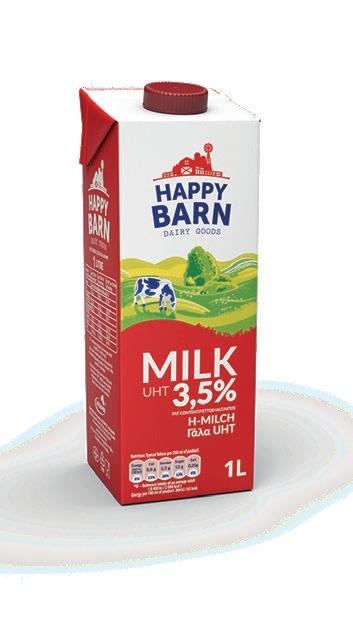
Producer: MLEKPOL
Site: www.mlekpol.com.pl
Contact: export@mlekpol.com.pl
Mozzarella is a cheese with a mild and delicate flavour. It is perfect for baking and, which is distinctive for it, after melting it becomes flexible and very stretchy, which makes it the most popular choice for making pizza. In combination with tomato sauce and basil leaves, it creates the classic taste of a timeless margherita, but it also builds a delicious com position with other ingredients. Mozzarella can be used in many dishes, such as casseroles, lasagne and pasta. Mozzarella from Mlekpol pro vides a unique Italian taste, because the product is made of the highest quality Polish milk from cows grazed in the cleanest regions of Poland. It is also an excellent source of calcium, valuable vitamins and minerals.
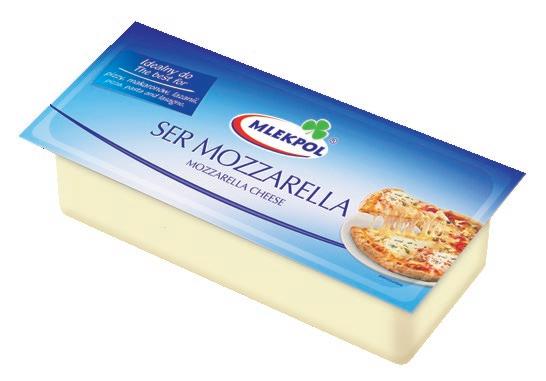
Producer: MLEKPOL
Site: www.mlekpol.com.pl
Contact: export@mlekpol.com.pl
UHT Happy Barn 3.5% milk comes from cows grazed on the cleanest Polish meadows. Mlekpol is a precursor of introducing UHT milk to the Polish market. It is distinguished by a long shelf life, a guarantee of safety and convenience of use. Heat treatment of milk destroys mi croorganisms, makes the product safe and preserves nutritional valu es, including vitamins. It is an excellent source of calcium and protein. Thanks to verified technology and modern packaging, it stays fresh for a long time, keeping its taste.
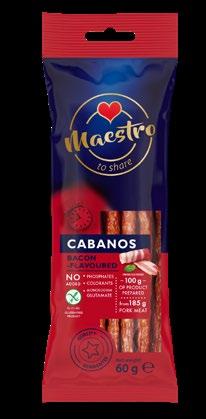
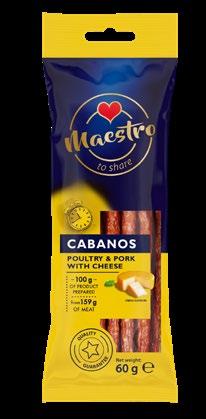
Producer: ZM Silesia
Site: www.silesia.eu
Contact: owczarek.hubert@duda.pl
Ease of preparation, convenience and time are the most important deter minants of the popularity of convenience food. One of the most-chosen products from our ready-meals offer is Cordob Bleu - a delicate cutlet with ham and cheese. The meat used for its production comes from Polish chicken farms, controlled at every stage - “from farm to fork”. Thanks to the full control of the raw material, we can offer the highest quality product that can be quickly and easily prepared for a family dinner. It is enough to heat it in a pan or in the oven.
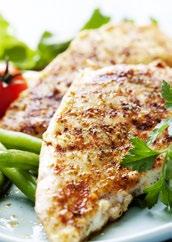
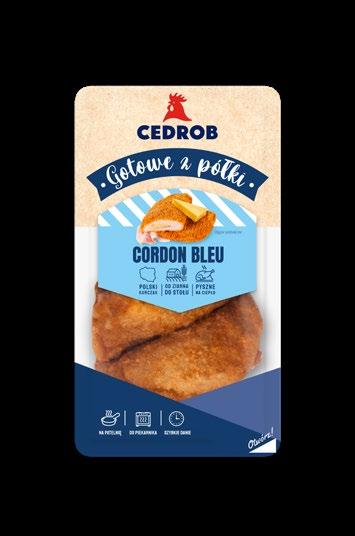
Producer: ZM Silesia
Site: www.silesia.eu
Contact: owczarek.hubert@duda.pl
Perfectly dried, crispy and handy kabanos sausages are a great snack be tween meals. Maestro kabanos sausages mean not only excellent quality guaranteed by a high meat content, but also a certainty of taste guaran teed by experience and tradition. As an ambient product that does not require refrigeration - kabanos sausages are perfect as a handy snack, easy to take to school, work or on a trip. They are a perfect complement to the cold cuts board or a snack buffet. They are great for sharing - after all, we share what’s best.

Producer: Indykpol
Site: www.indykpol.pl
Contact: Agnieszka Ufel
Export Vice Director
Division of Processed Meat Products
695
An innovative meat product in mousse form – Turkey Mousse – that com bines the following features: light texture, smooth, spreadable; can be scooped up with bread, pita bread, cracker & consume; delicious taste, smell, source of protein.
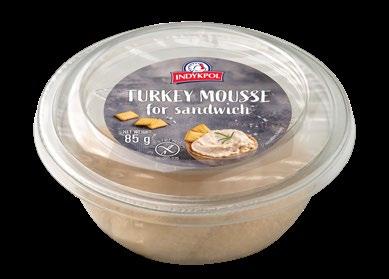
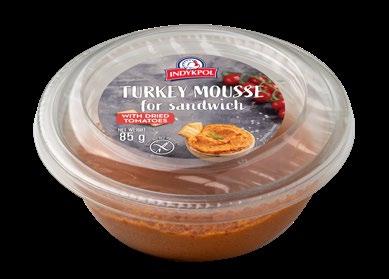

Organization: National Poultry Council
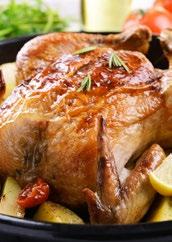
Site: www.krd-ig.com.pl
Contact: krd-ig@krd-ig.pl
Polish poultry meat can successfully compete with the offer of world lead ers by: competitive pricing – which you can expect from Polish producers and which becomes the key factor, when the product is of impeccable quality in relation to the price; exceptional quality and taste, resulting from full control of the production process “from farm to fork”; wide selection of poultry products: chickens, turkeys, geese, ducks and other types of poultry, offered as fresh meat: carcasses and different cuts (available also as frozen meat) and offal and preparations.
Maxpol Sp. z o.o. offers:
stands for individual exhibitors
for national groups,

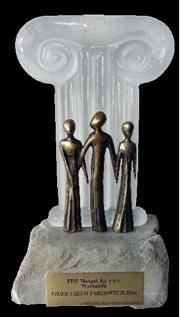
and assembling stands and stands
forwarding and
SALIMA TECHNOLOGY Czech Republic Brno 07-09.02.2023
ALIMENTARIA Portugal Lisbon 12-14.02.2023
BIOFACH Germany Nuremberg 14-17.02.2023
WINTER FANCY FOOD SHOW USA Las Vegas 15-17.02.2023
PRIVATE LABEL TRADE SHOW Japan Tokio 15-18.02.2023
BIOFACH JAPAN Japan Tokio 03.2023
NATURAL PRODUCTS EXPO WEST USA Anaheim 07-11.03.2023 EXPO ANTAD & ALIMENTARIA MÉXICO Mexico Guadalajara 17-19.03.2023

PROWEIN Germany Dusseldorf 19-21.03.2023
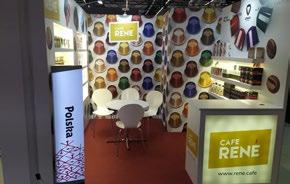

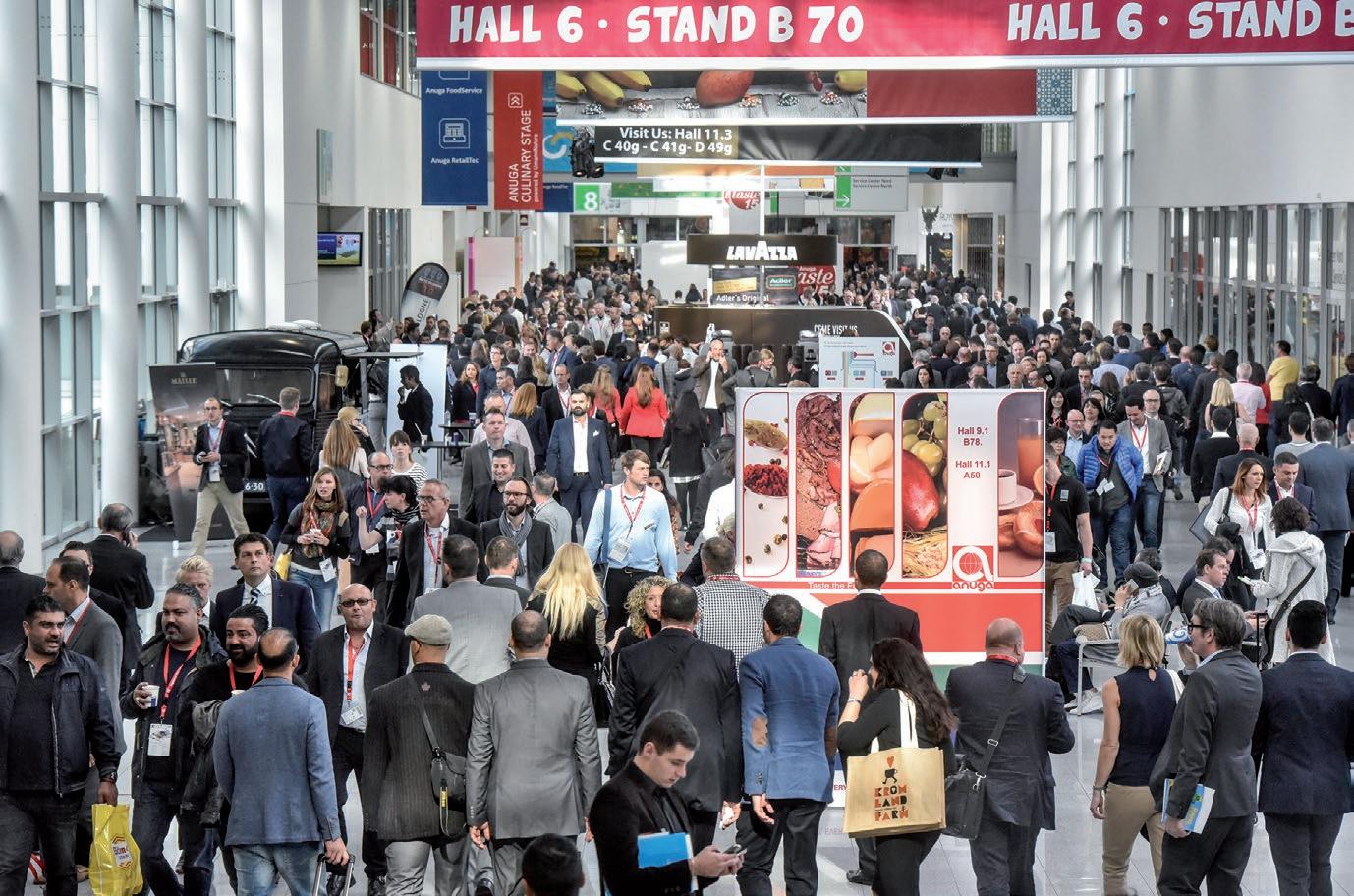
FOOD EXPO GREECE Greece Athens 18-20.03.2023
IFE Great Britain London 20-22.03.2023
ALIMINTEC Columbia Bogota 23-26.03.2023
SIAL AMERICA USA Las Vegas 28-30.03.2023
ANUFOOD BRAZIL Brasil Sao Paulo 11-13.04.2023
ISM JAPAN Japan Tokio 12-14.04.2023
NATURAL & ORGANIC PRODUCTS EUROPE Great Britain London 16-17.04.2023
ISM Germany Cologne 23-25.04.2023
SEAFOOD EXPO GLOBAL Spain Barcelona 25-27.04.2023

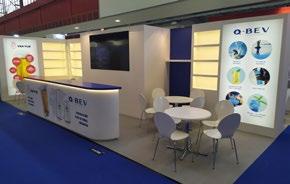
FOOD AND DRINK EXPO Great Britain Birmingham 24-26.04.2023
SIAL CHINA China Shanghai 05.2023
SIAL CANADA Canada Toronto 09-11.05.2023
TUTTO FOOD Italy Mediolan 08-11.05.2023
PLMA’S WORLD OF PRIVATE LABEL Netherlands Amsterdam 23-24.05.2023
Company: P.P.H.U. TRANSAD Sebastian Romaniak
Site: www.transad.pl
Contact: transport@transad.pl
The TRANSAD company was established in 2006 and offers highest qual ity of transportation services, such as: refrigerated transportation, ad justing the type of semi-trailers to his individual requirements and FMCG goods shipping.

The fleet is always modern and meets the highest standards. It is con stantly supplemented with various types of vehicles & semi-trailers so as to always be fully flexible and self-sufficient in the implementation of the tasks entrusted to the company.
Distributor: PPH EWA BIS
Site: www.ewabis.com.pl
Contact: sales@ewabis.com.pl
Ewa Bis operates globally in the FMCG bus sines. In our portfolio you can find the most re spected global brands such as: Procter & Gam ble, Henkel, Unilever, Adidas, Mars, Mondelēz International, Nestlé, Ferrero, Red Bull, Monster, Coca Cola and many others.

We try to reach out to our customers every day, offering them brands, which are recognized around the world, regard less of the place in which they are located. We cooperate with large retail chains, distributors, as well as intermediaries. Very much of our attention is focused on reliable service, which is why we provide labelling, repackaging, mixing pallets, cargo manual and trucks.
Distributor: PPH EWA BIS
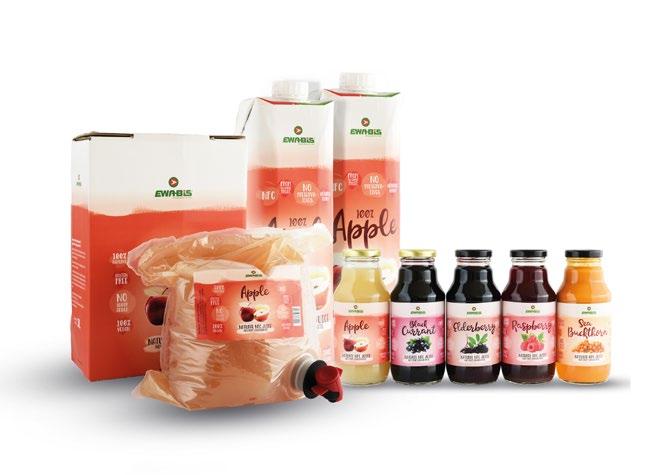
Site: www.ewabis.com.pl
Contact: sales@ewabis.com.pl
We offer for our customers convenient forms of cooperation, many solutions of choosing packaging for all products:
• Industrial Use (B2B)
• HoReCa
• Retail (B2C), also as Private Label.
They are 100% natural, pasteurised right after being pressed. NFC juices are perfect for fruit juice beverages.
We offer top shelf quality juices and concentrates that meet all de manding standards in compliance with the requirements of AIJN Code.

